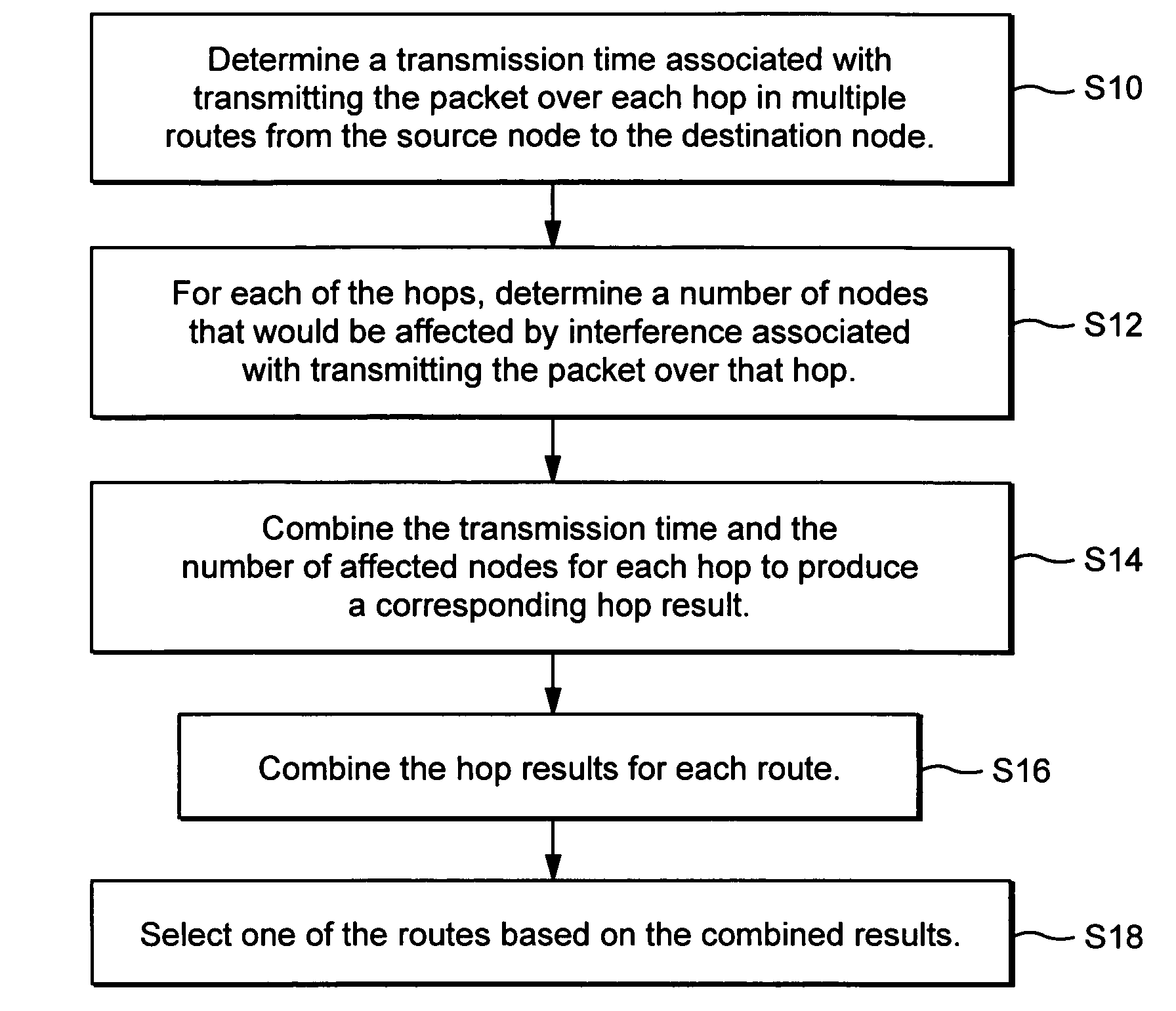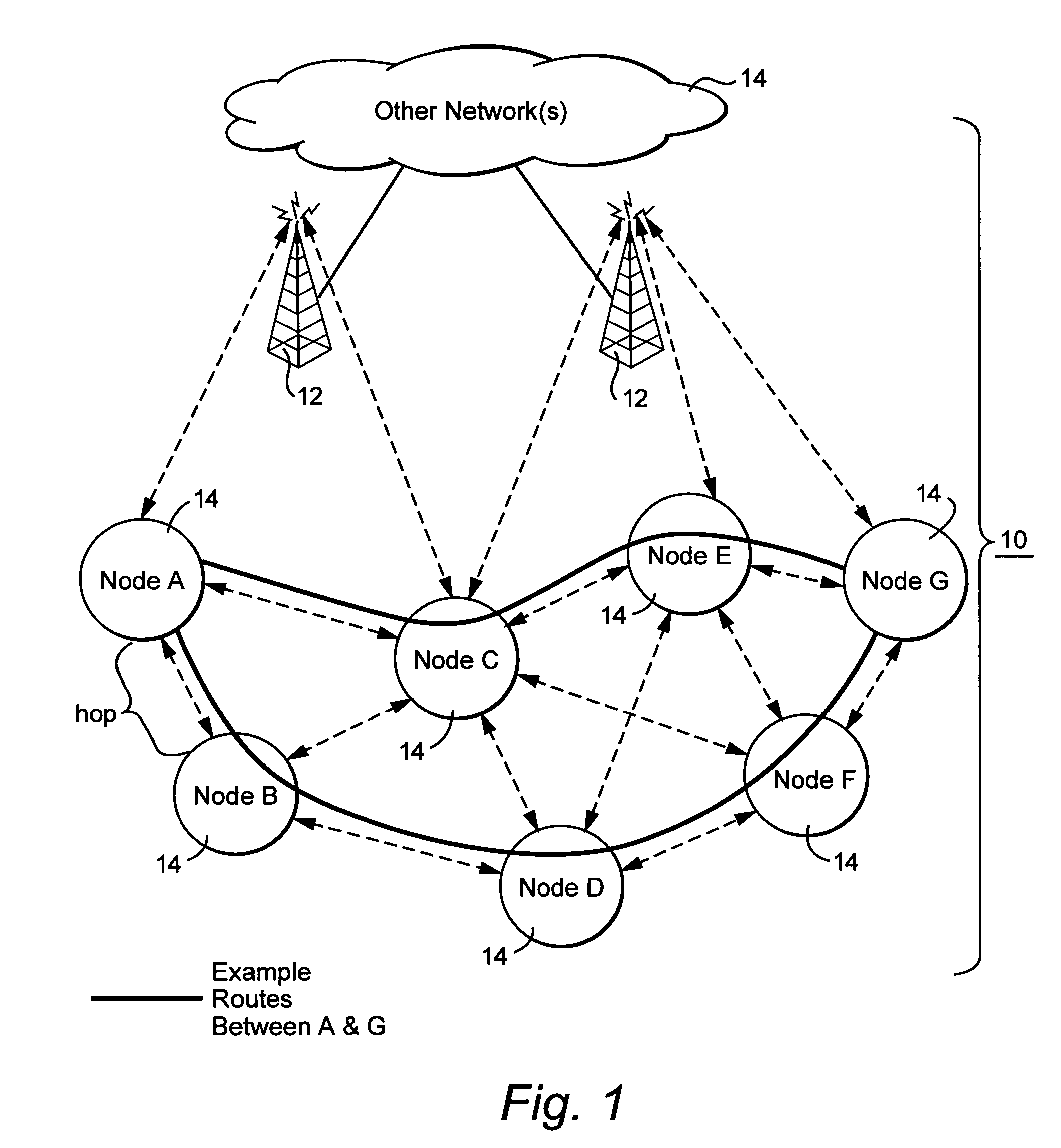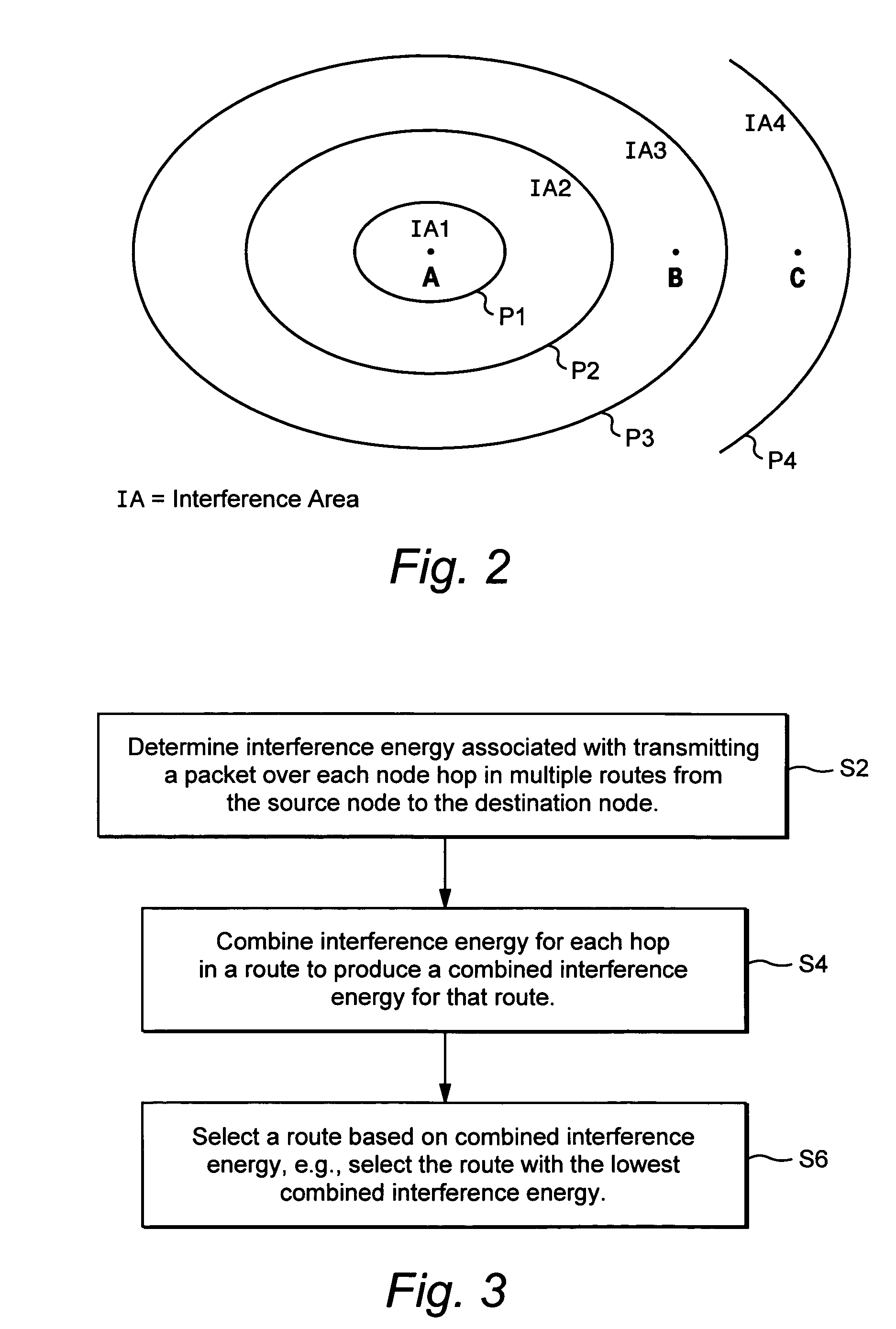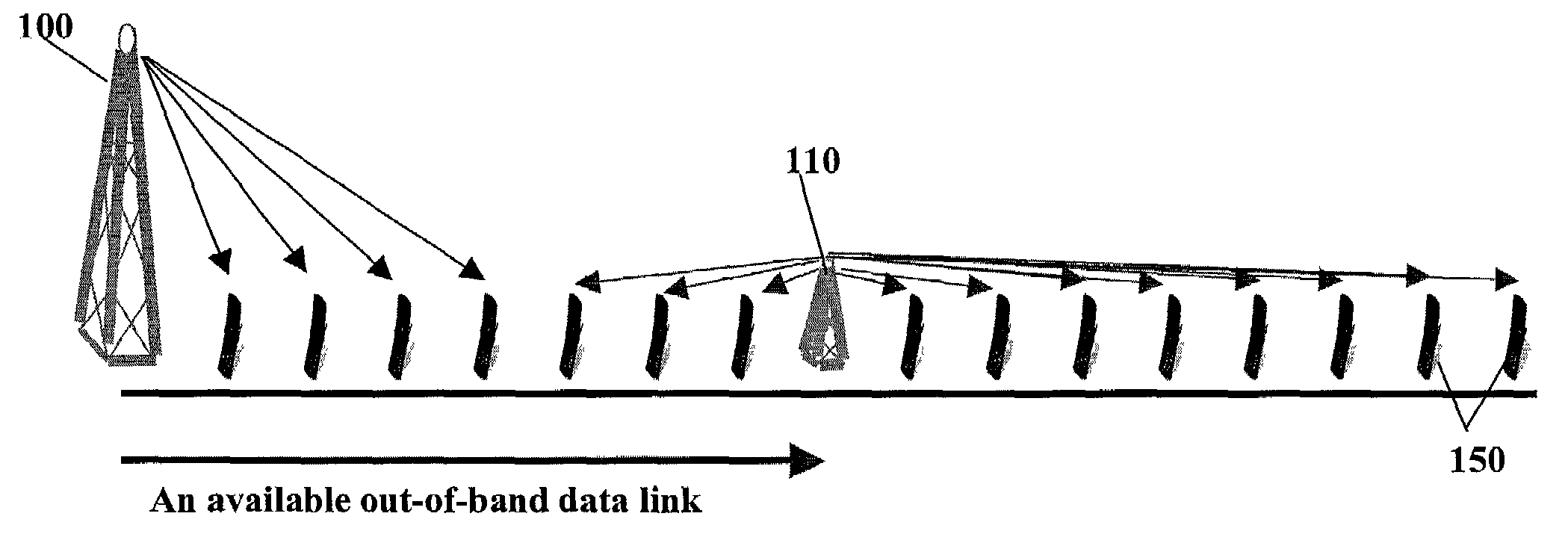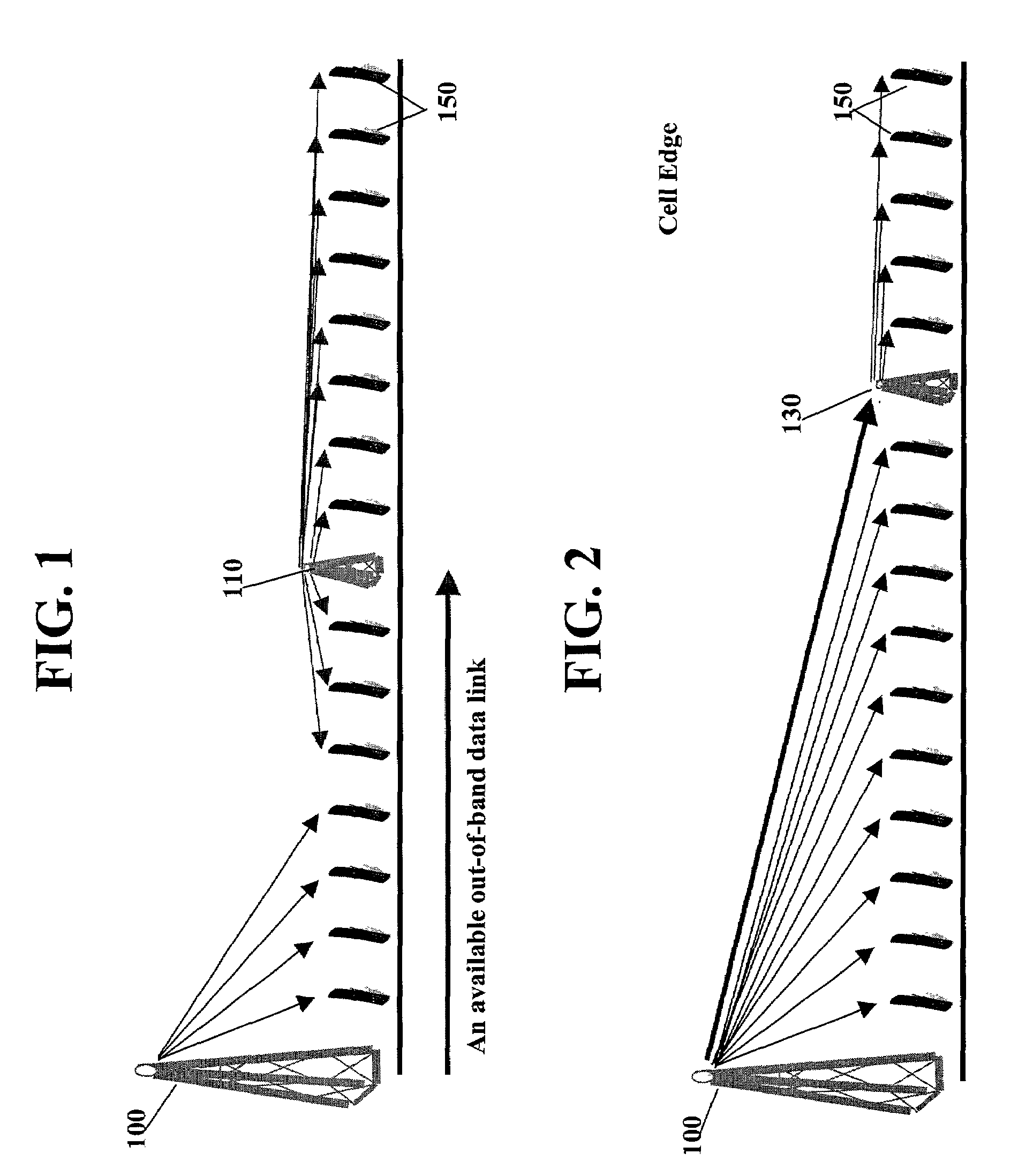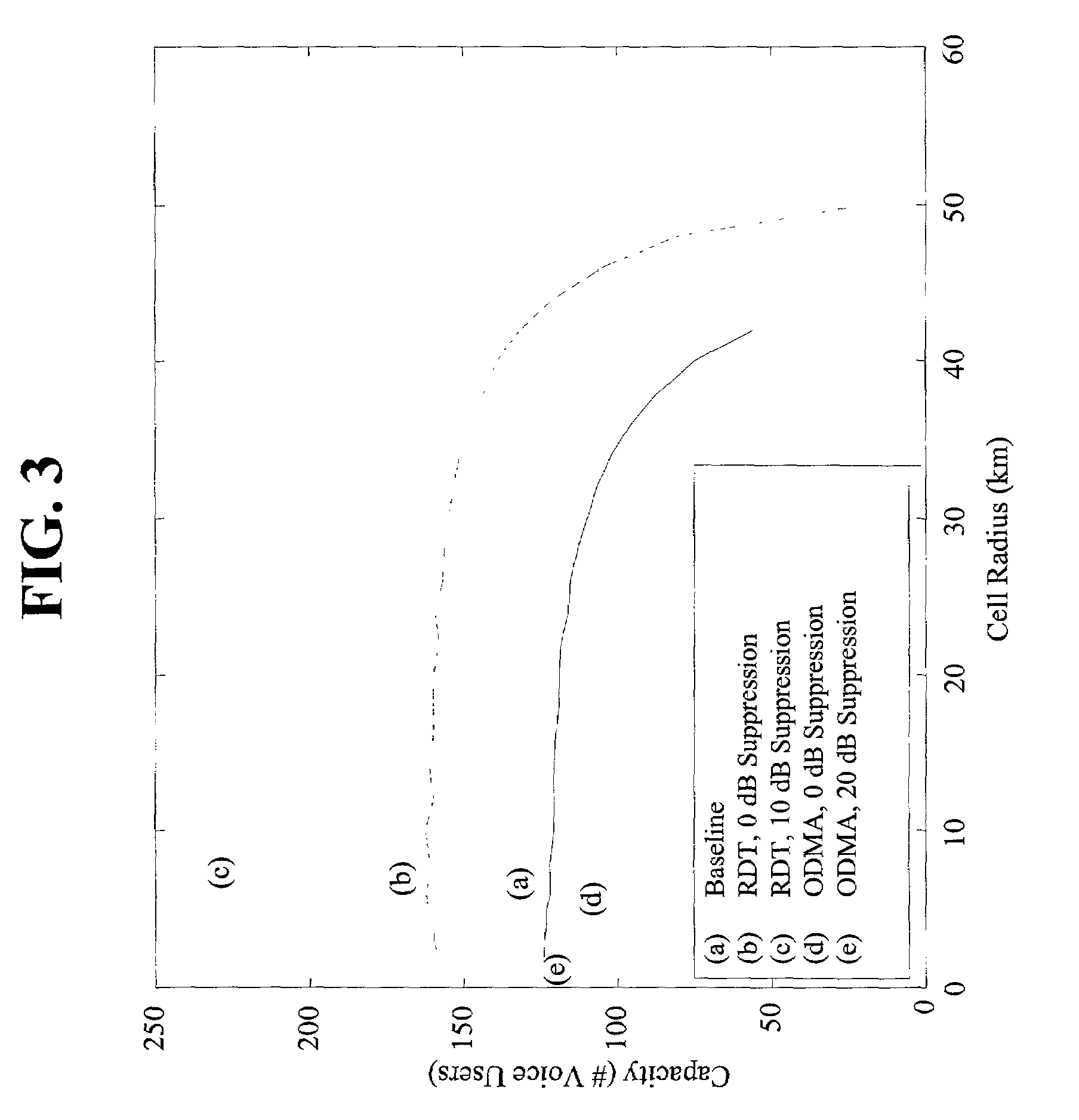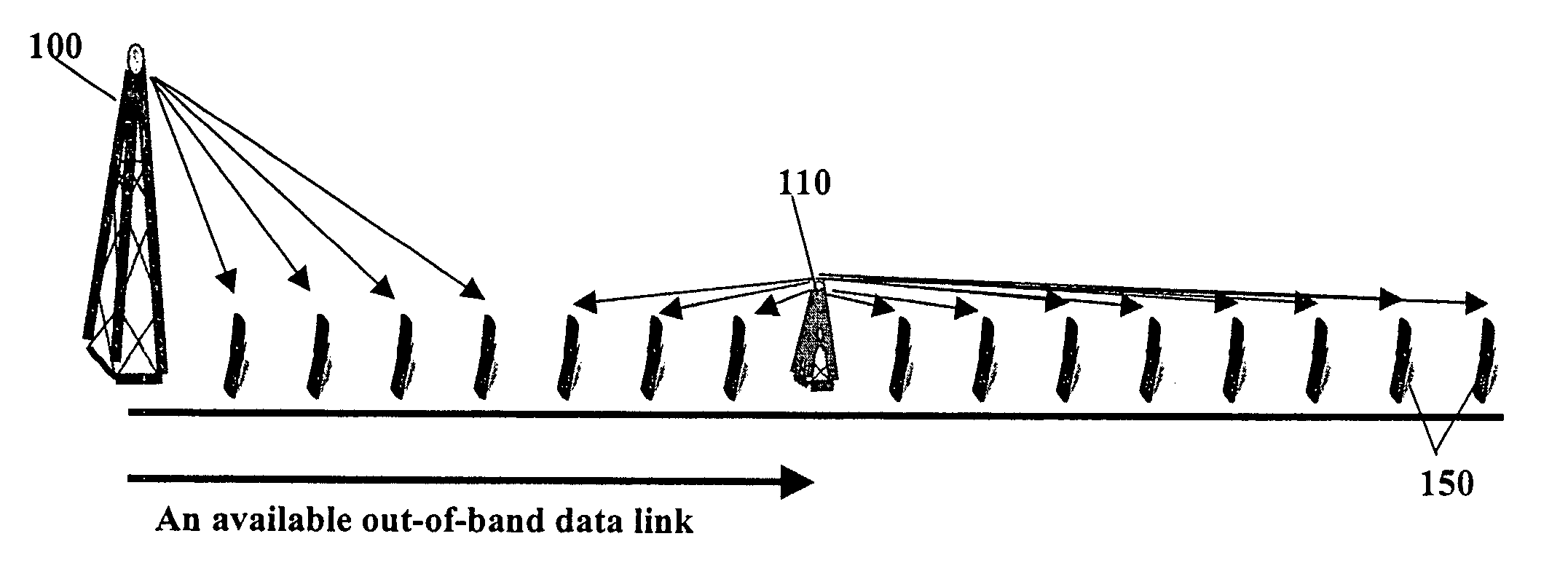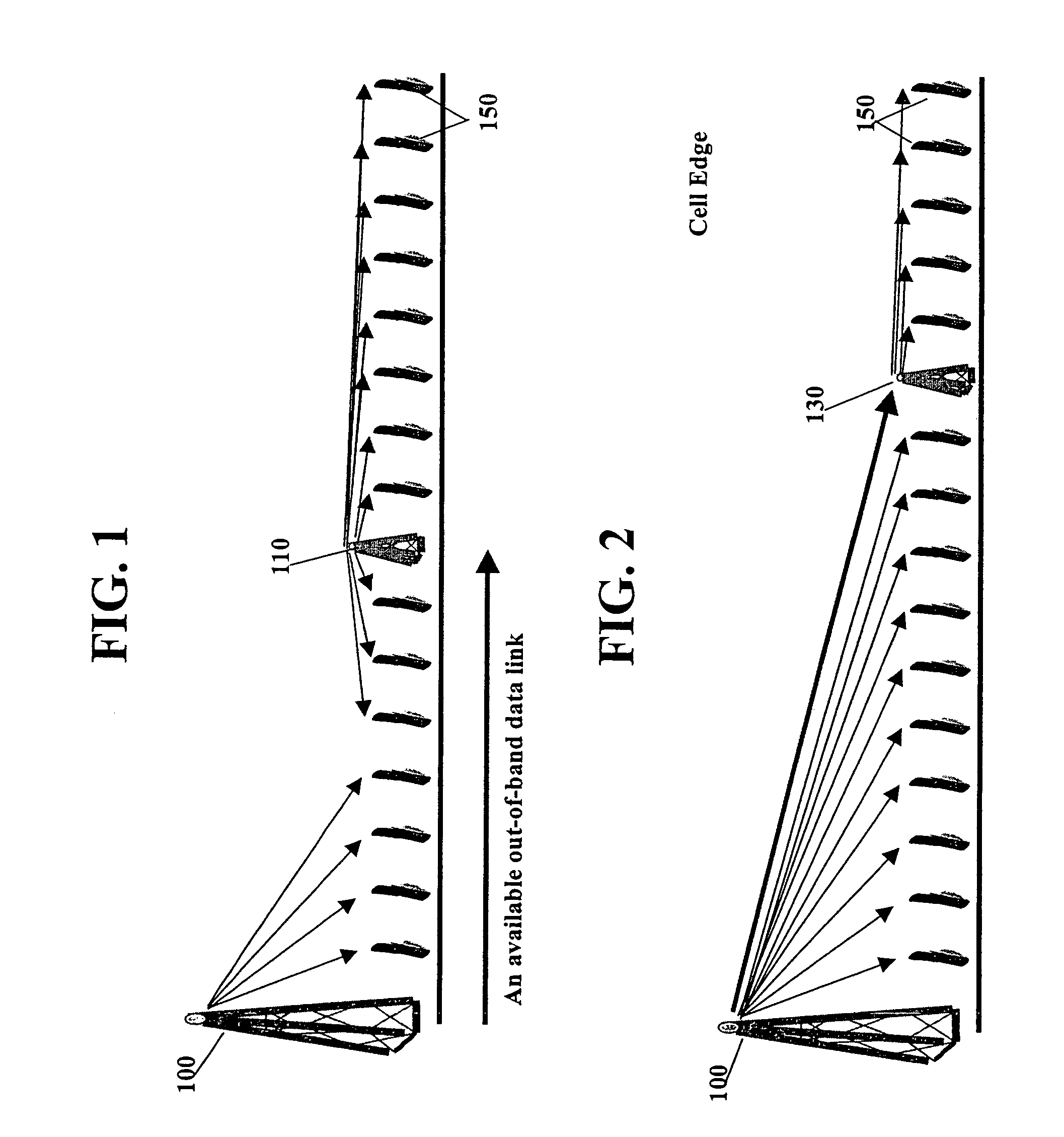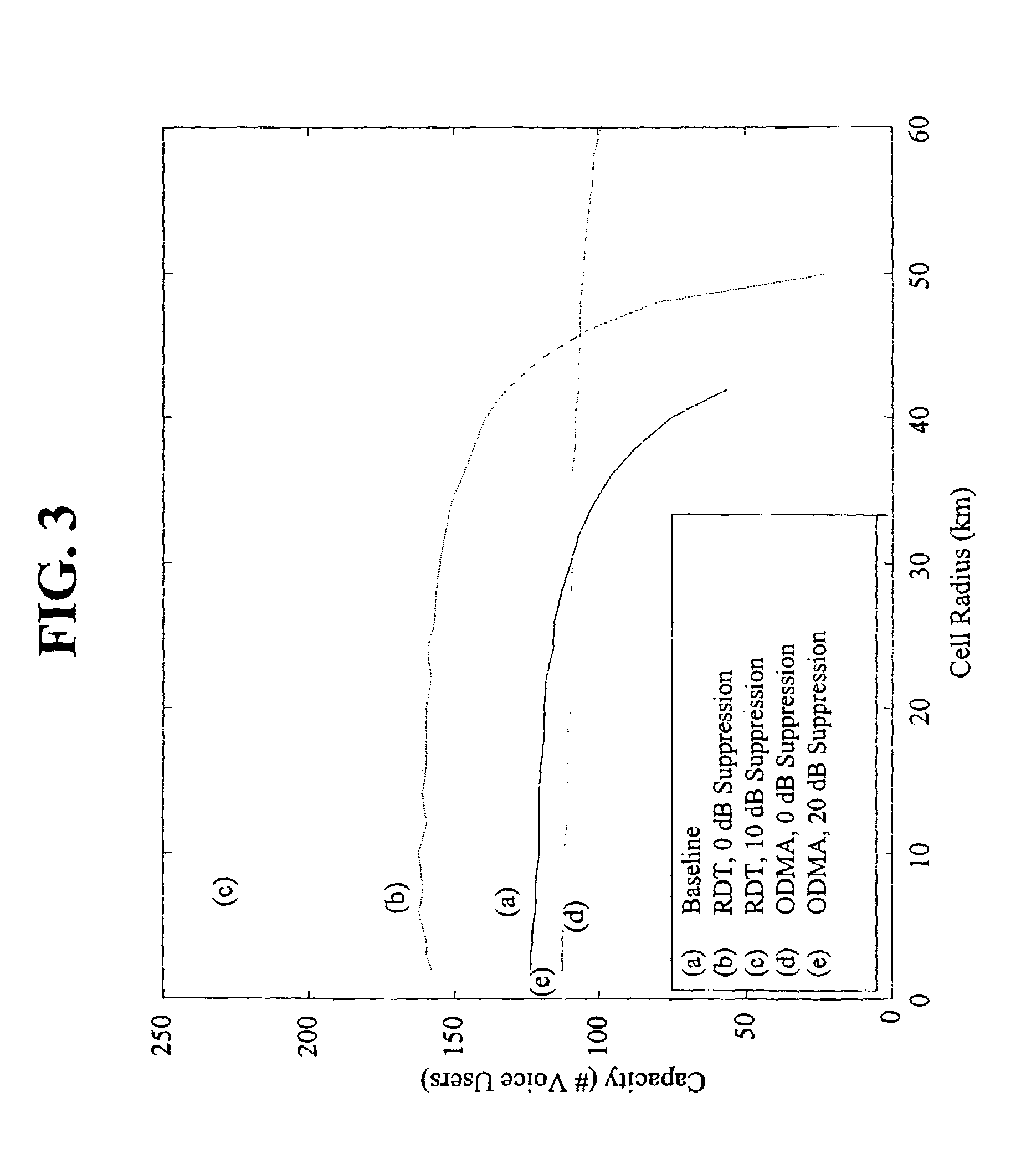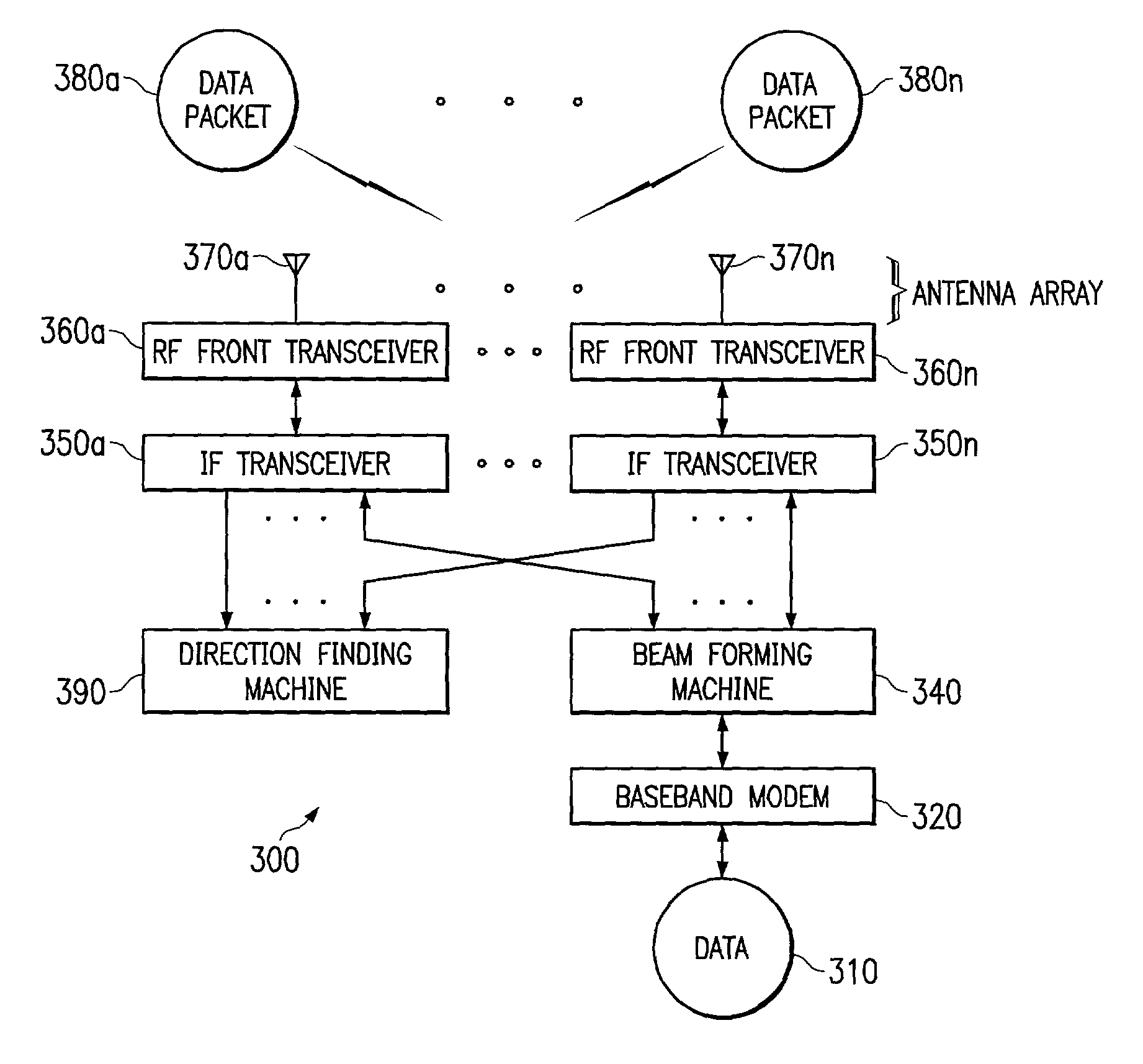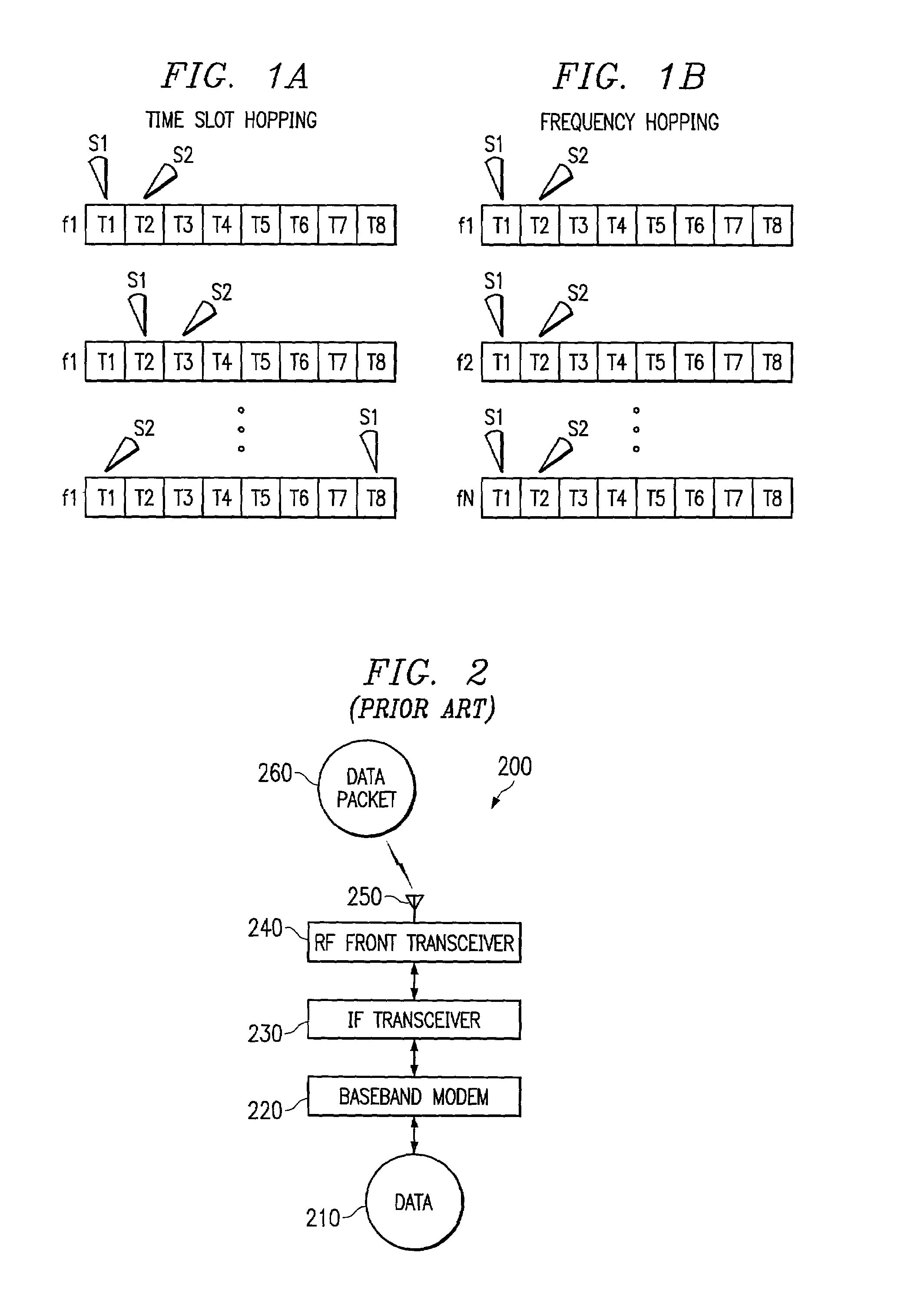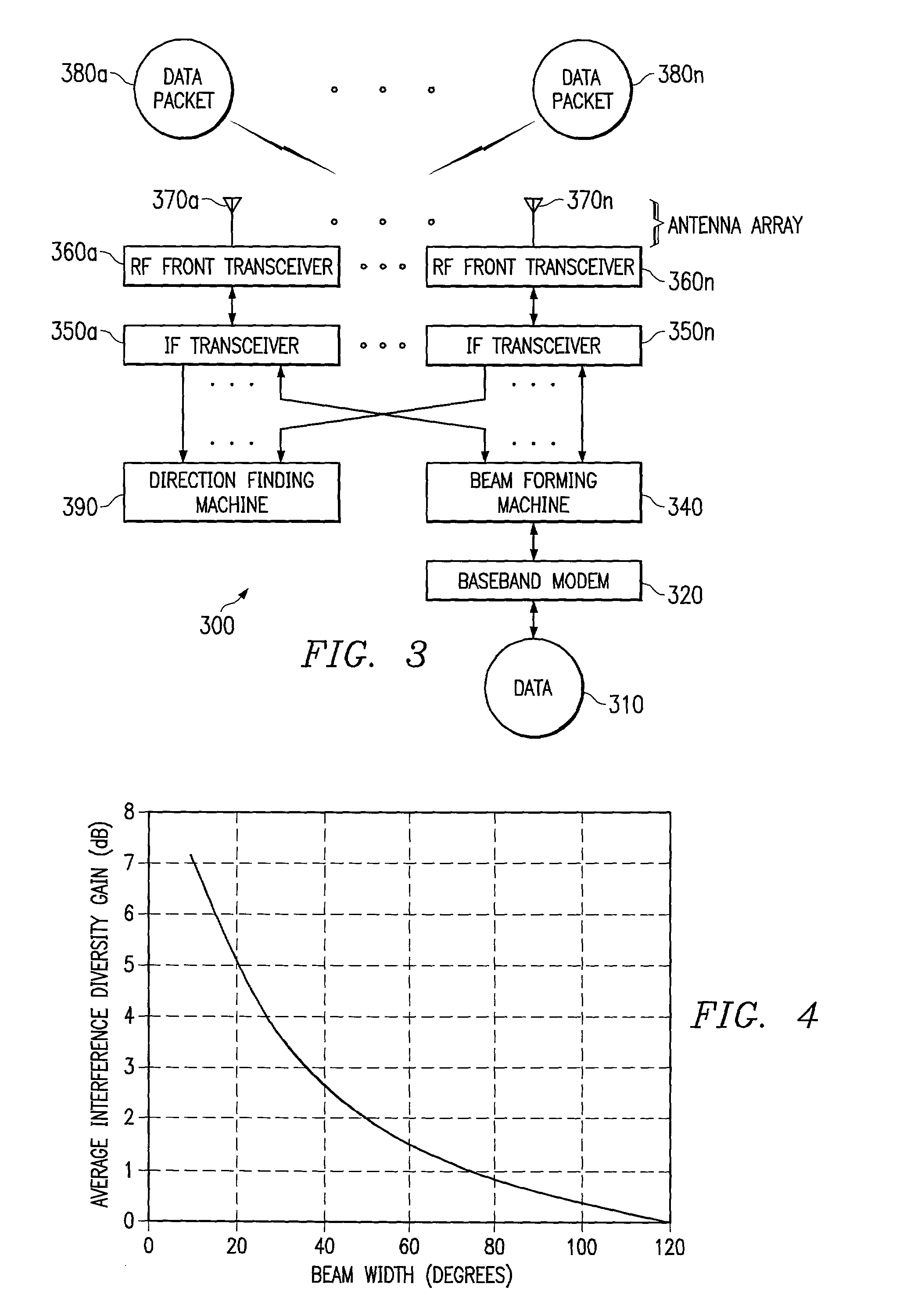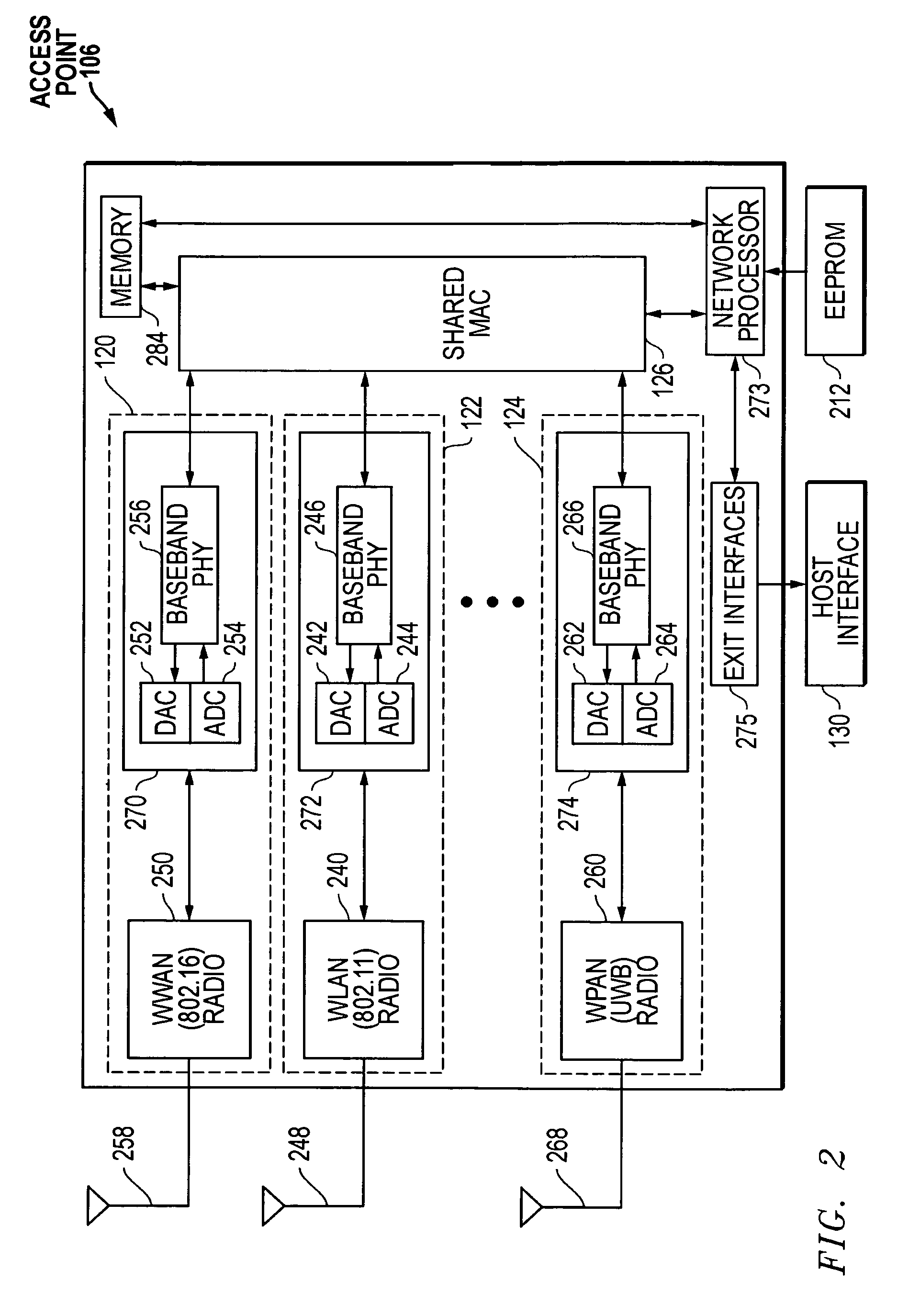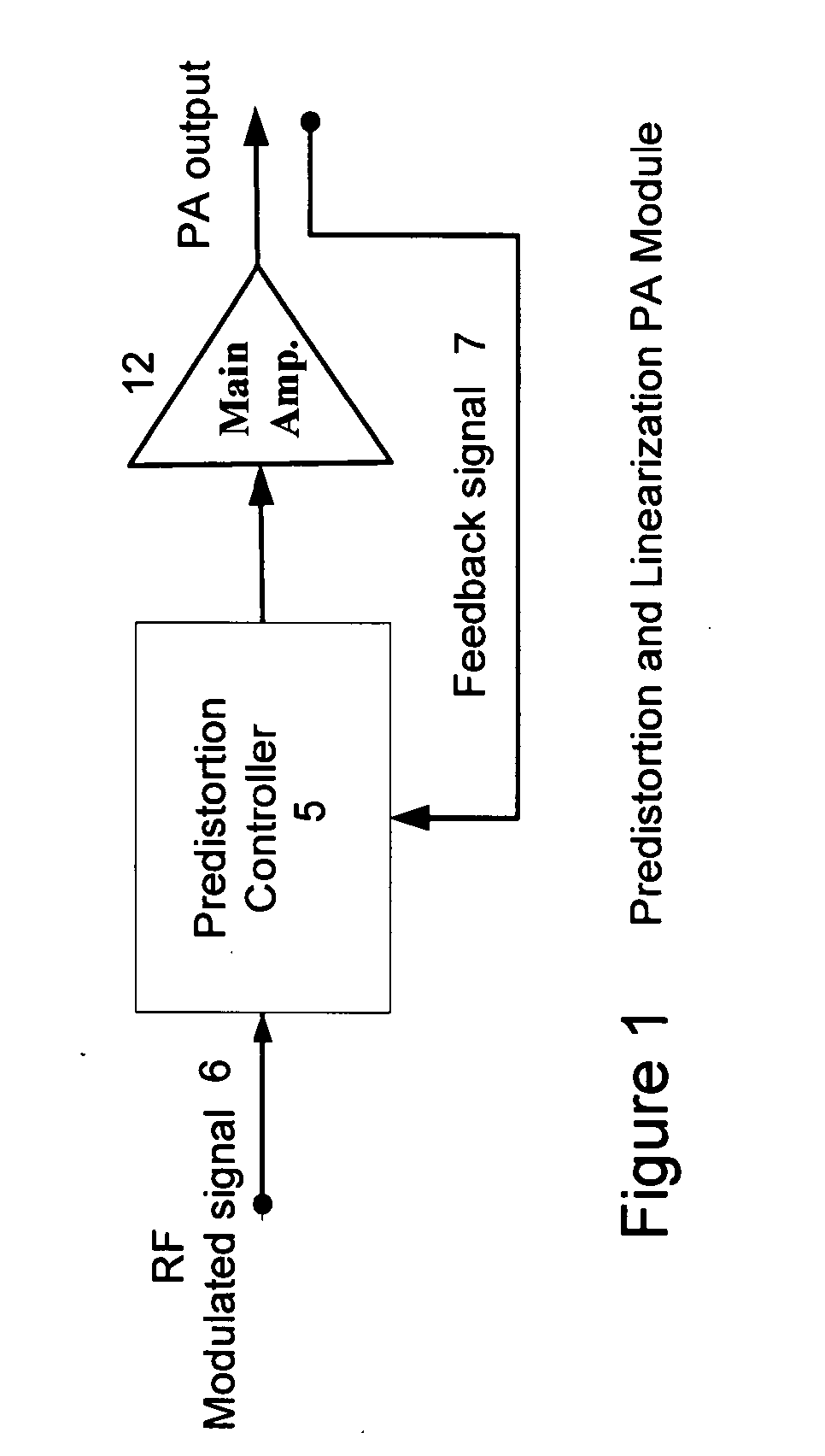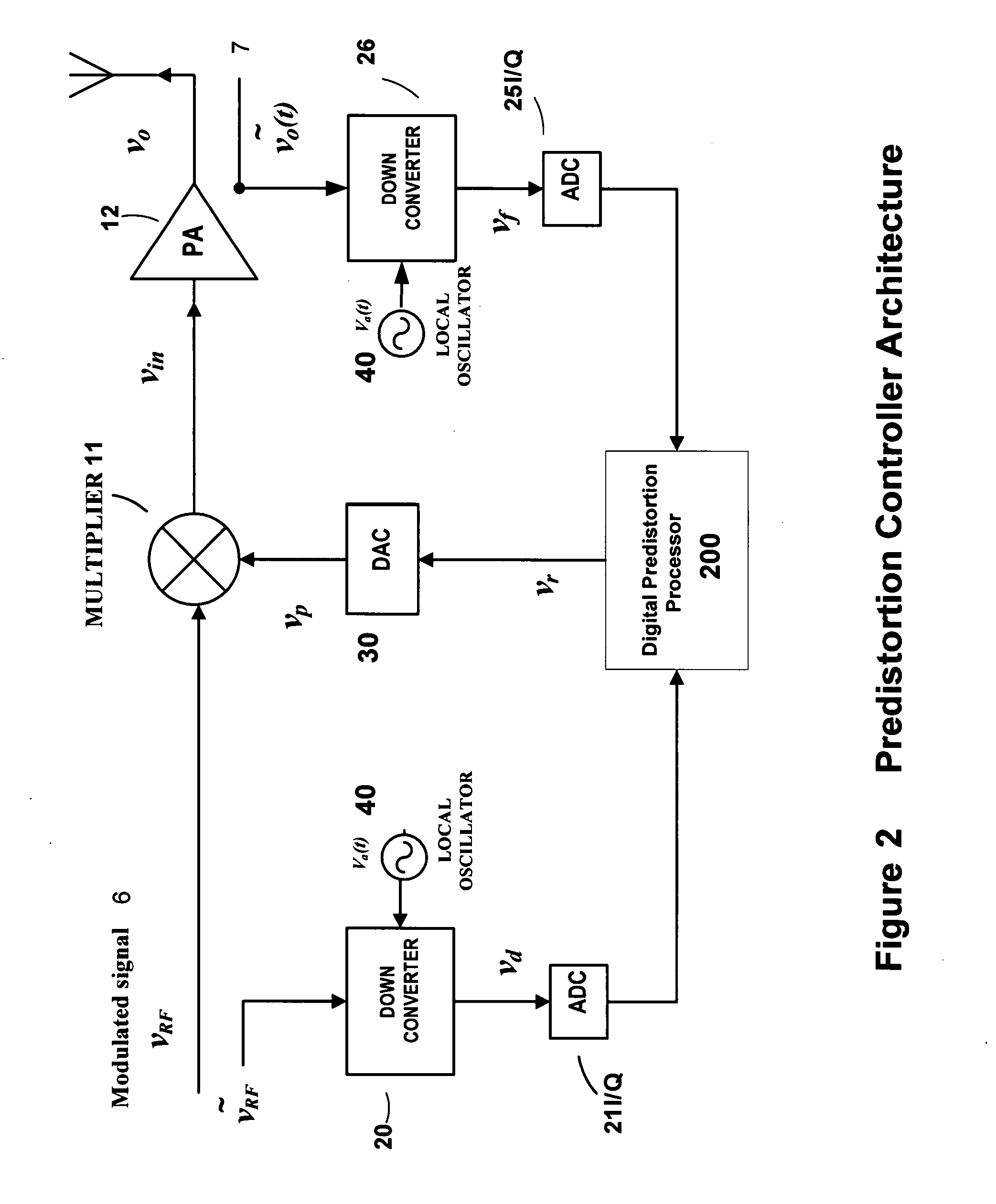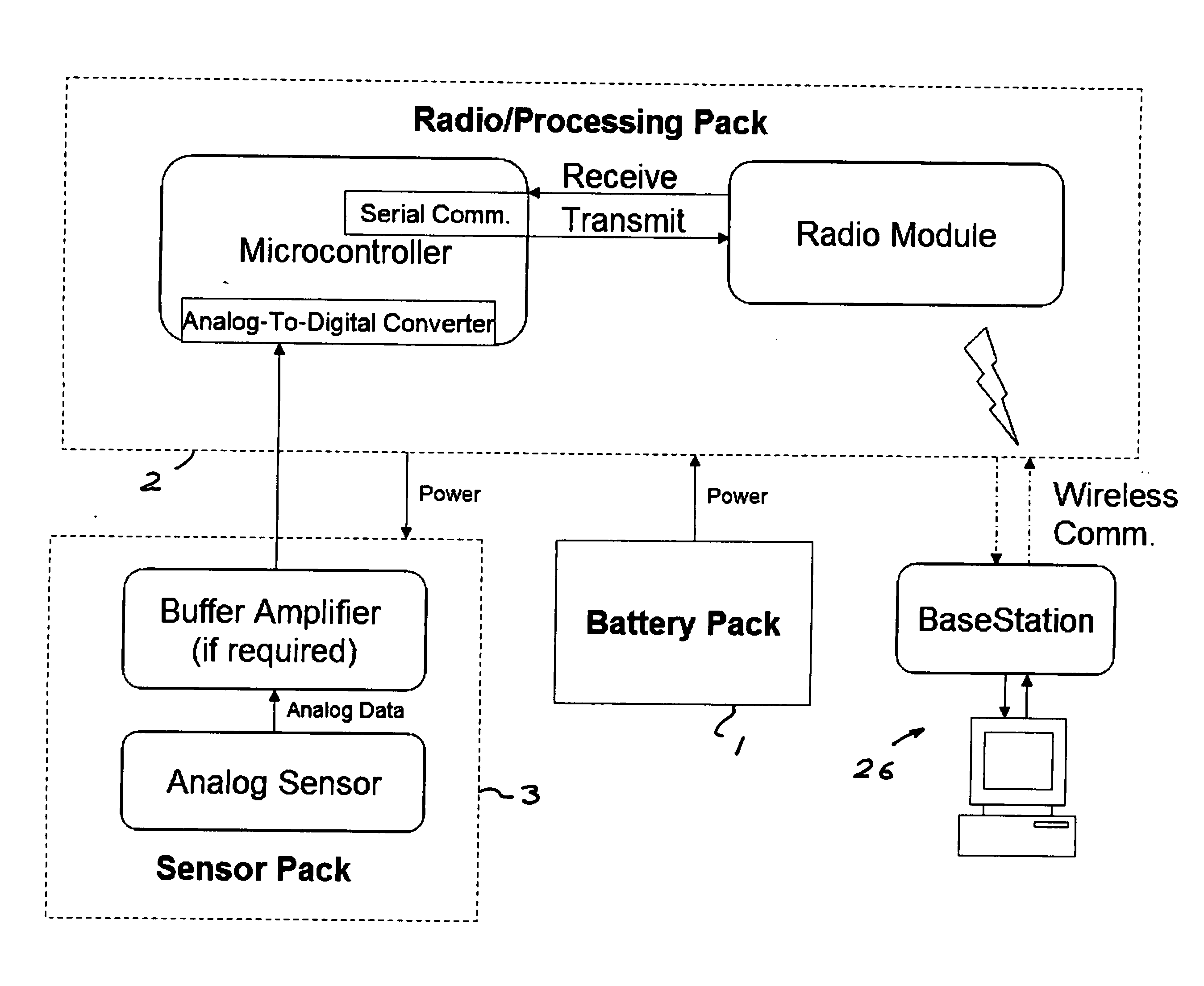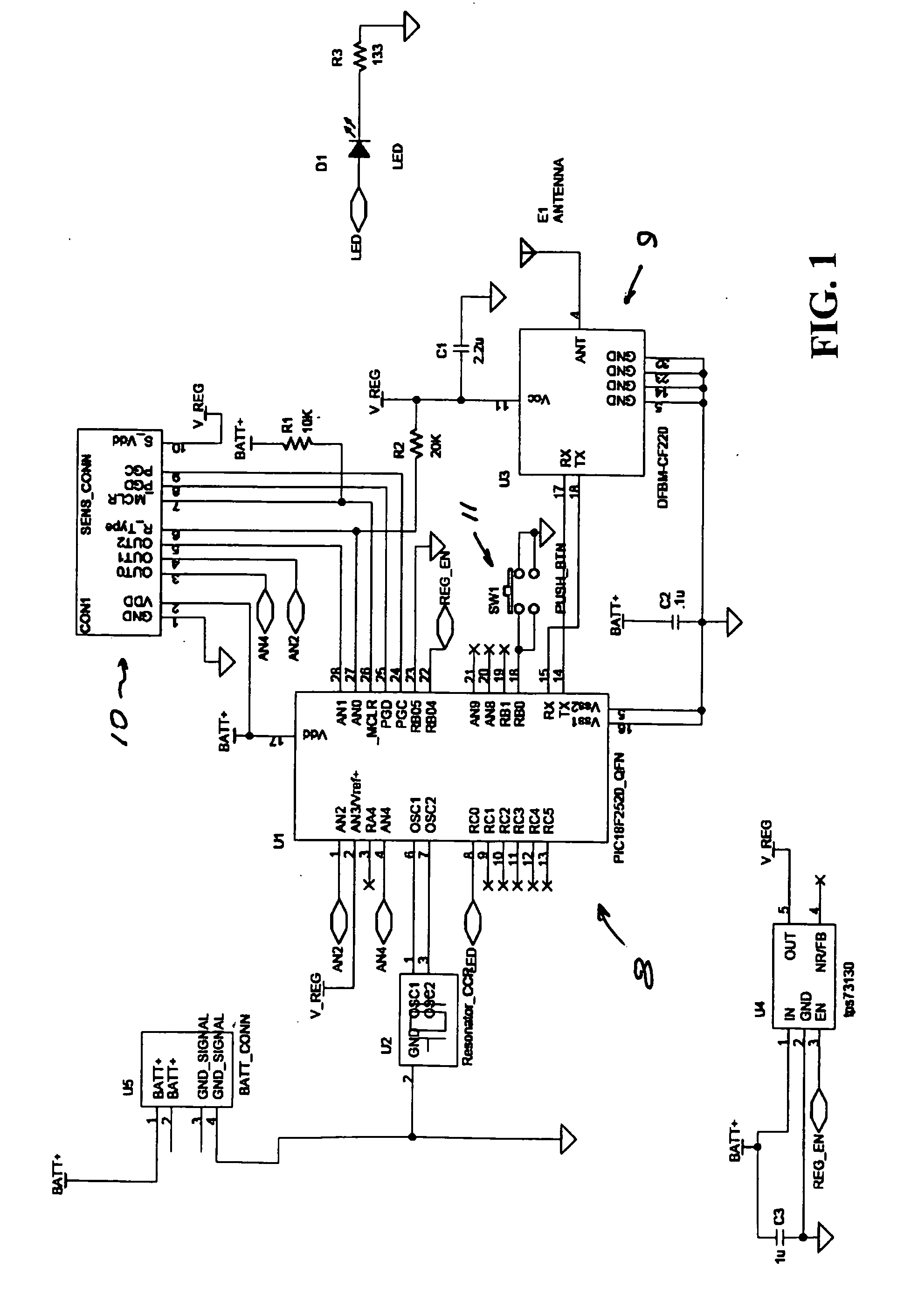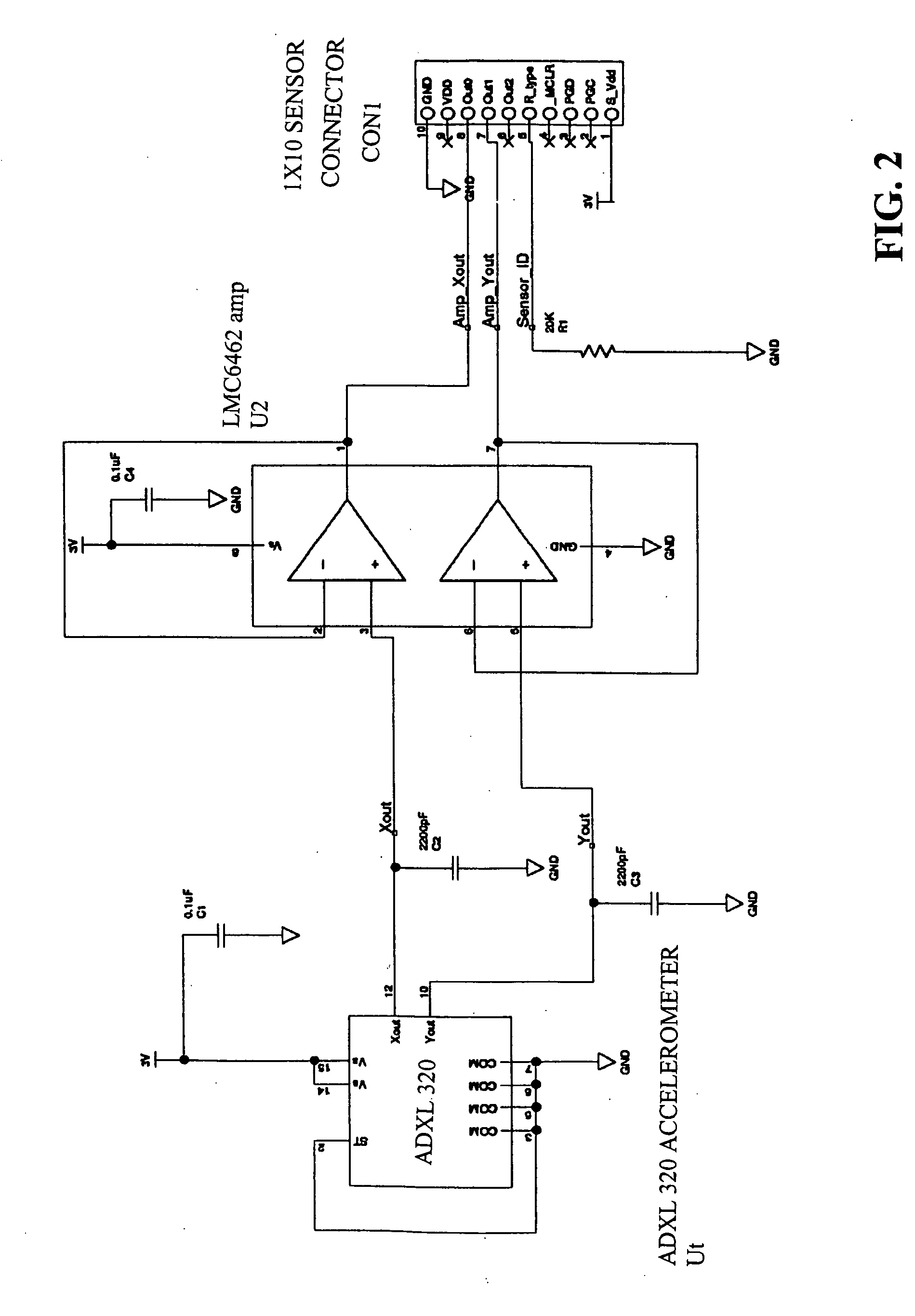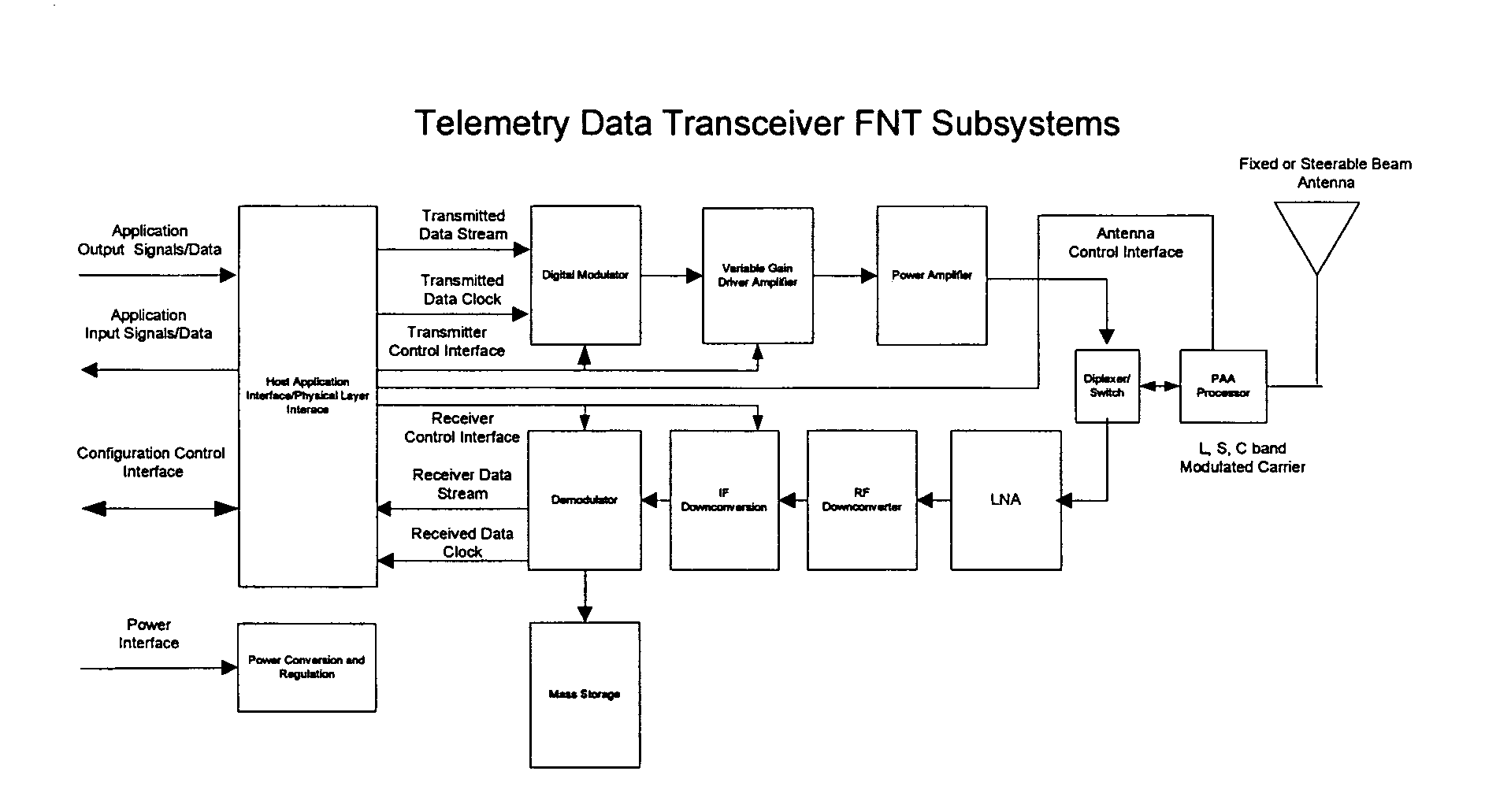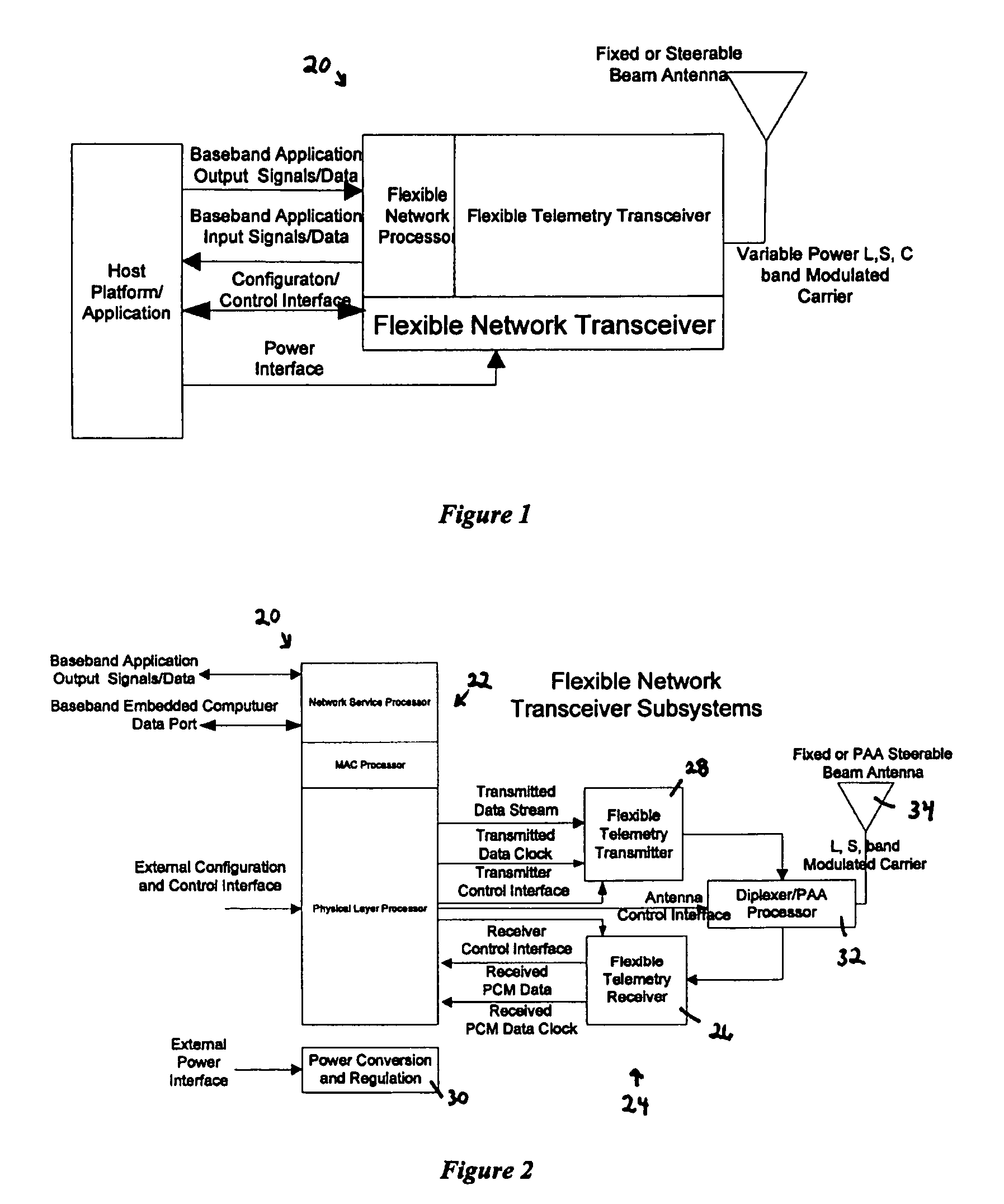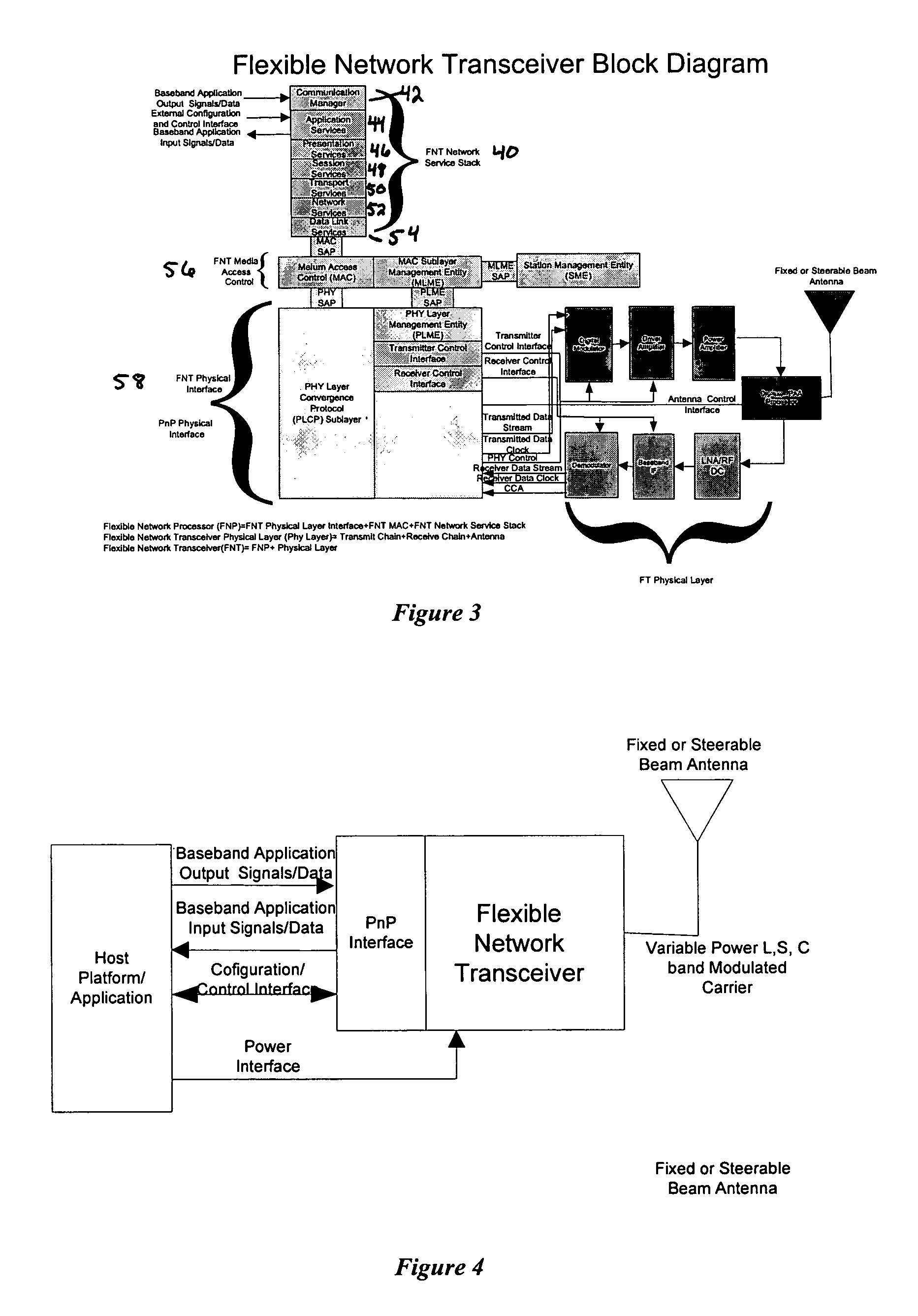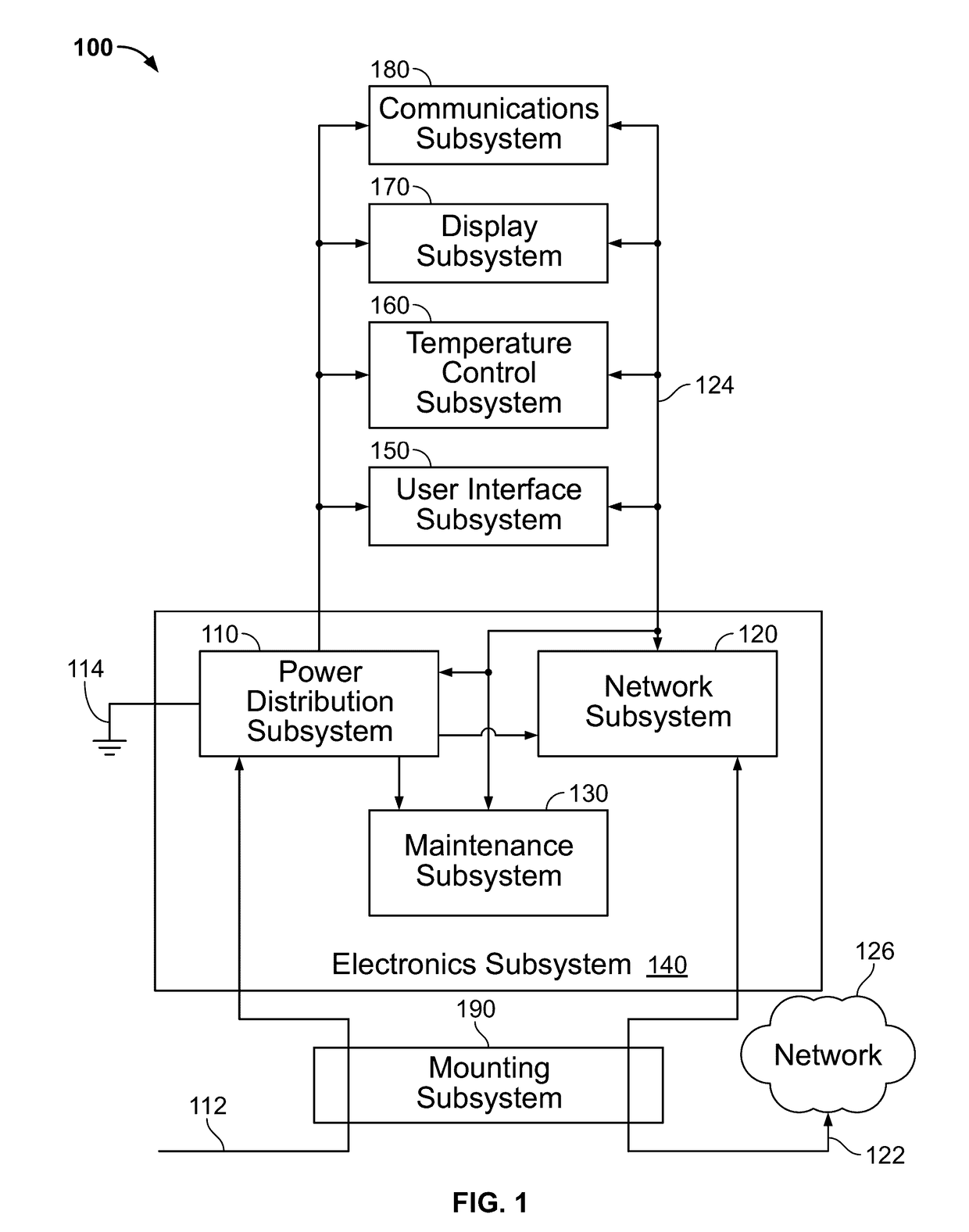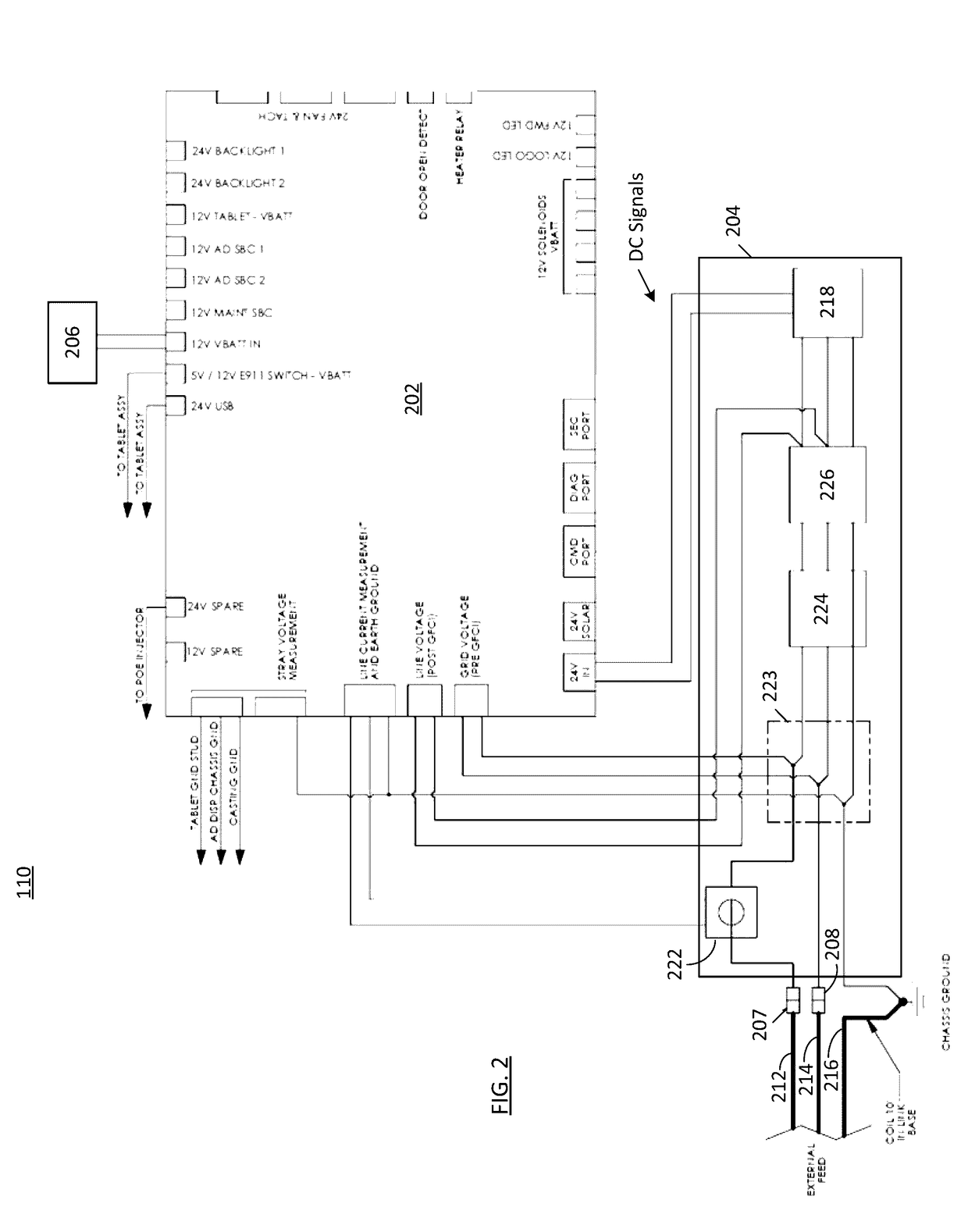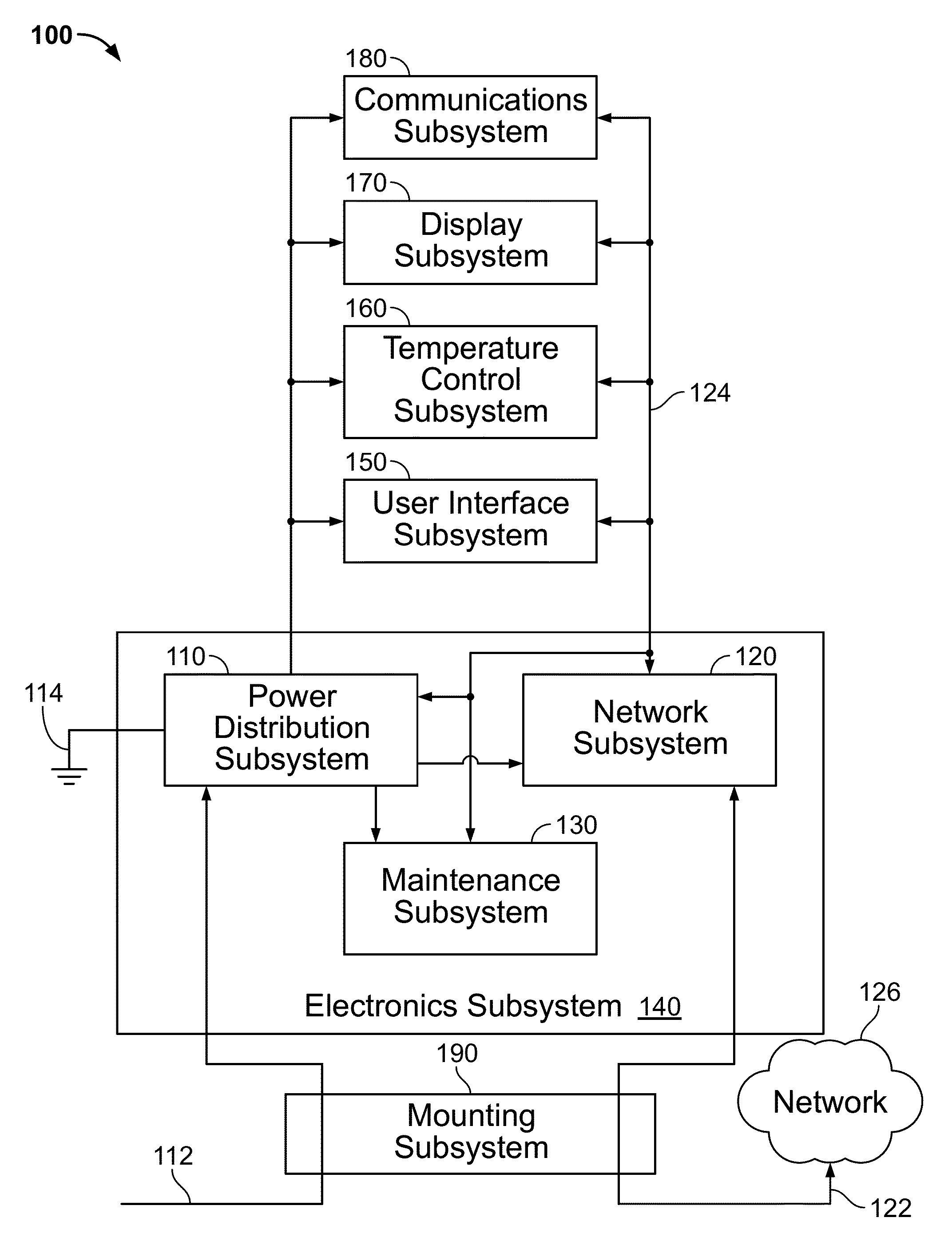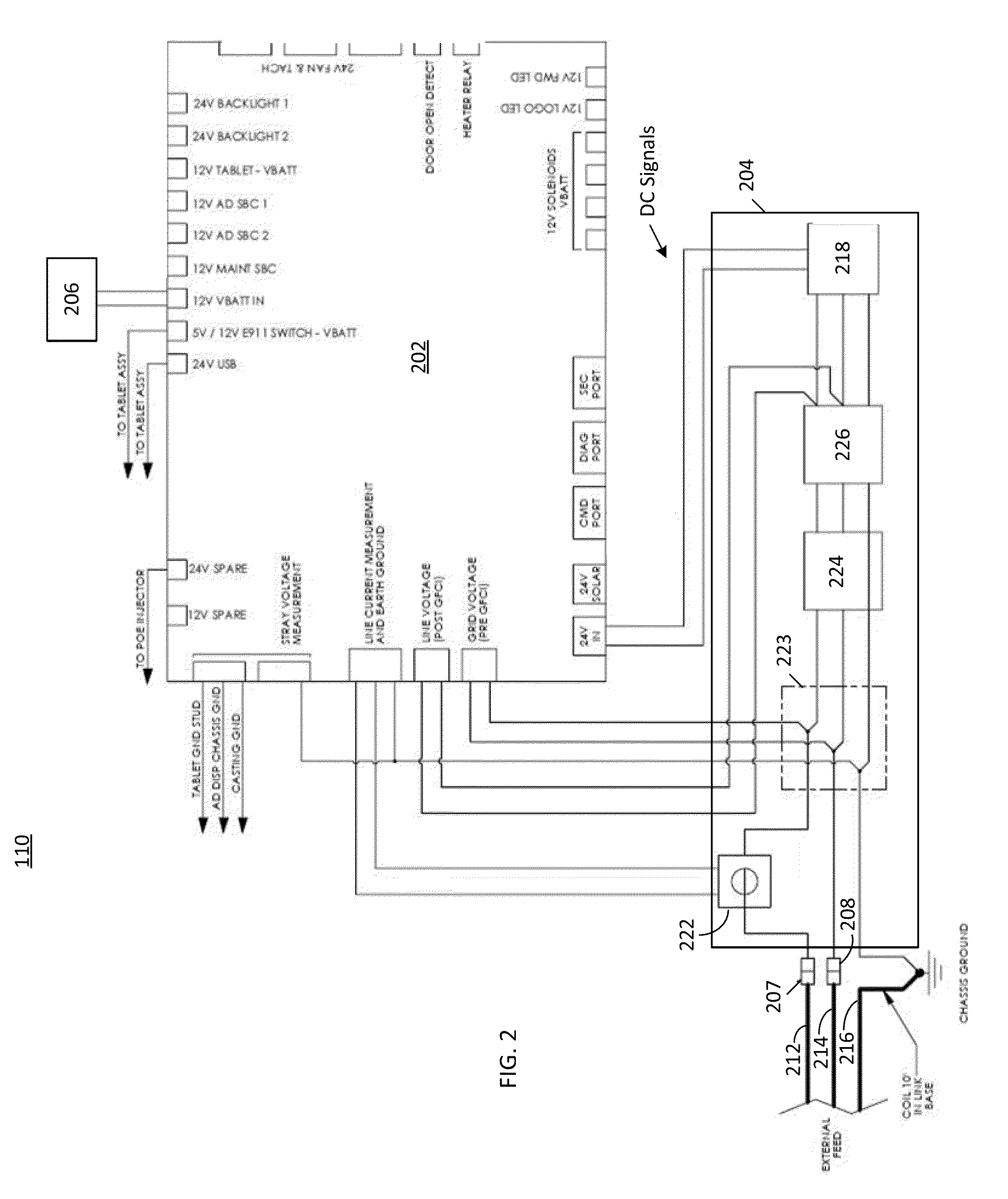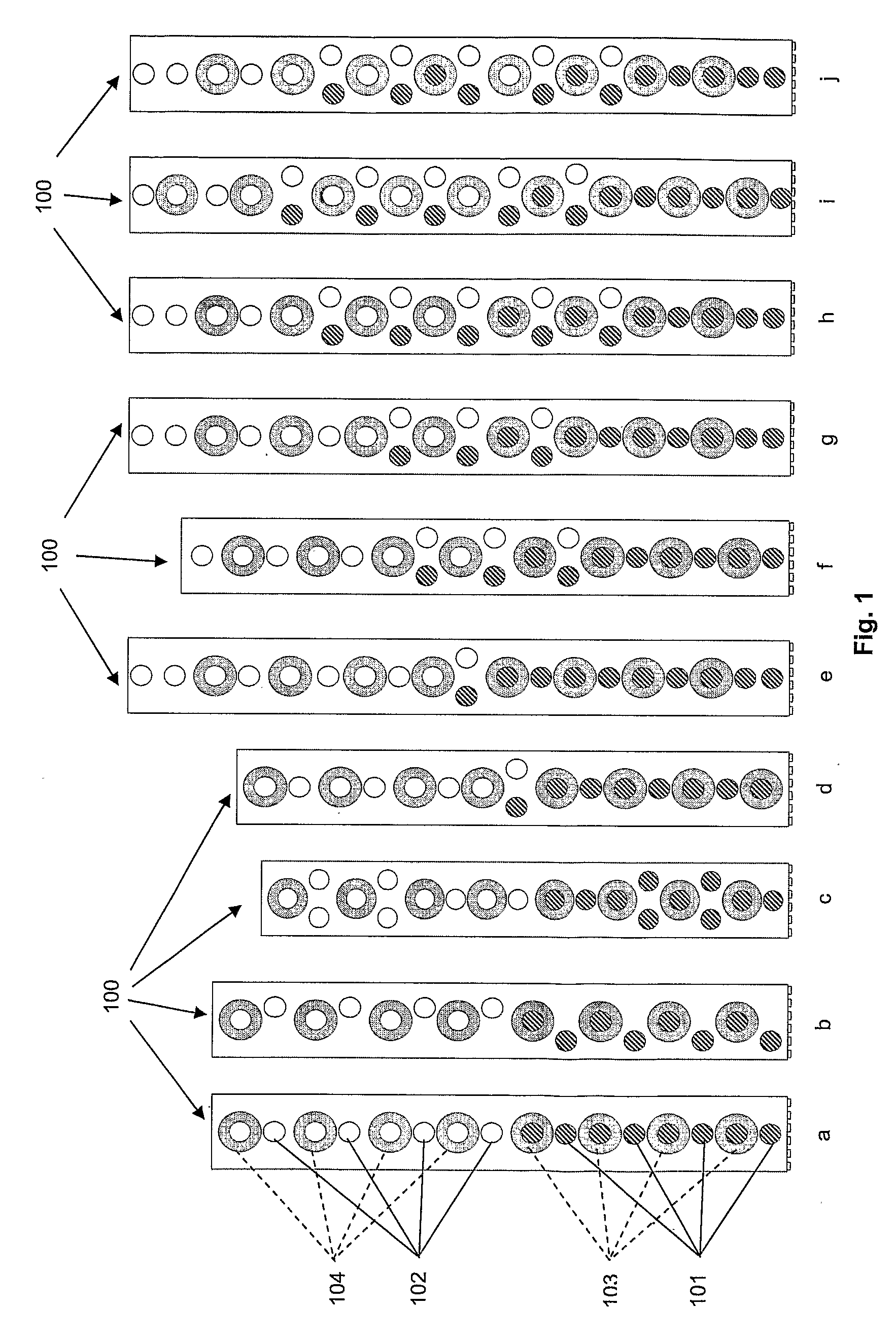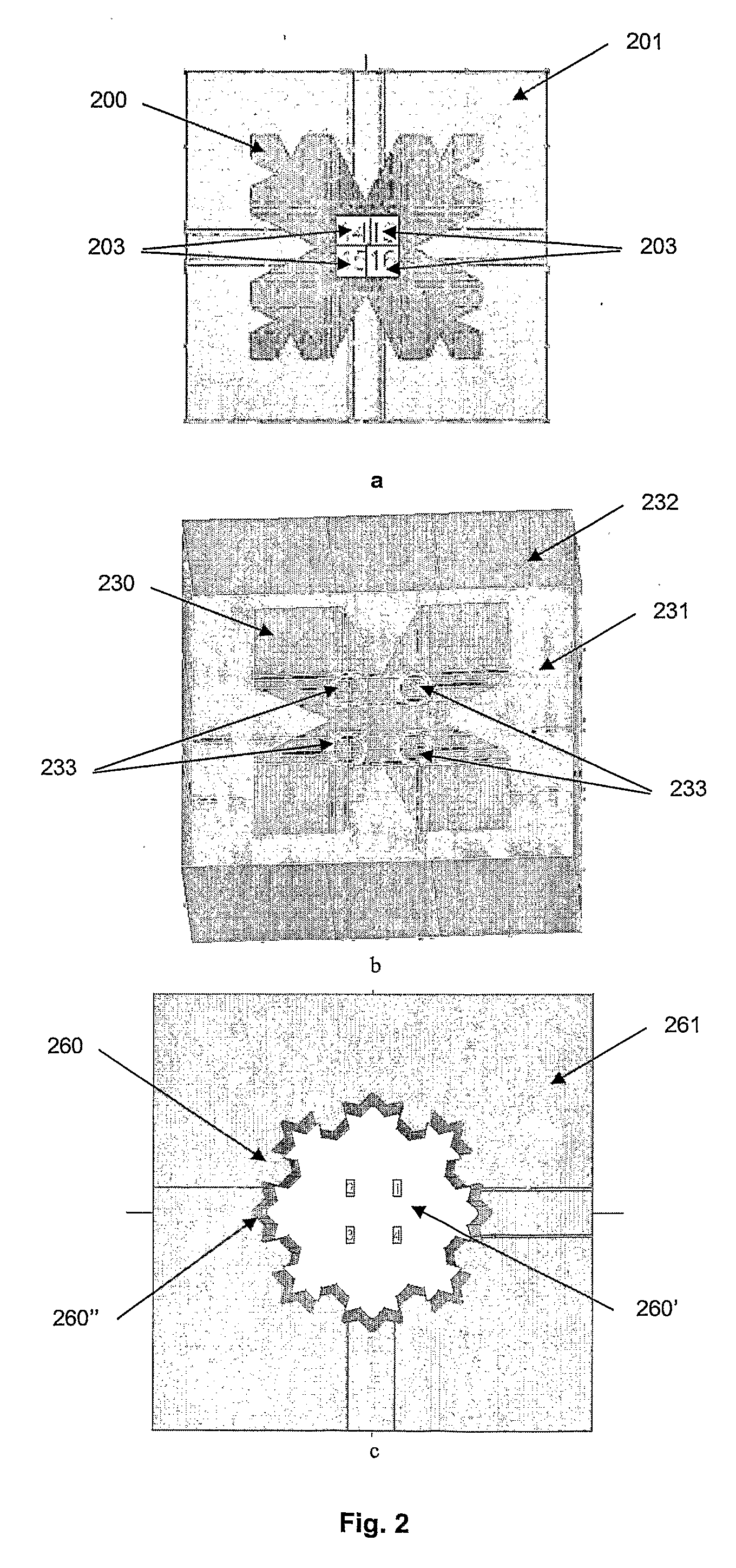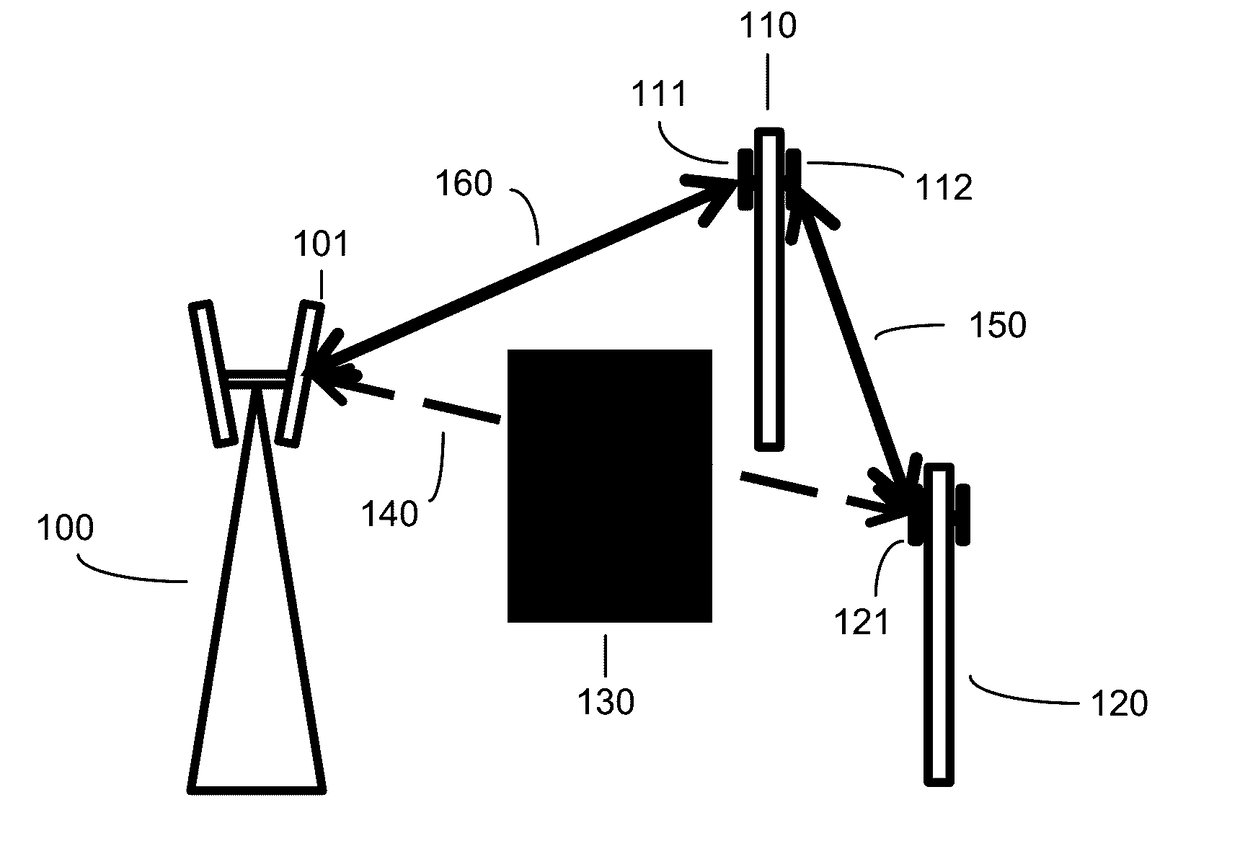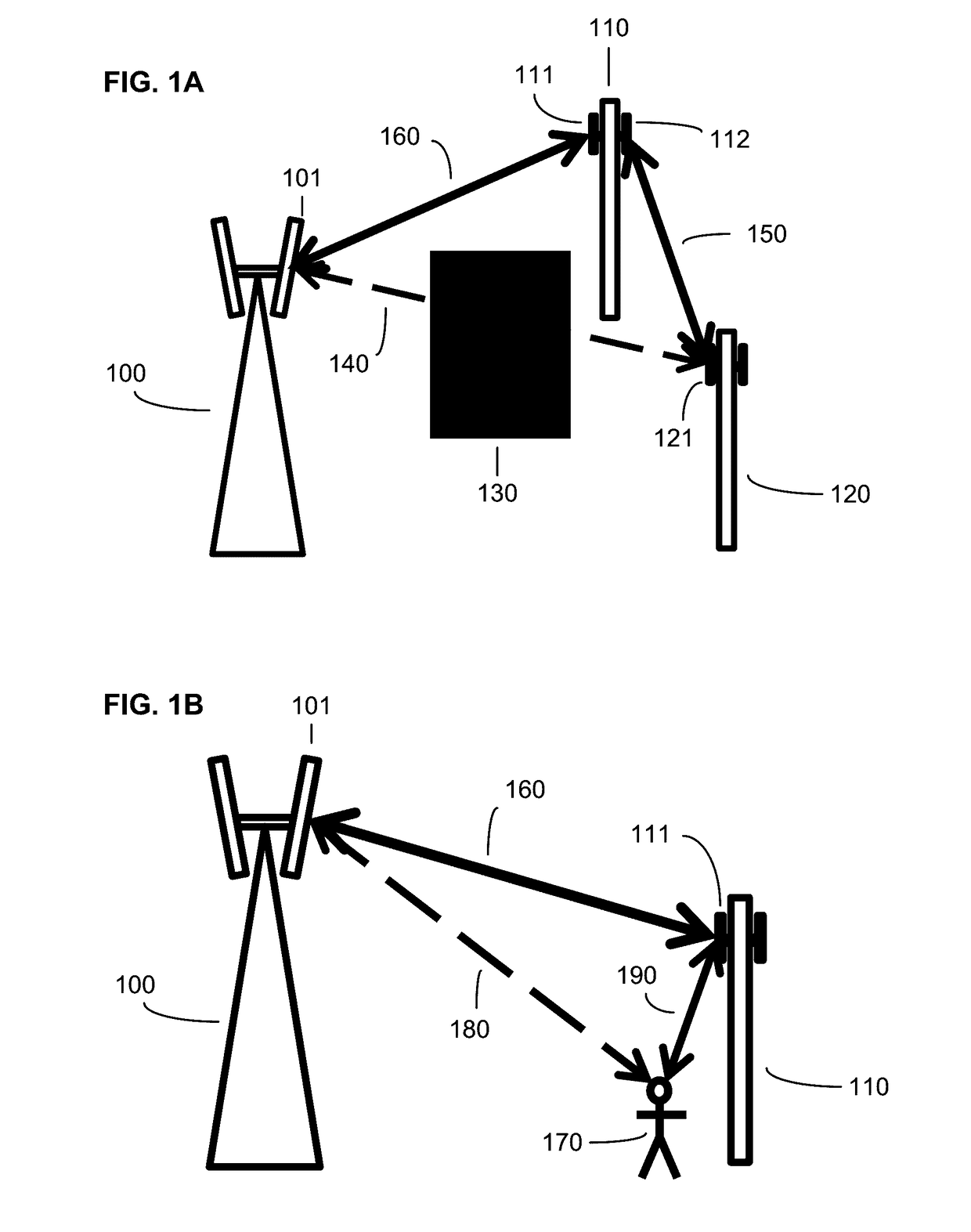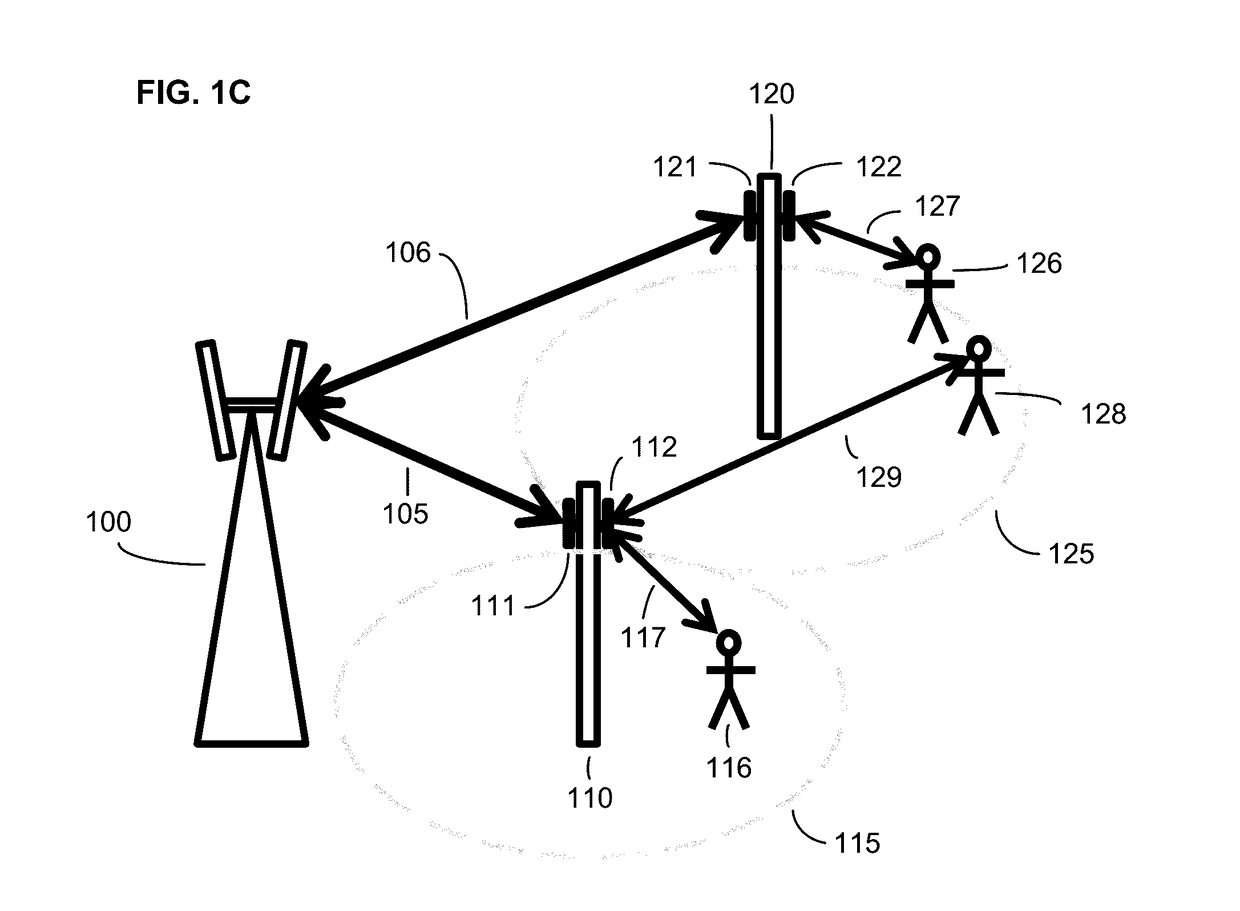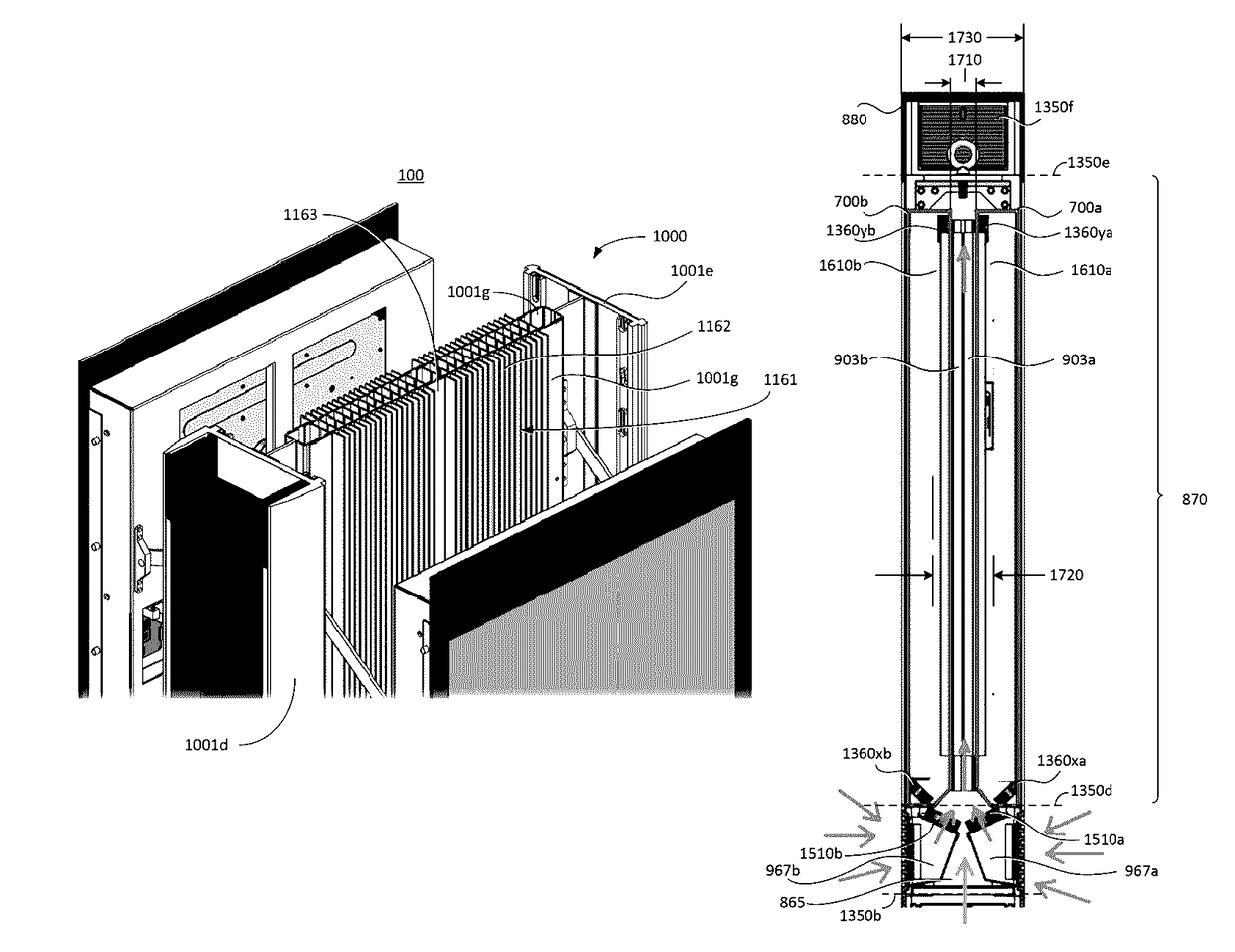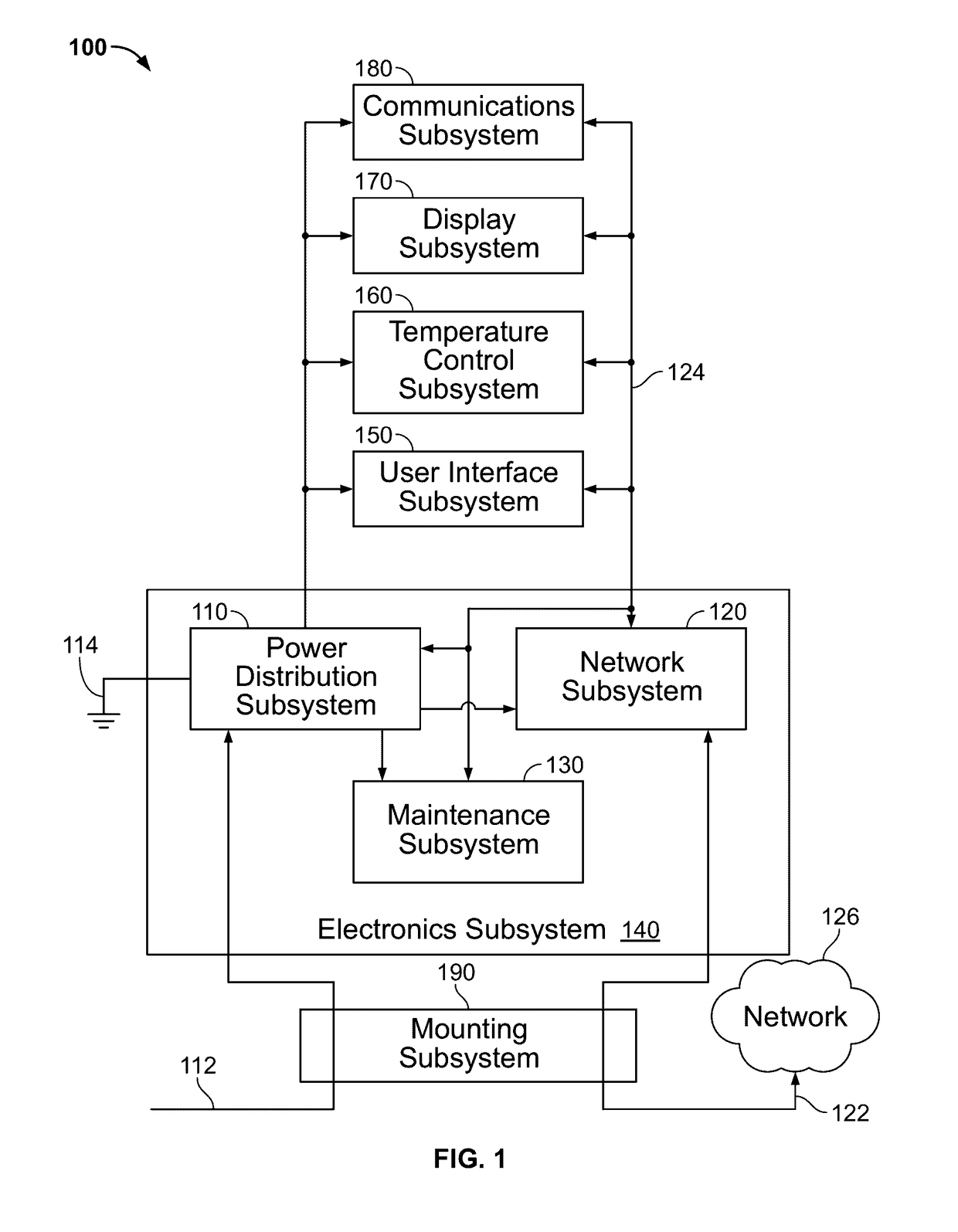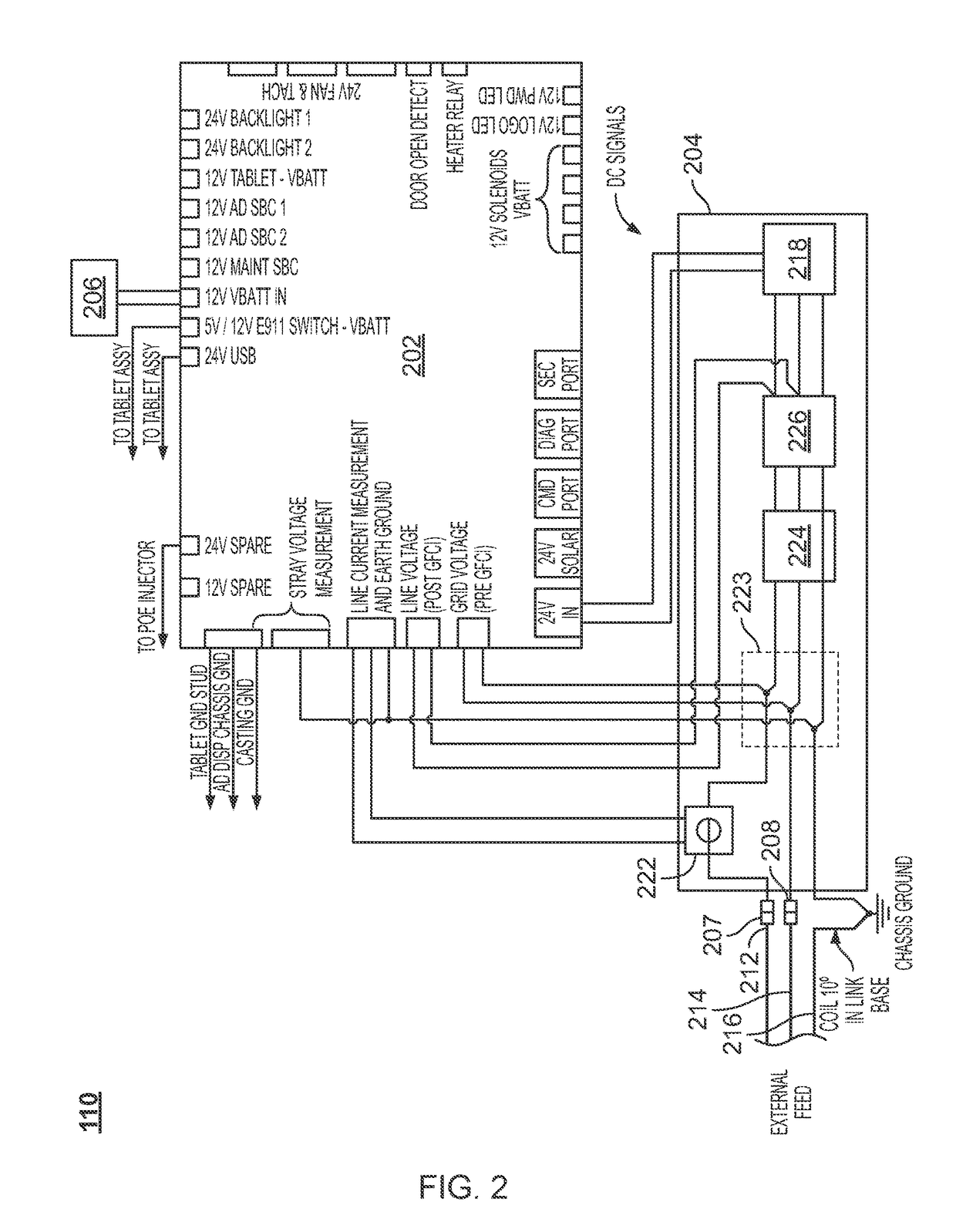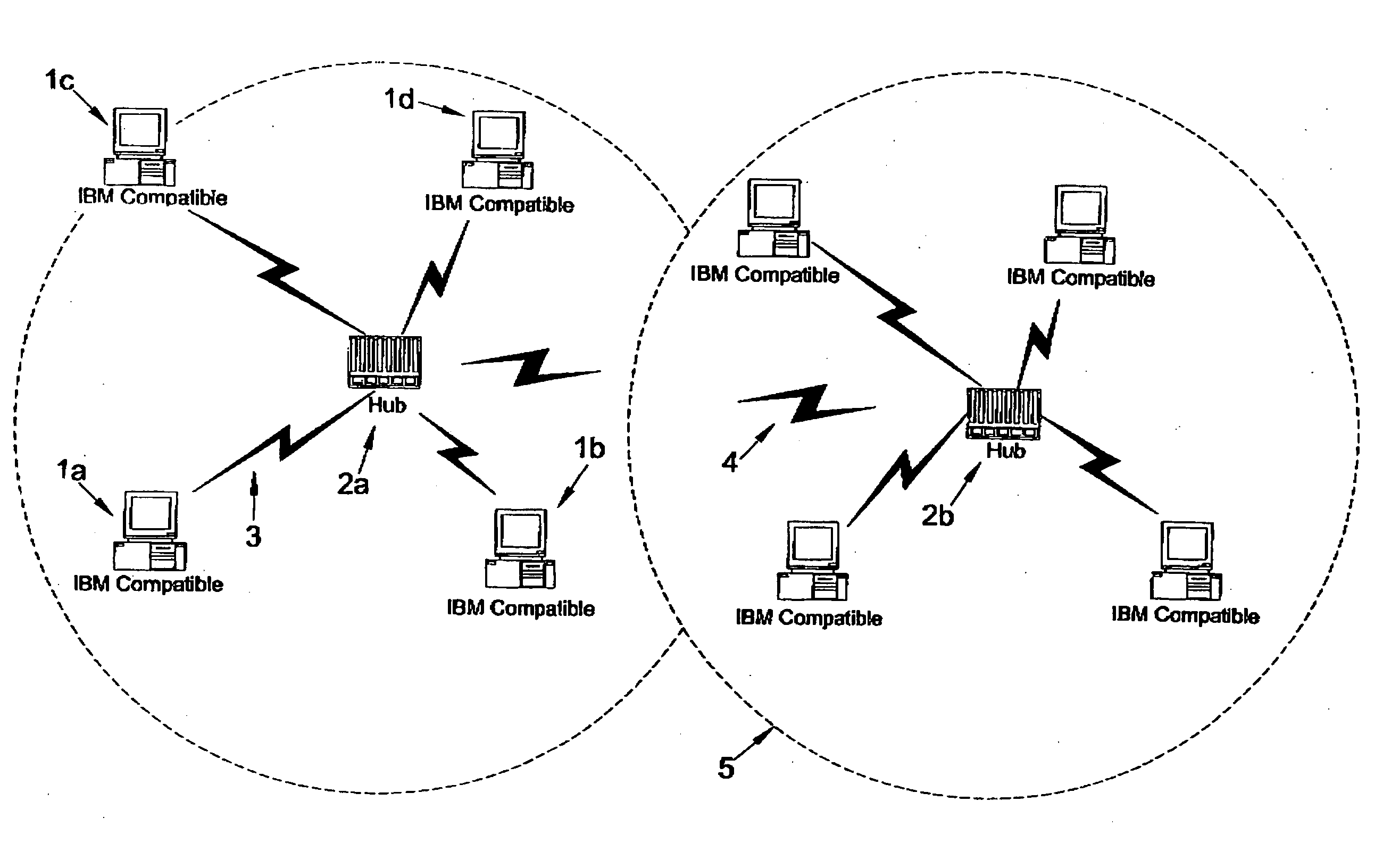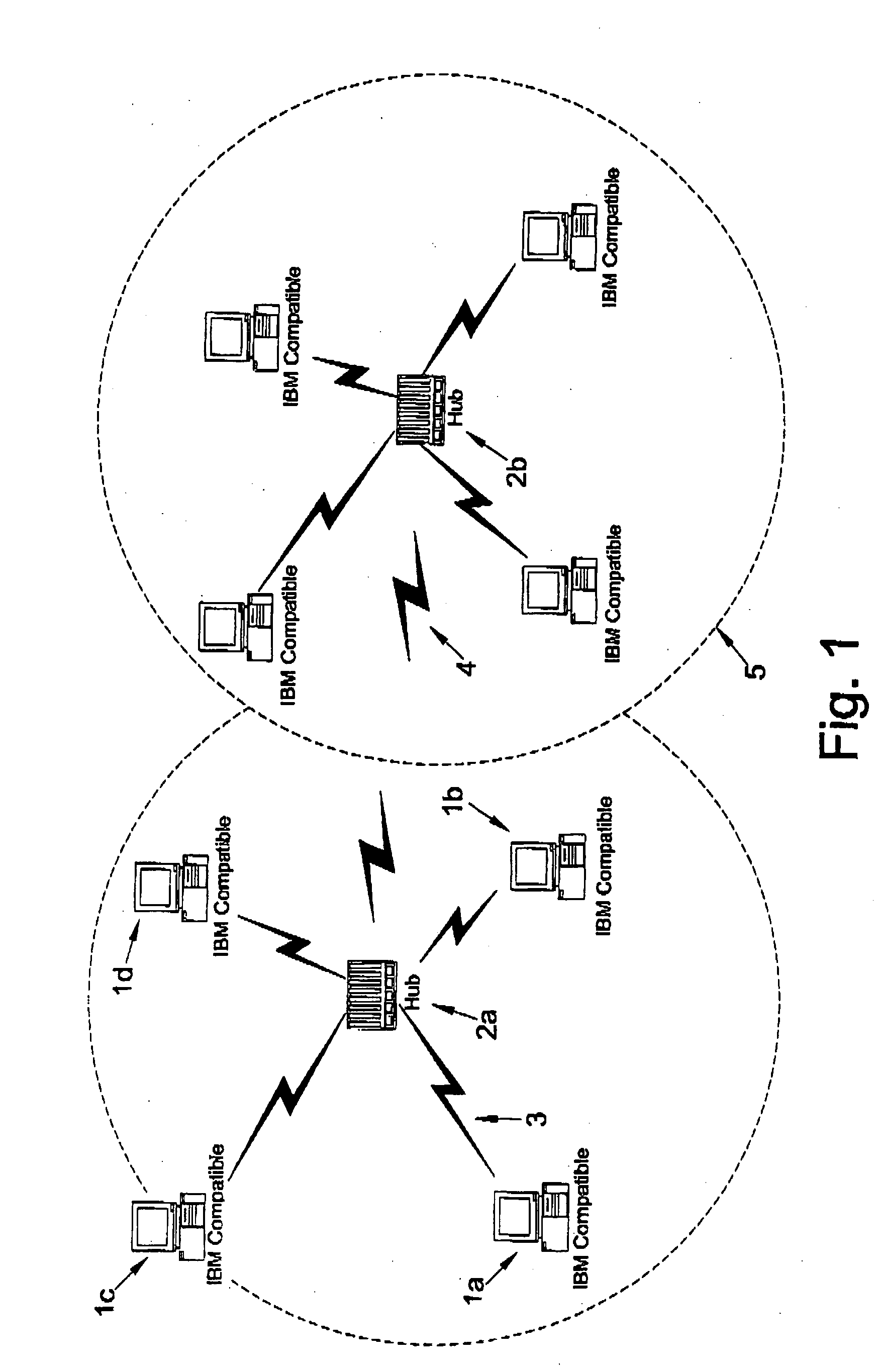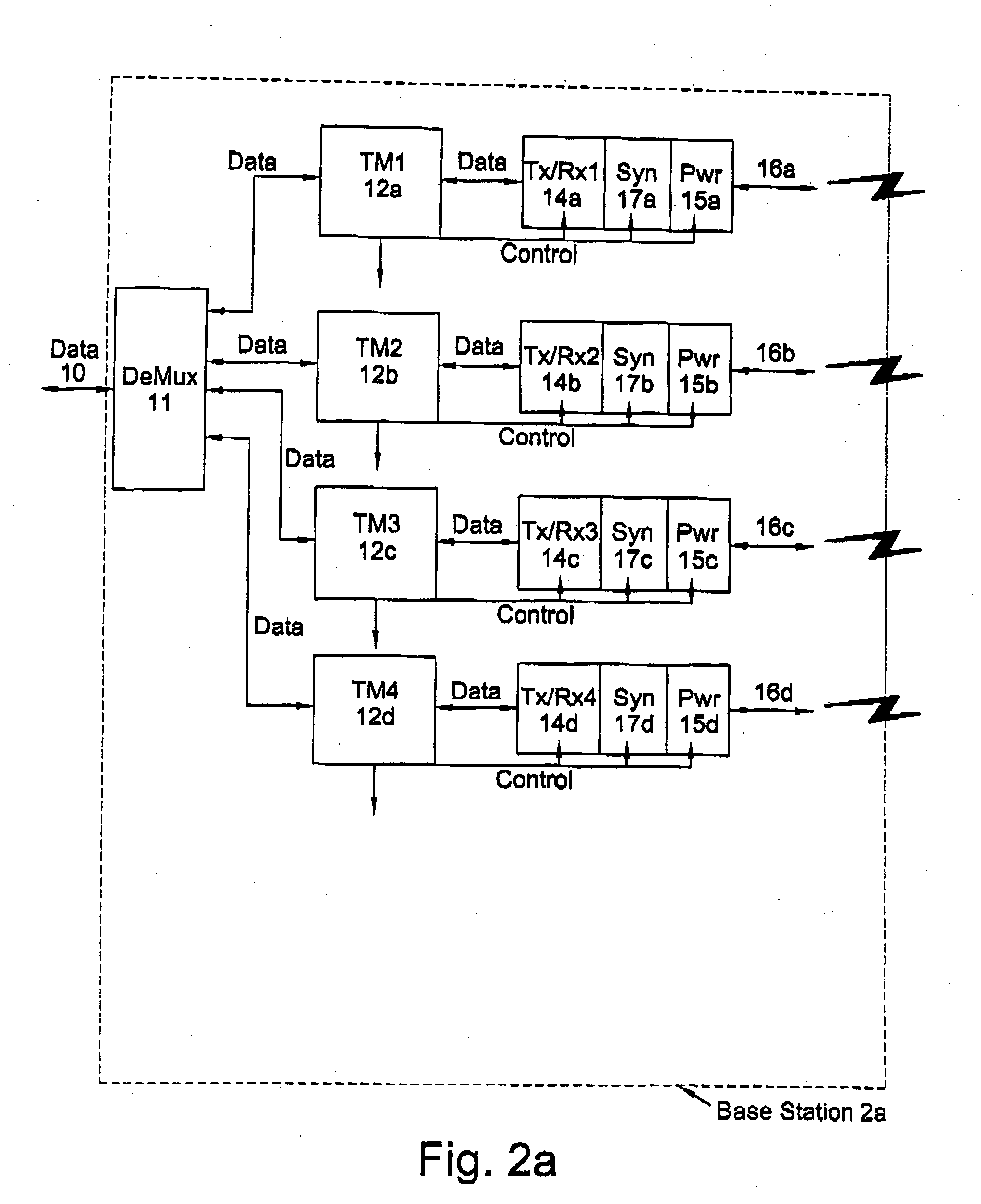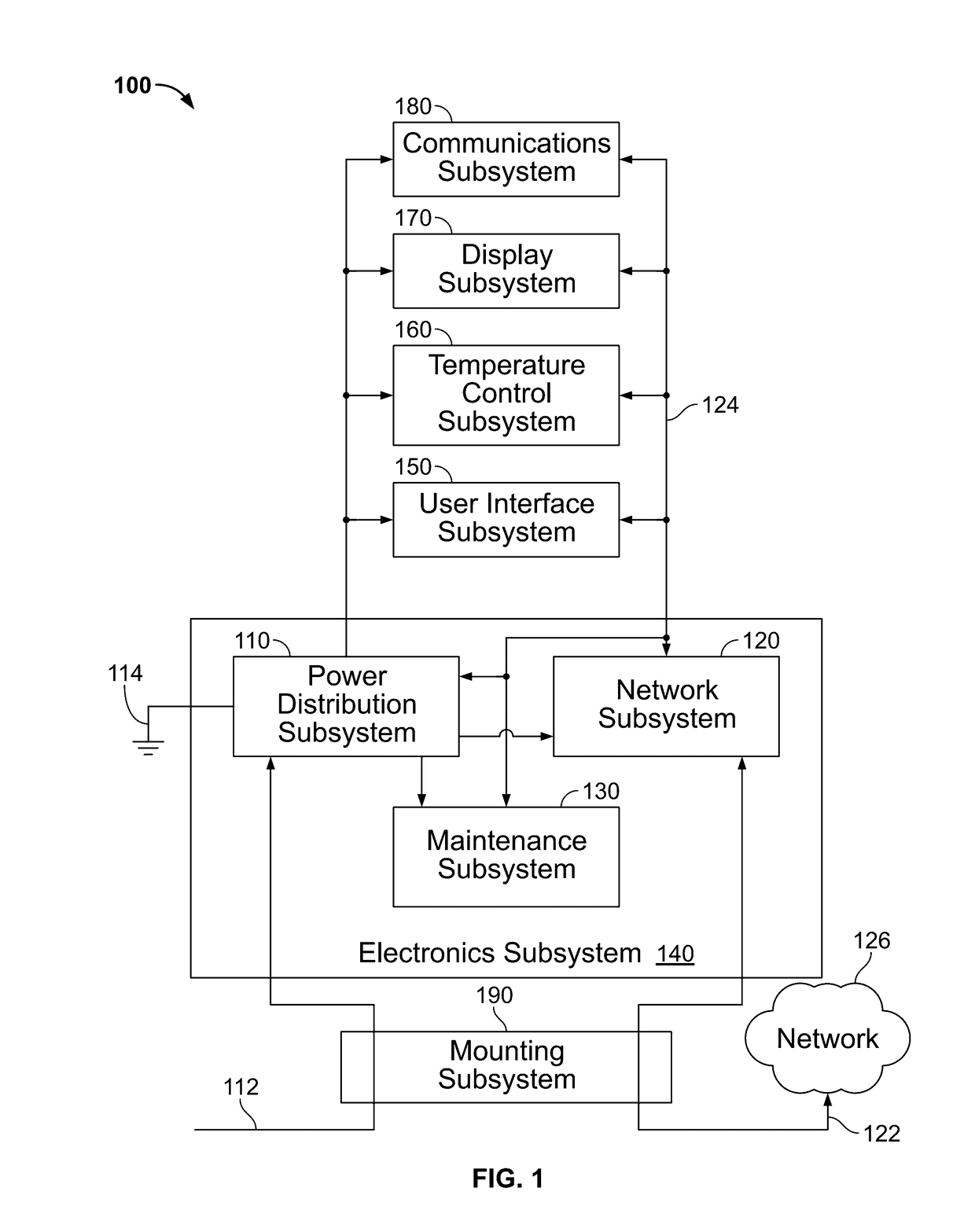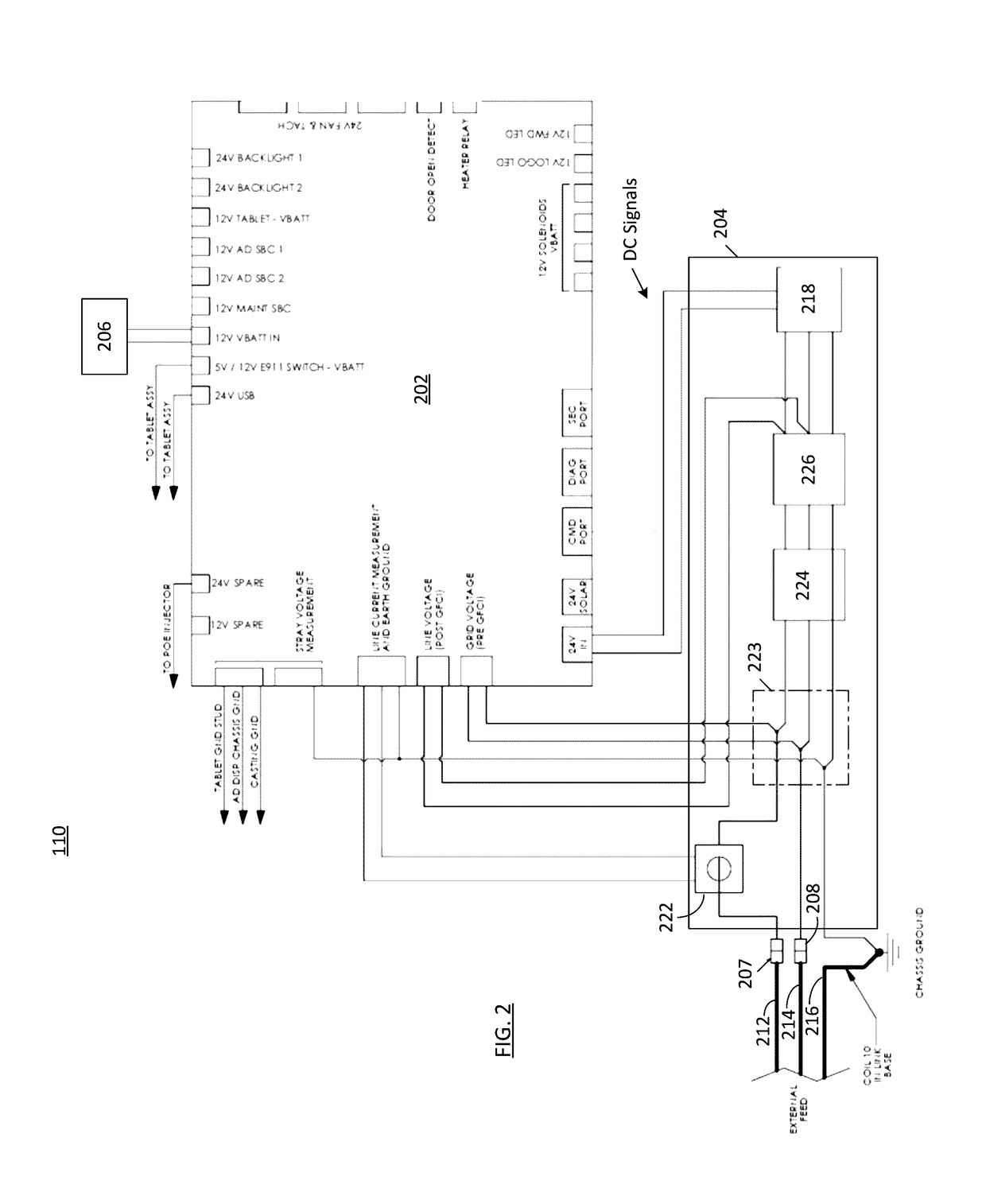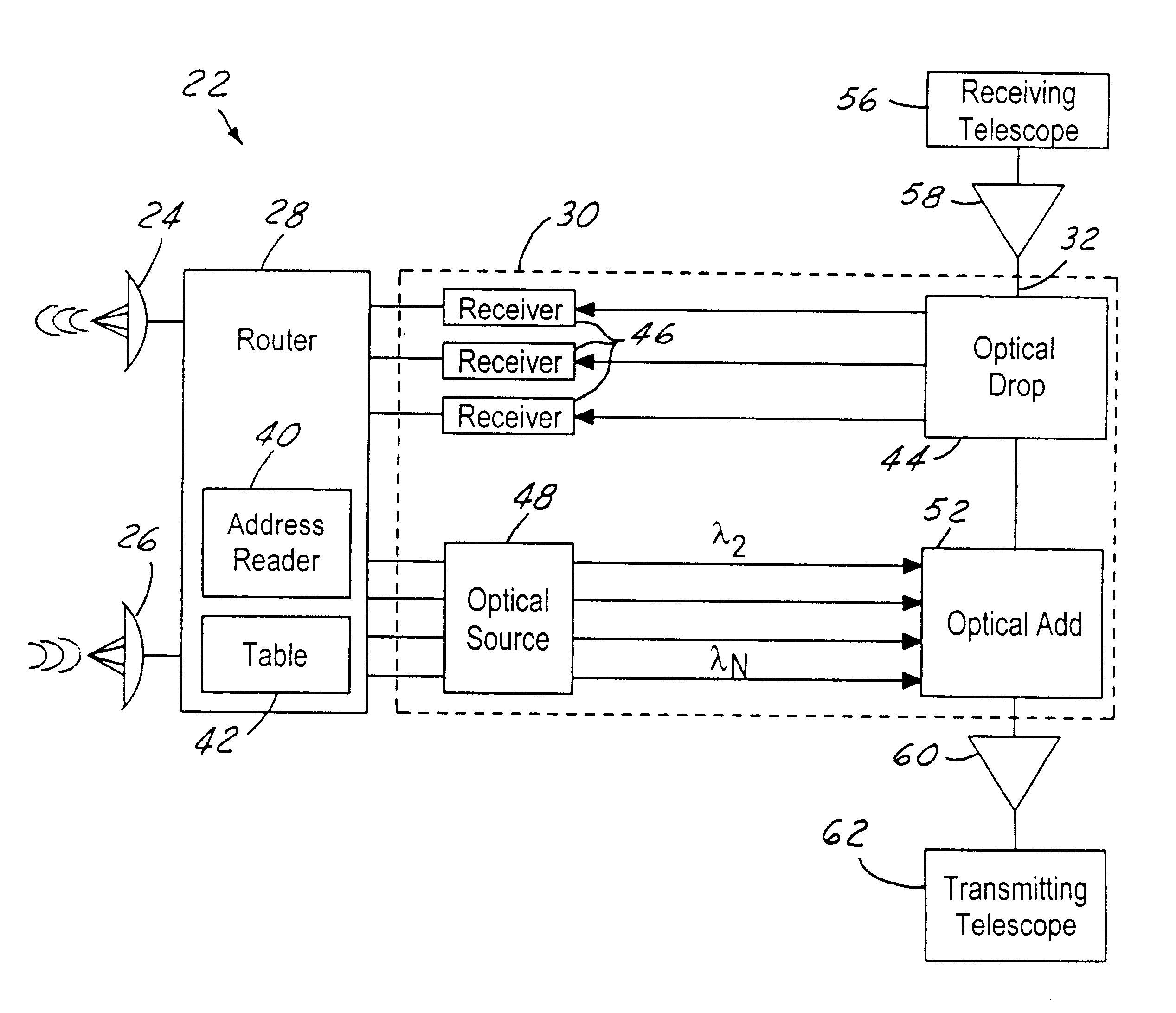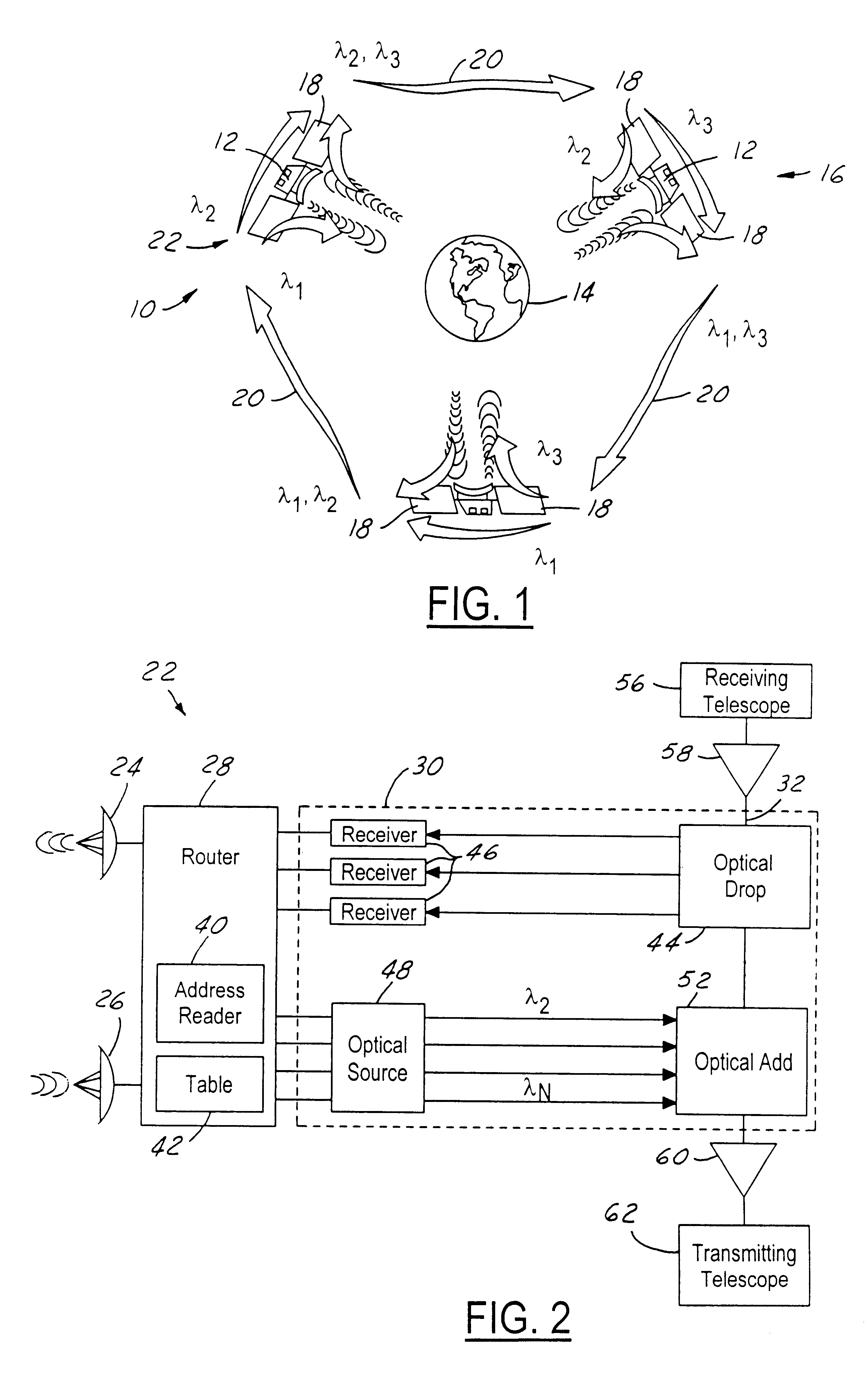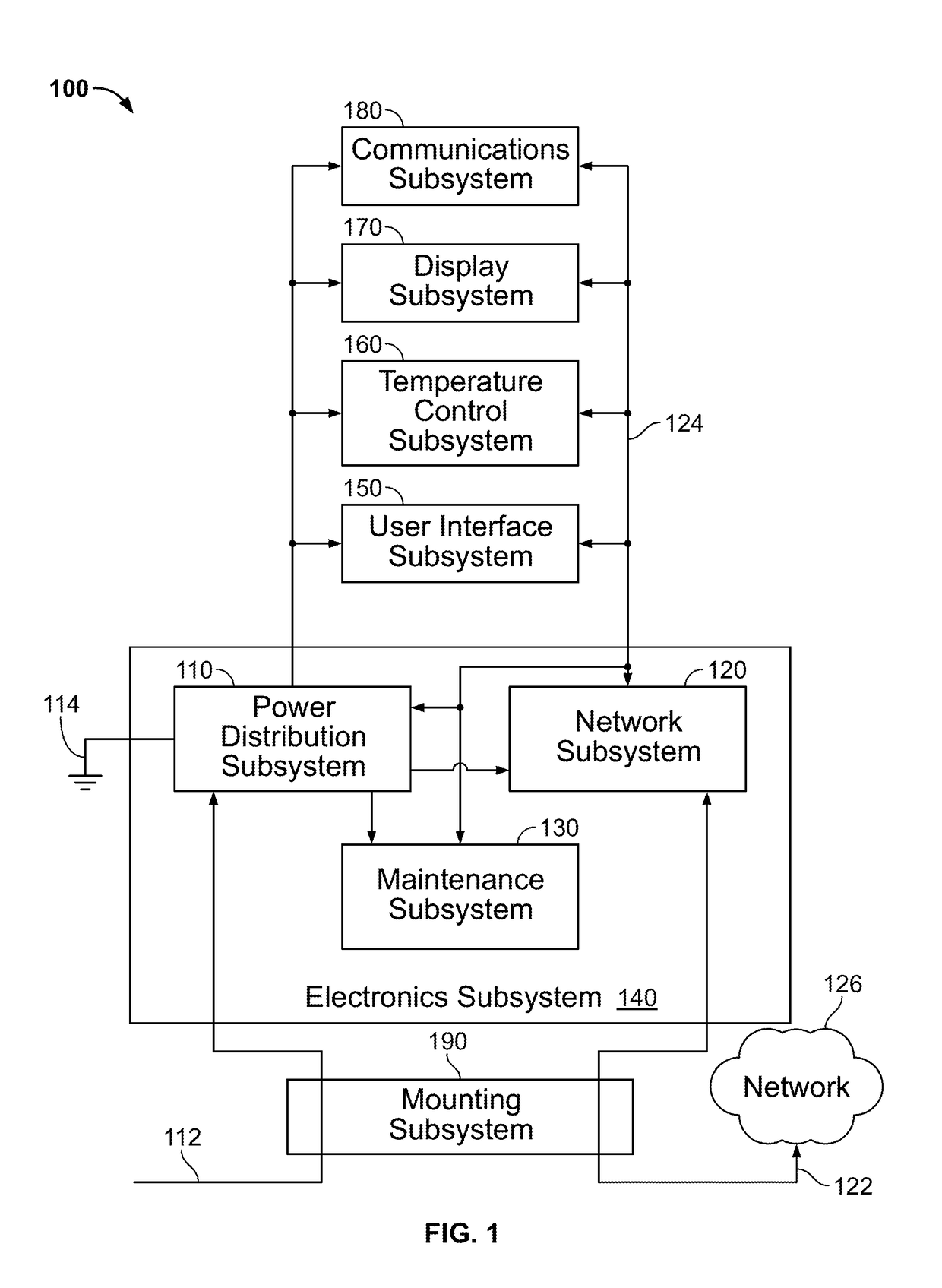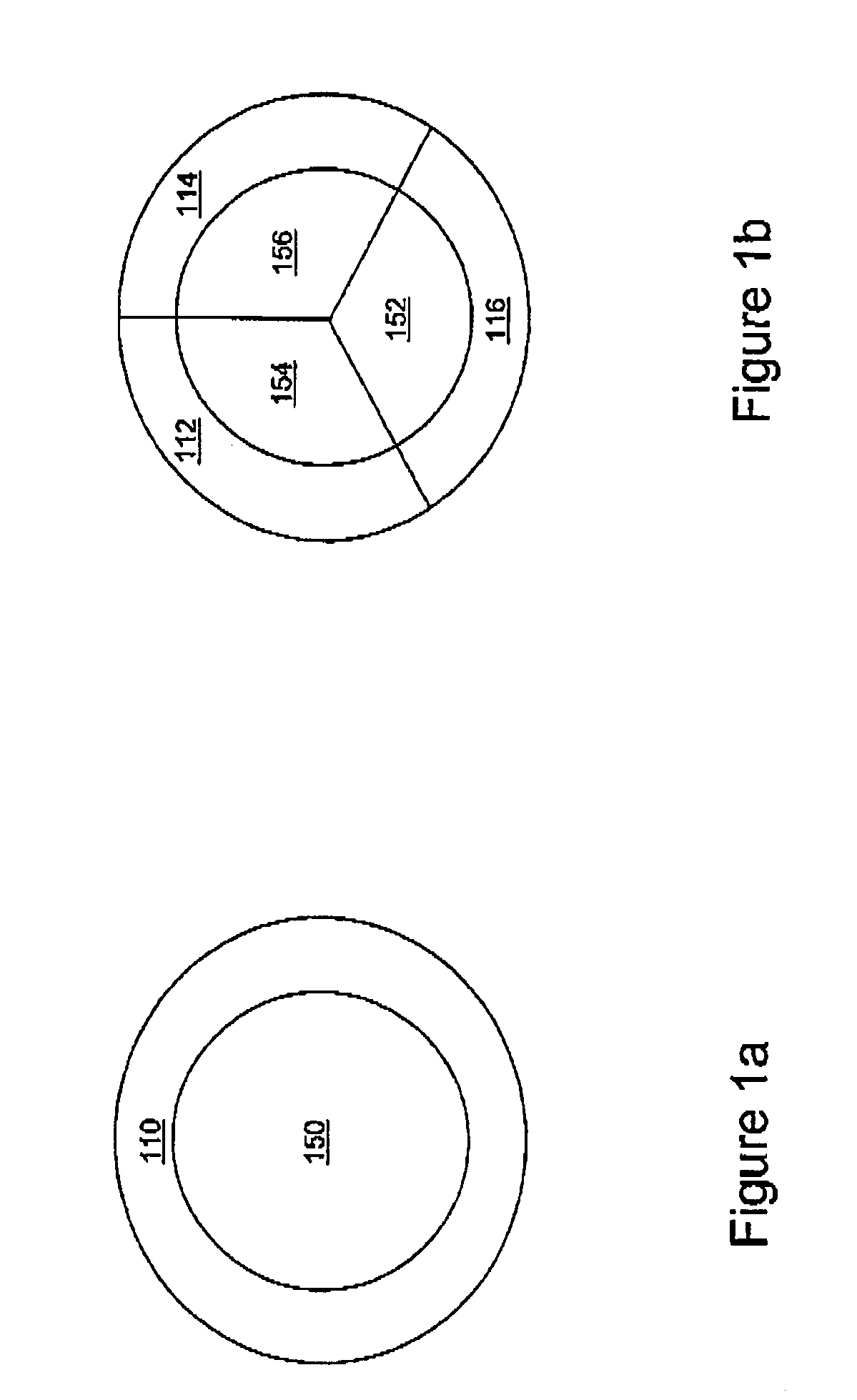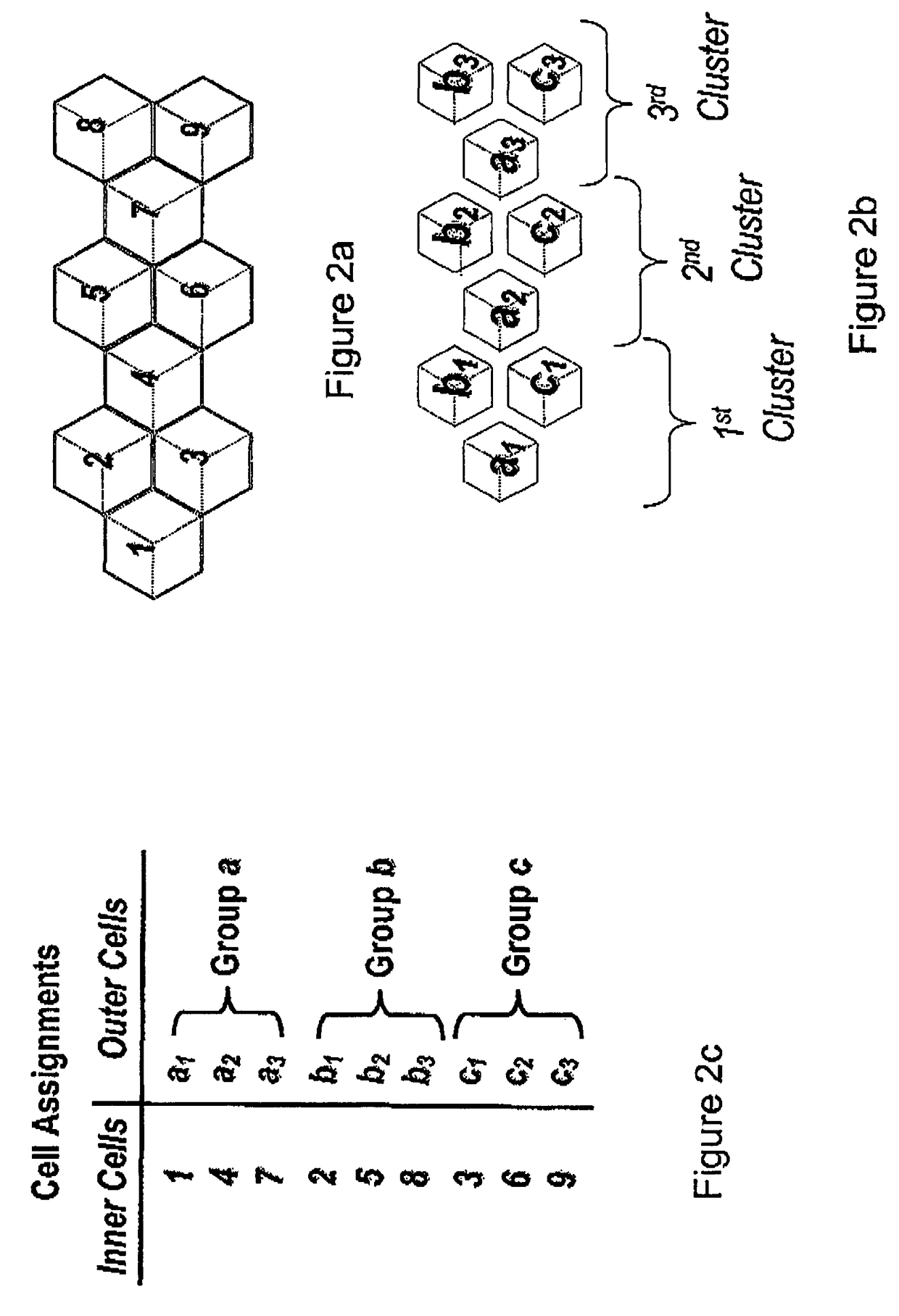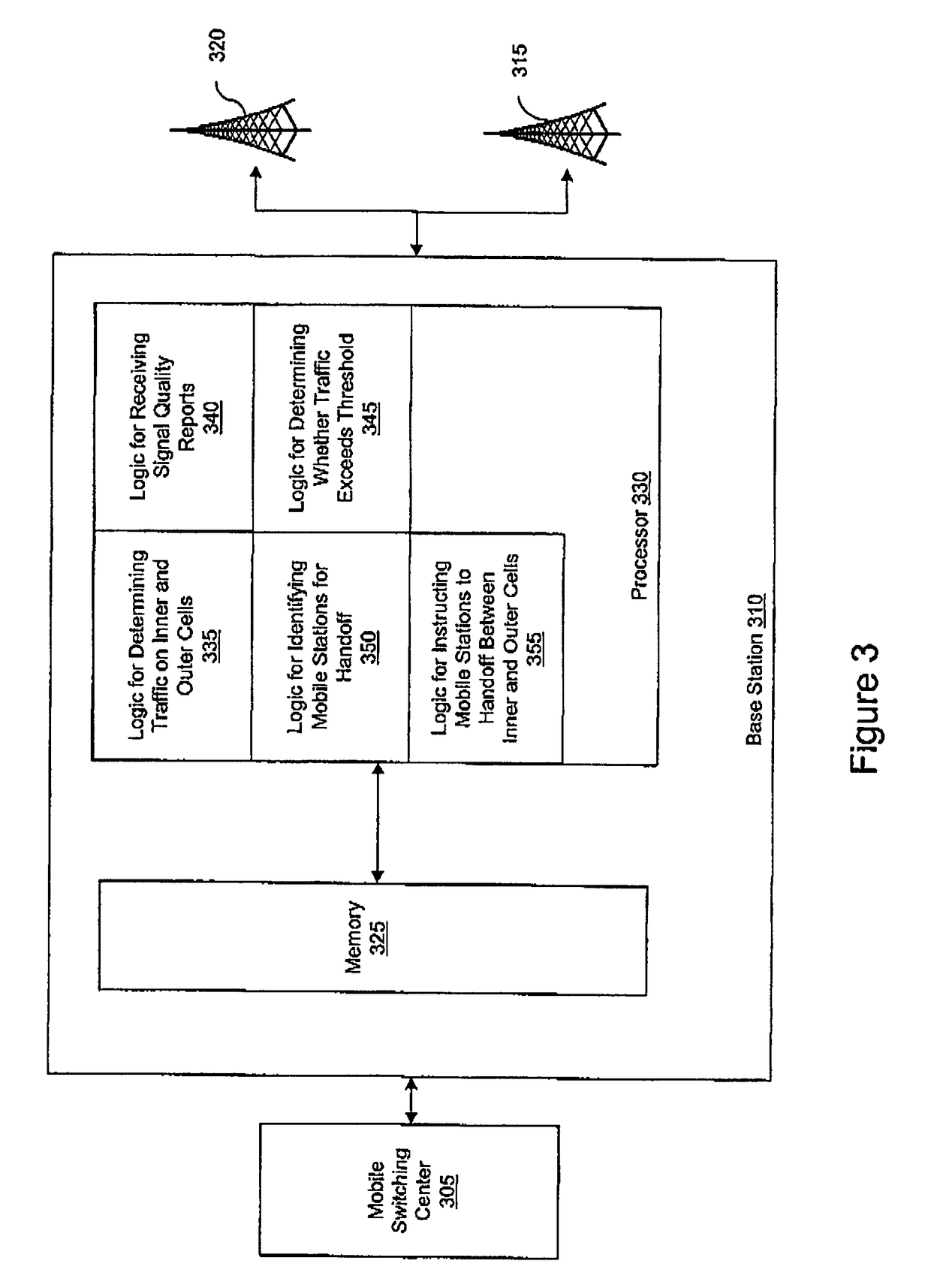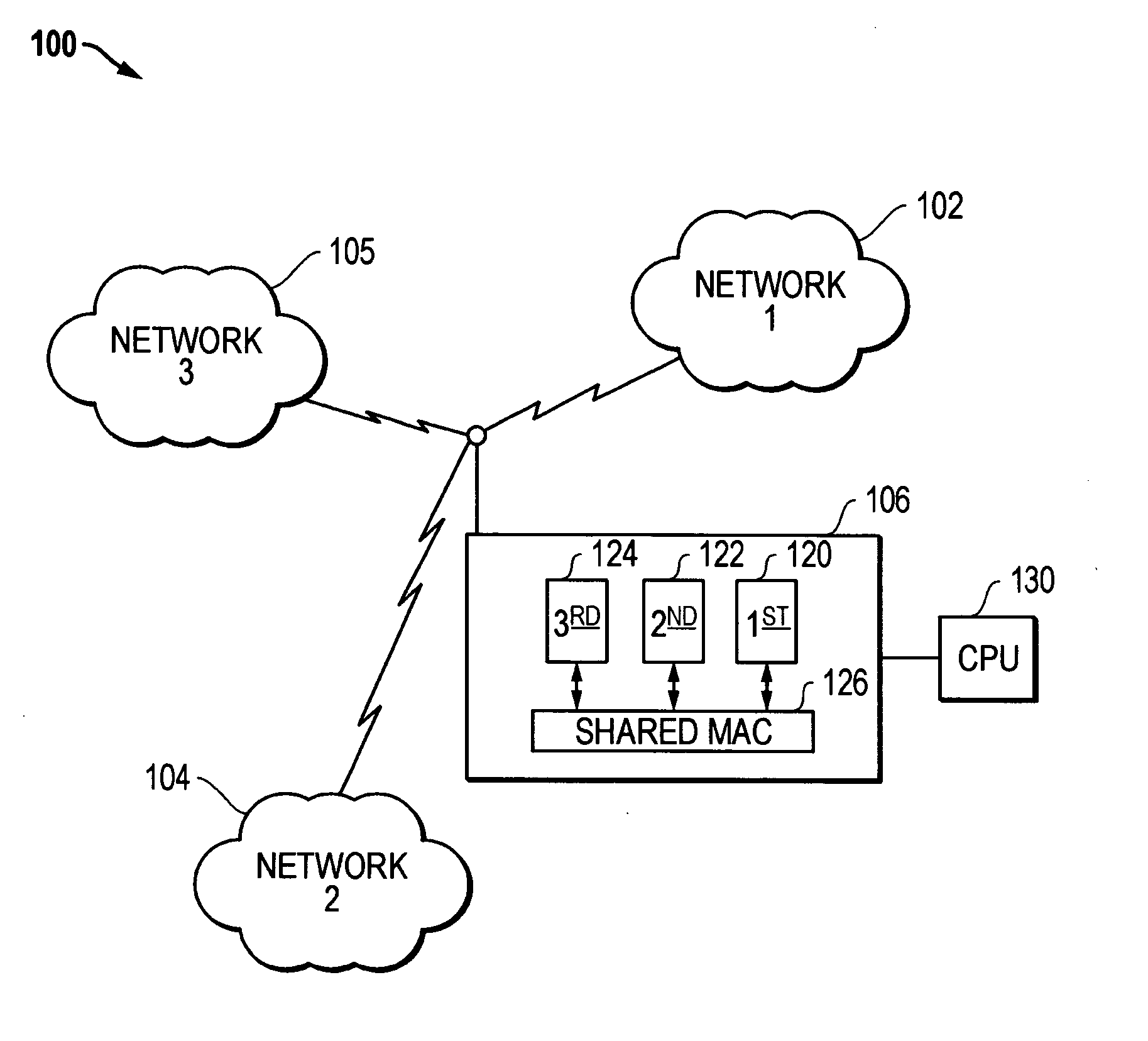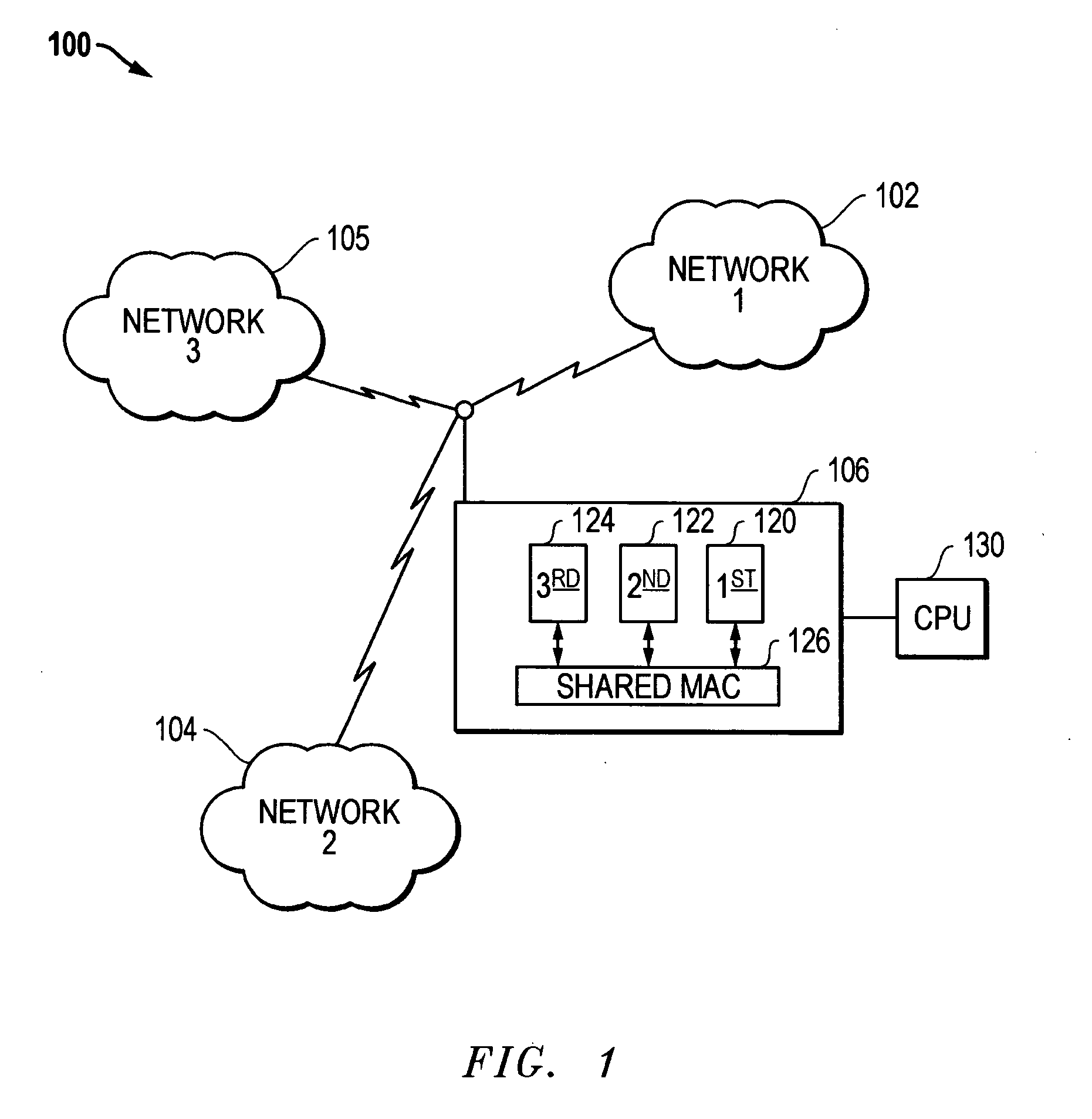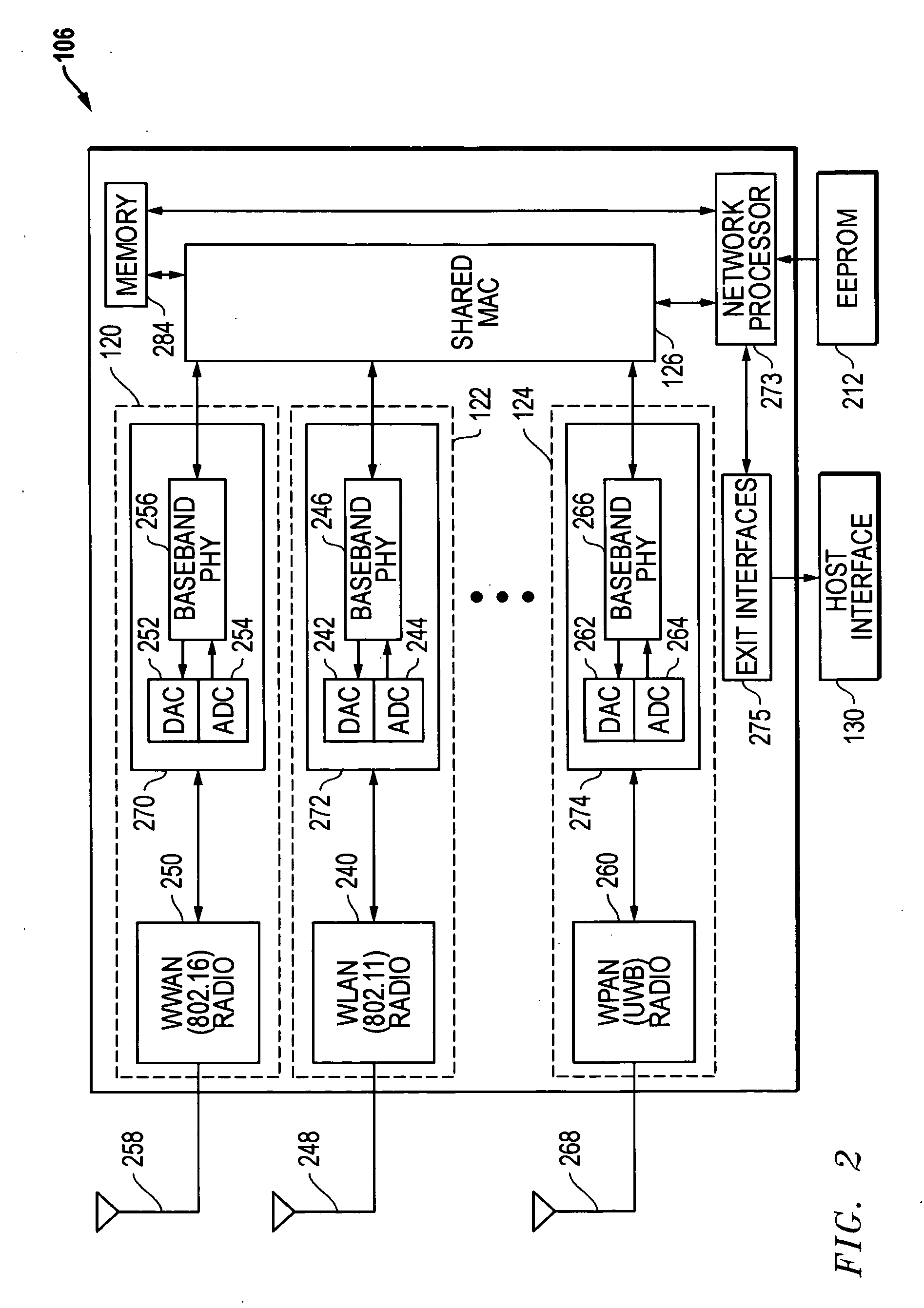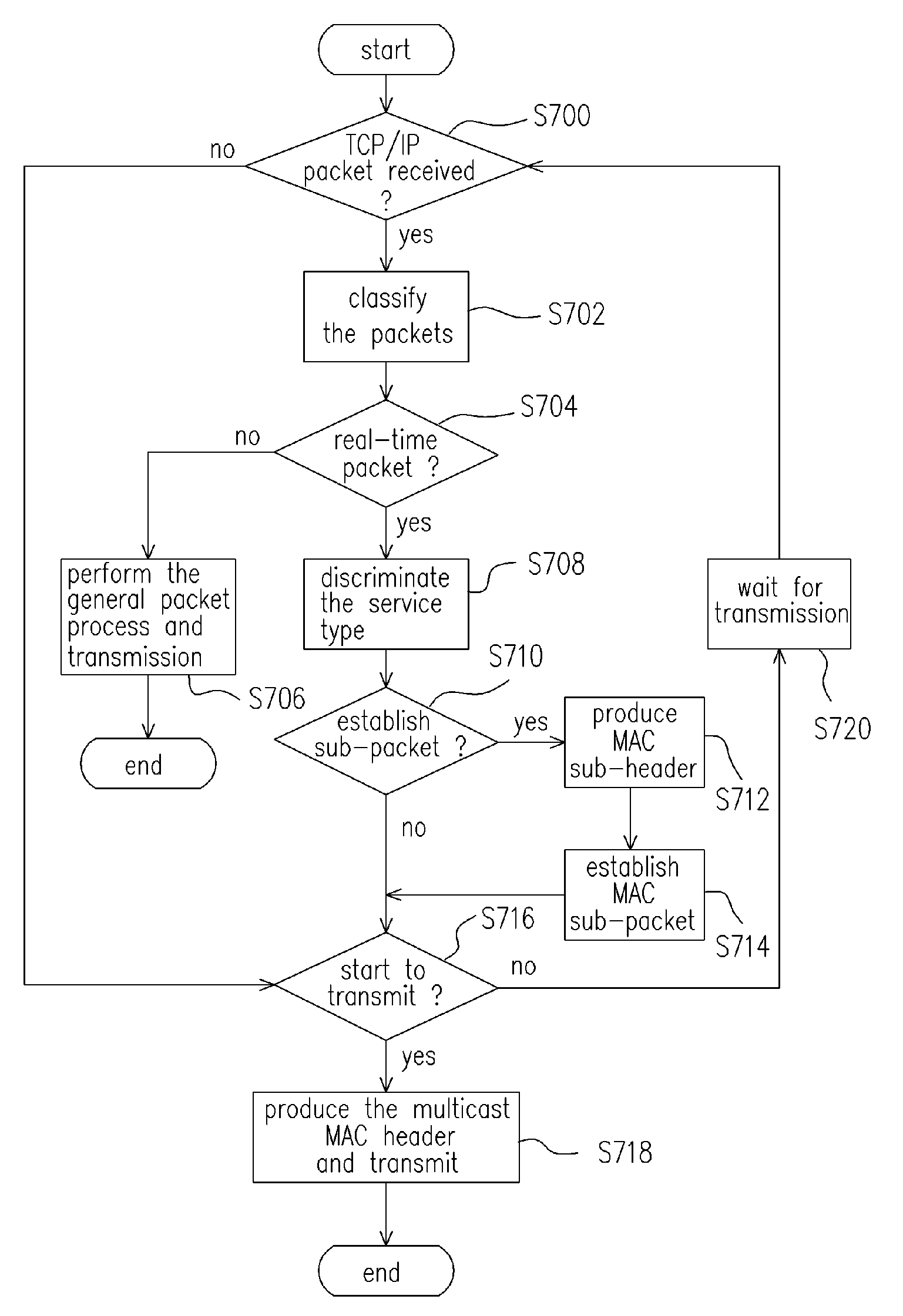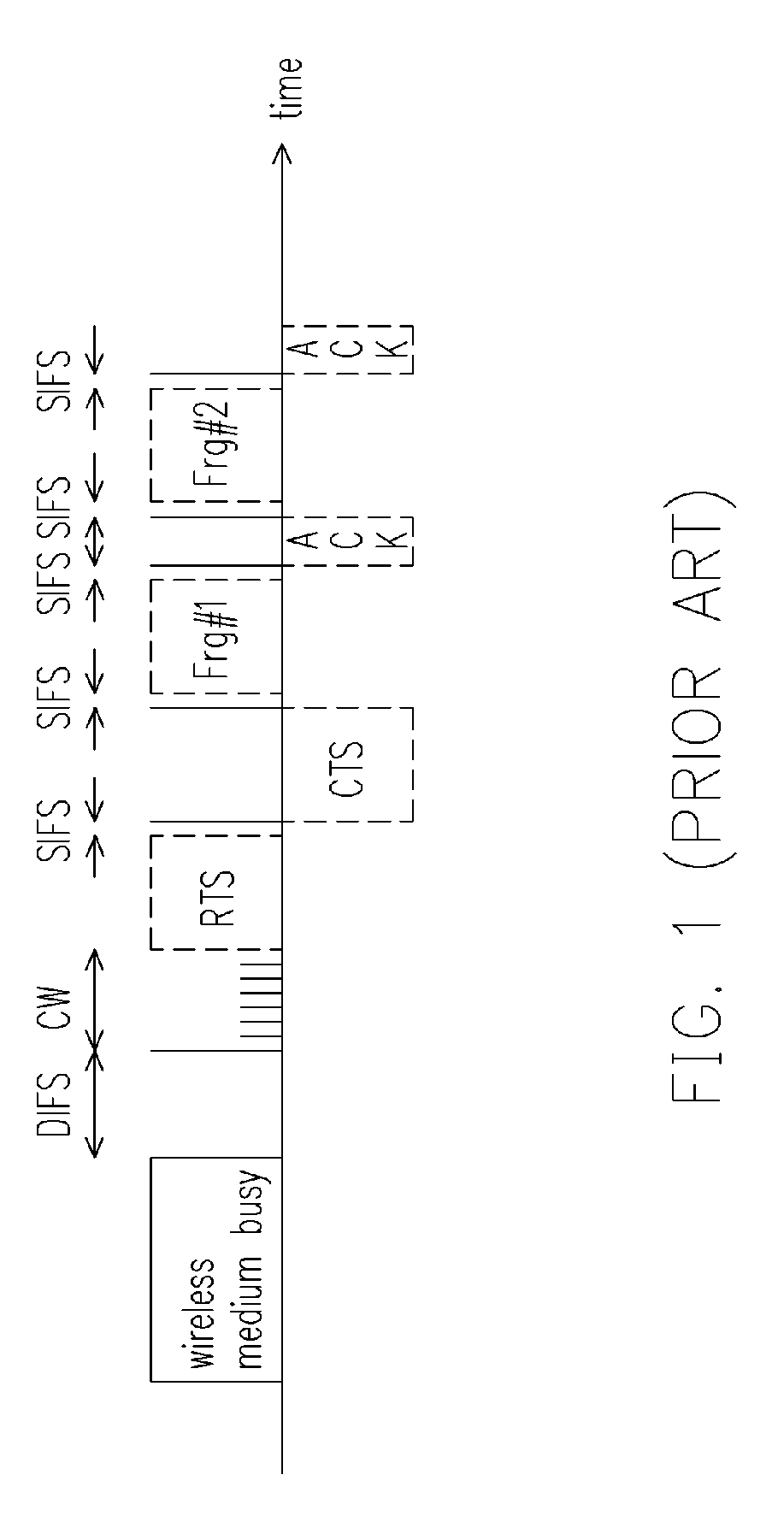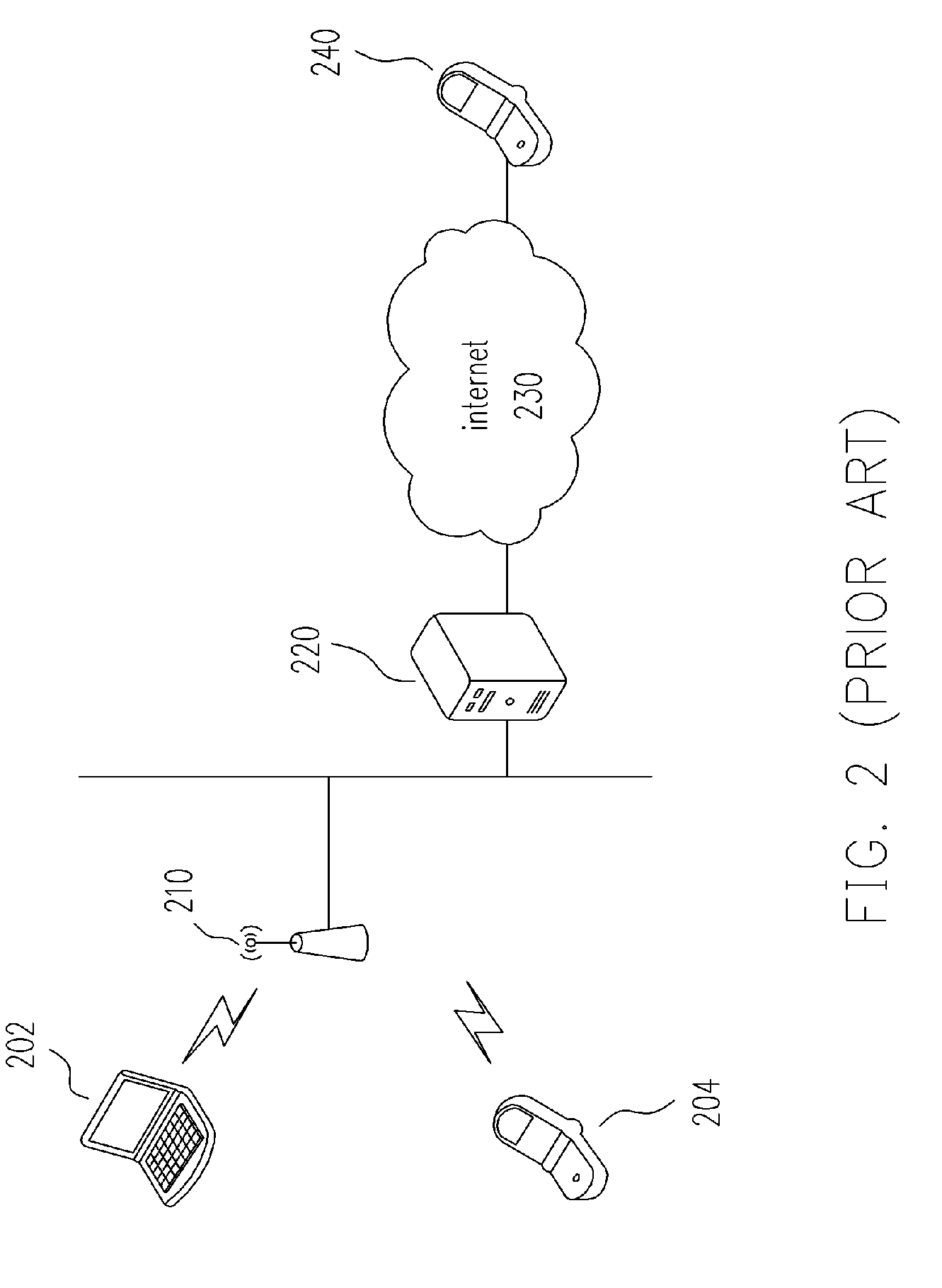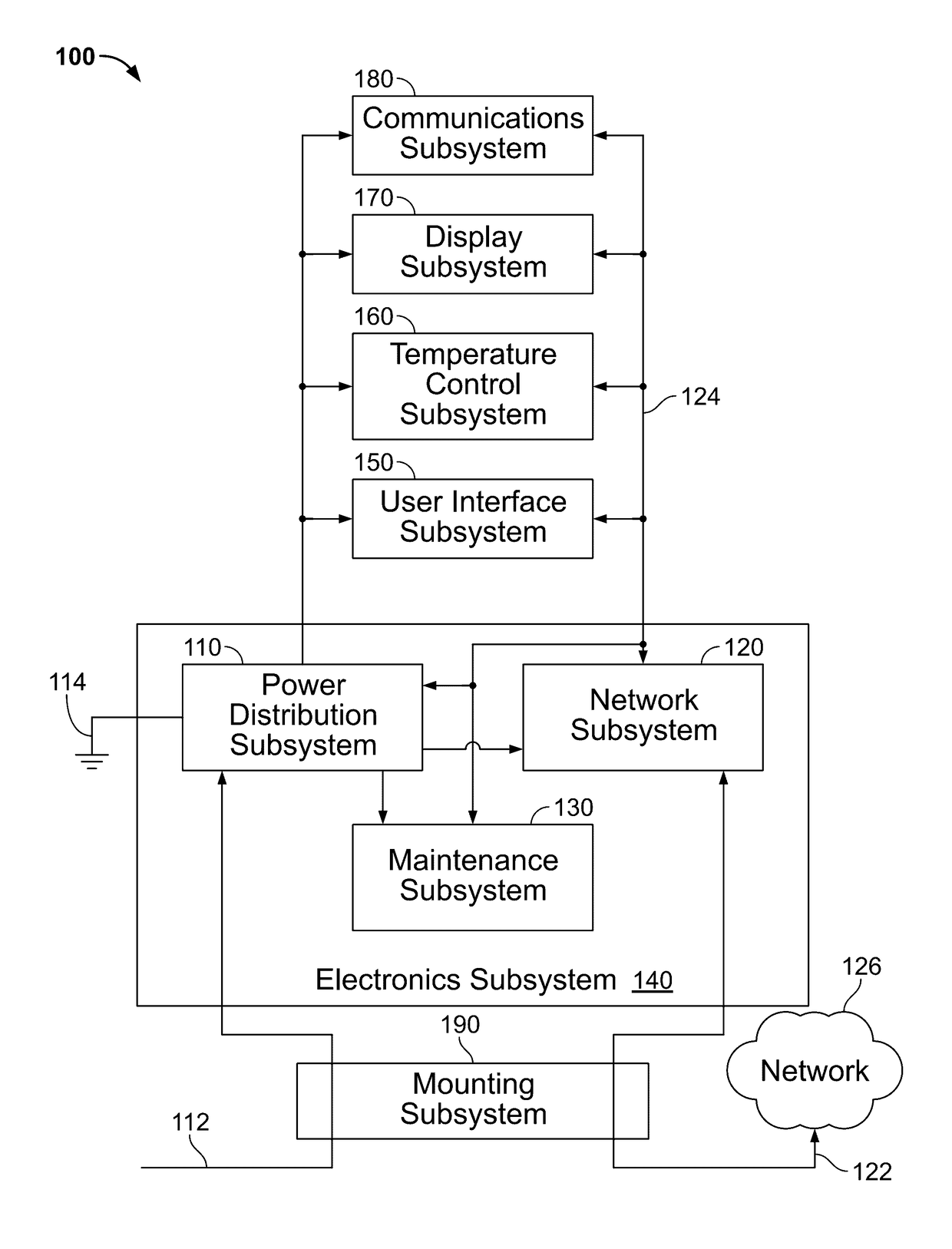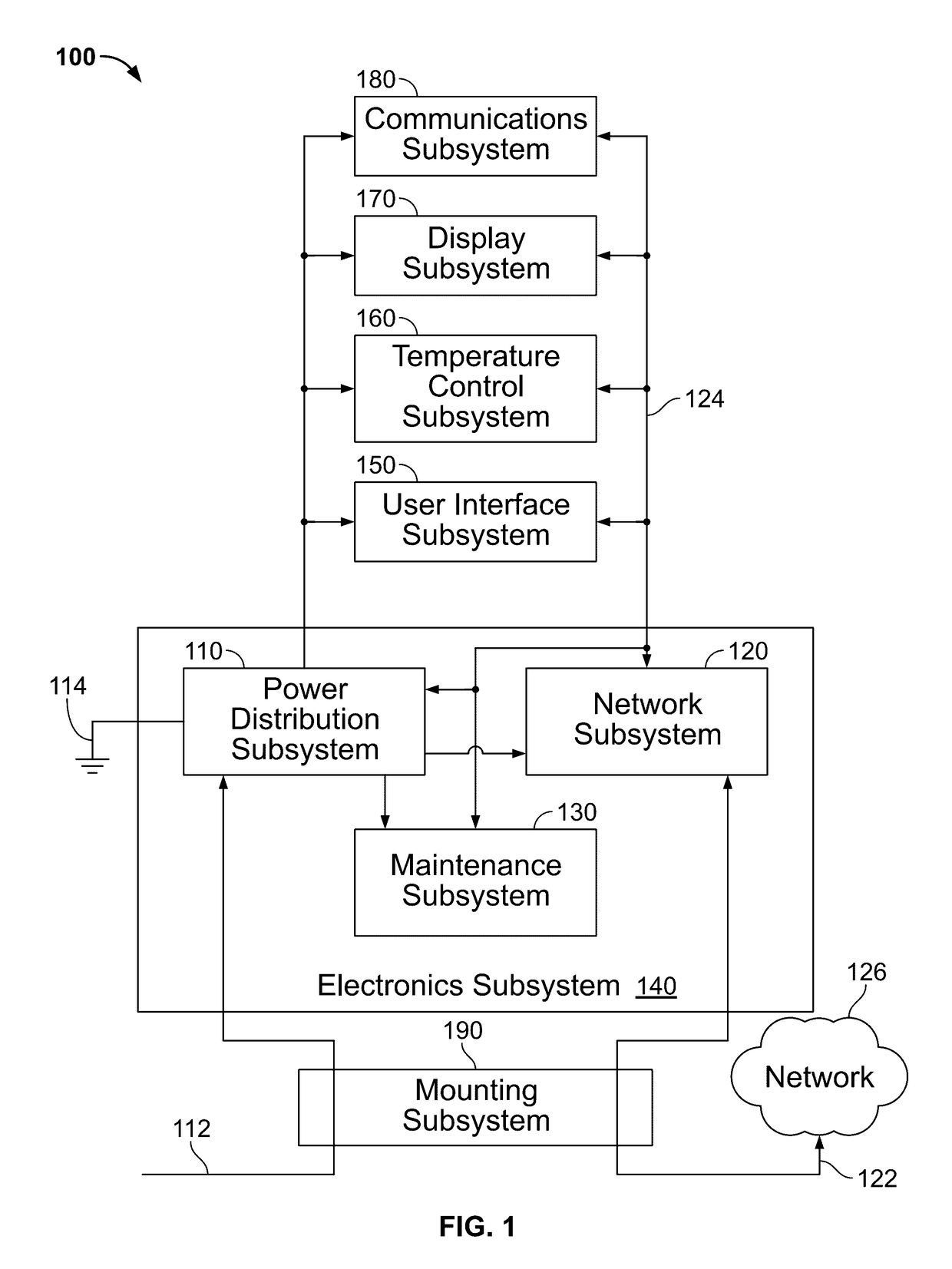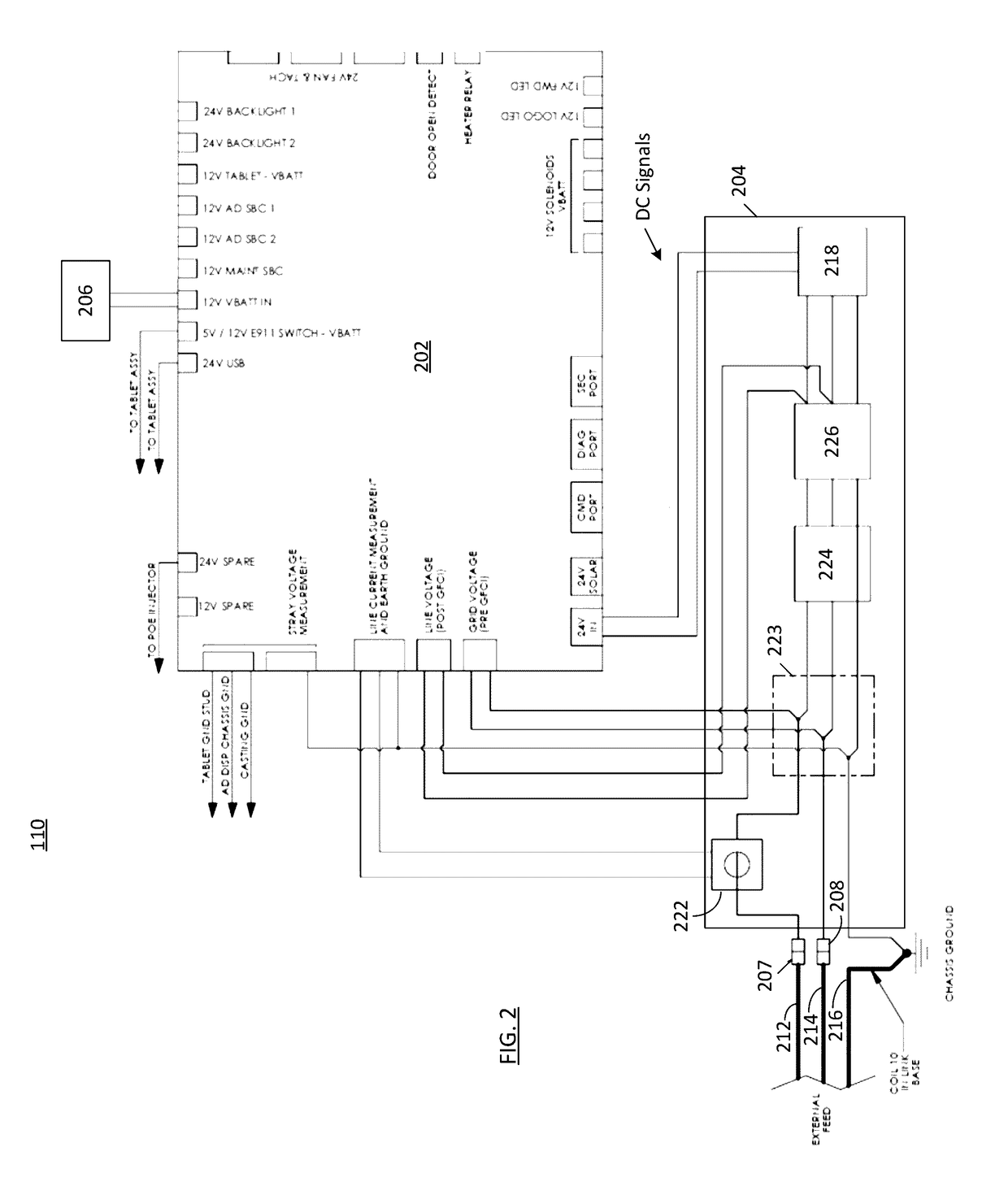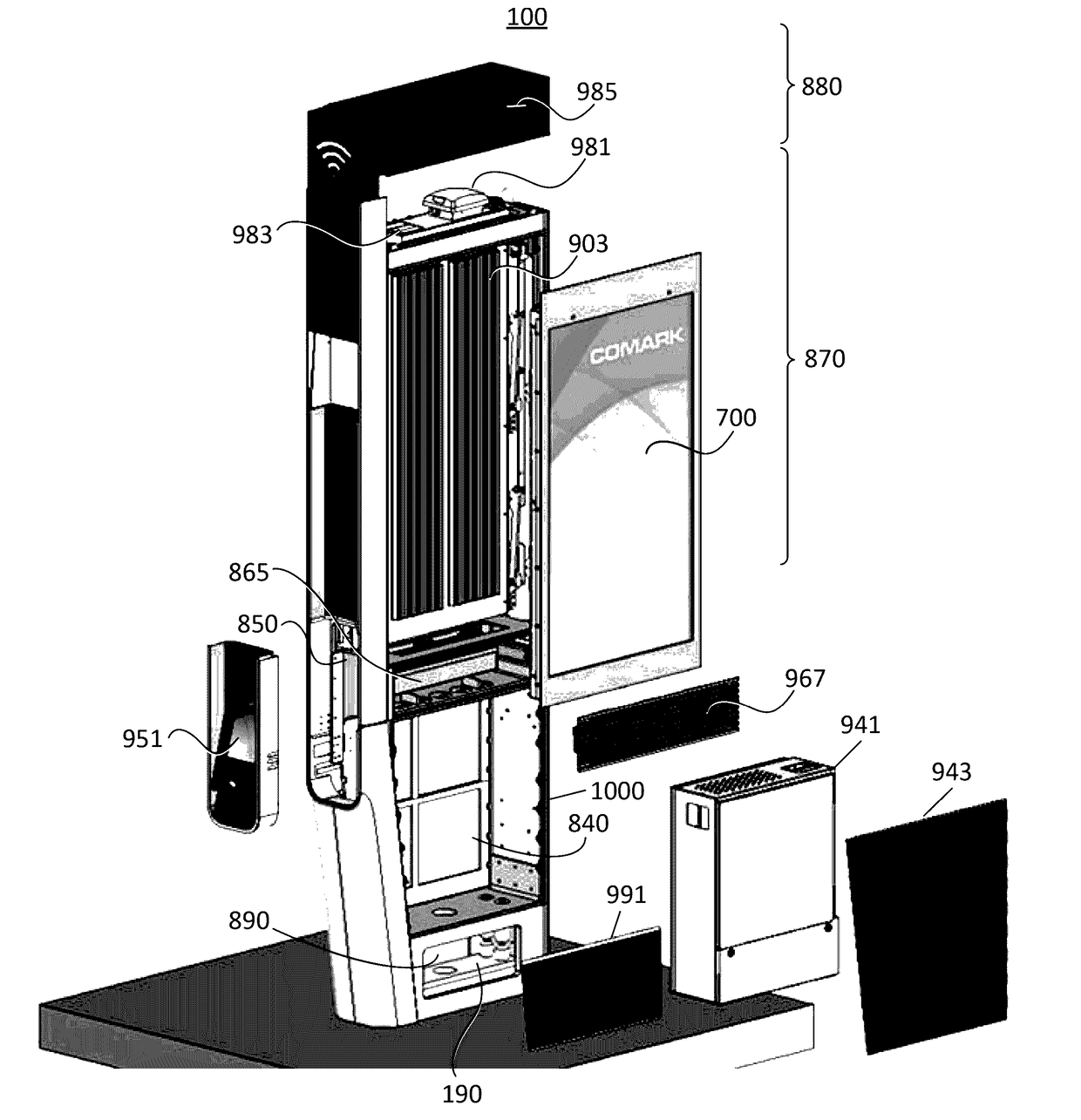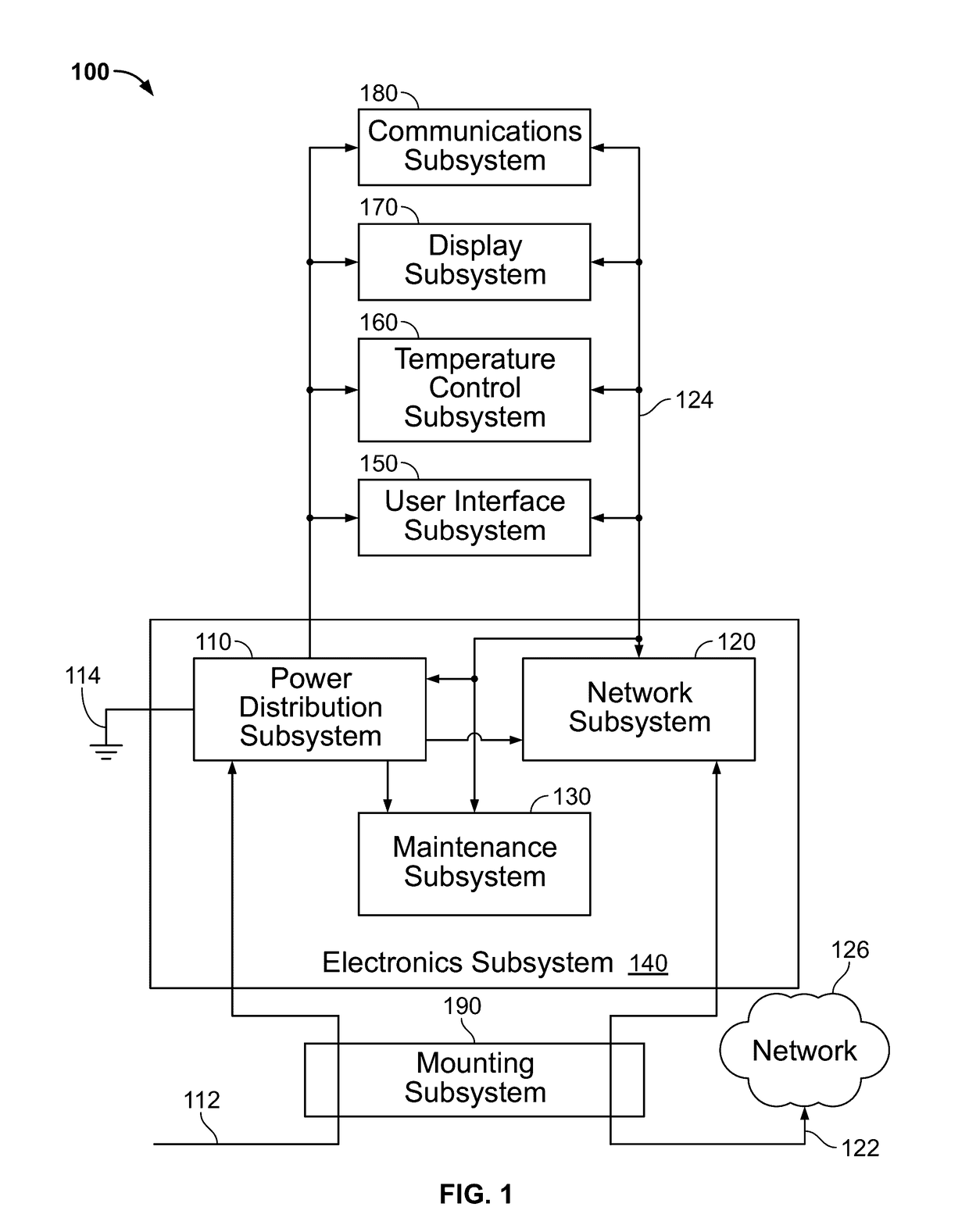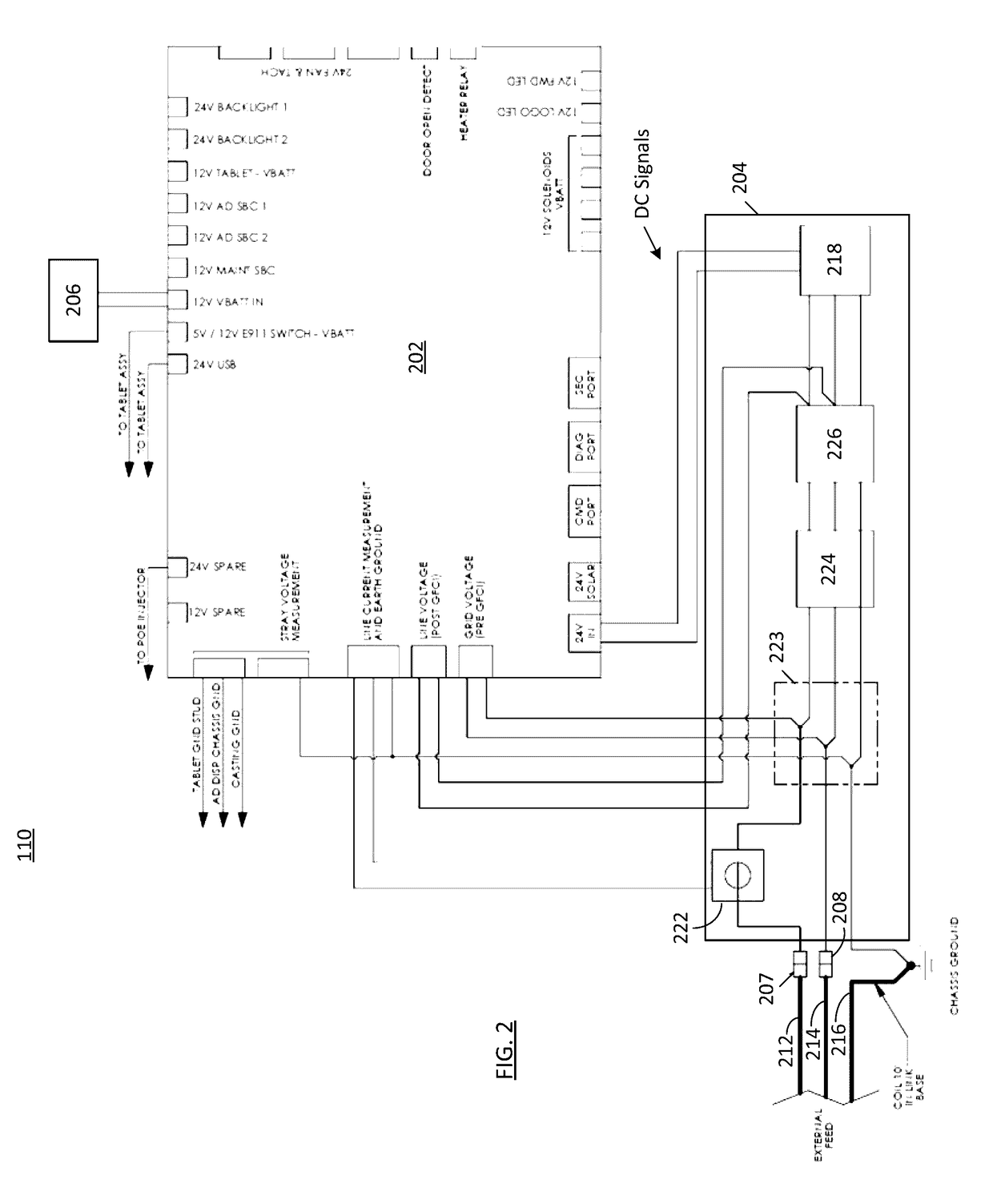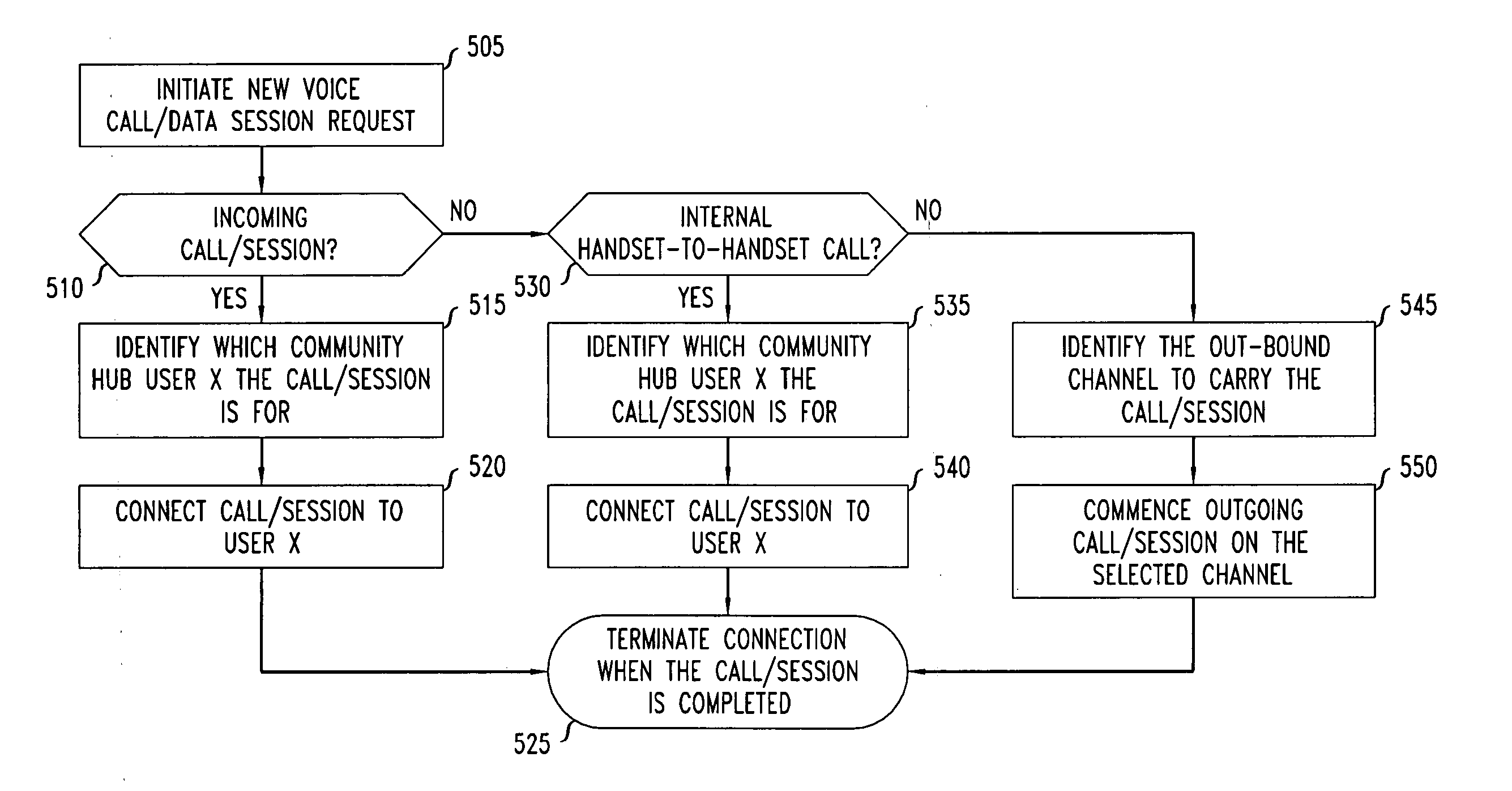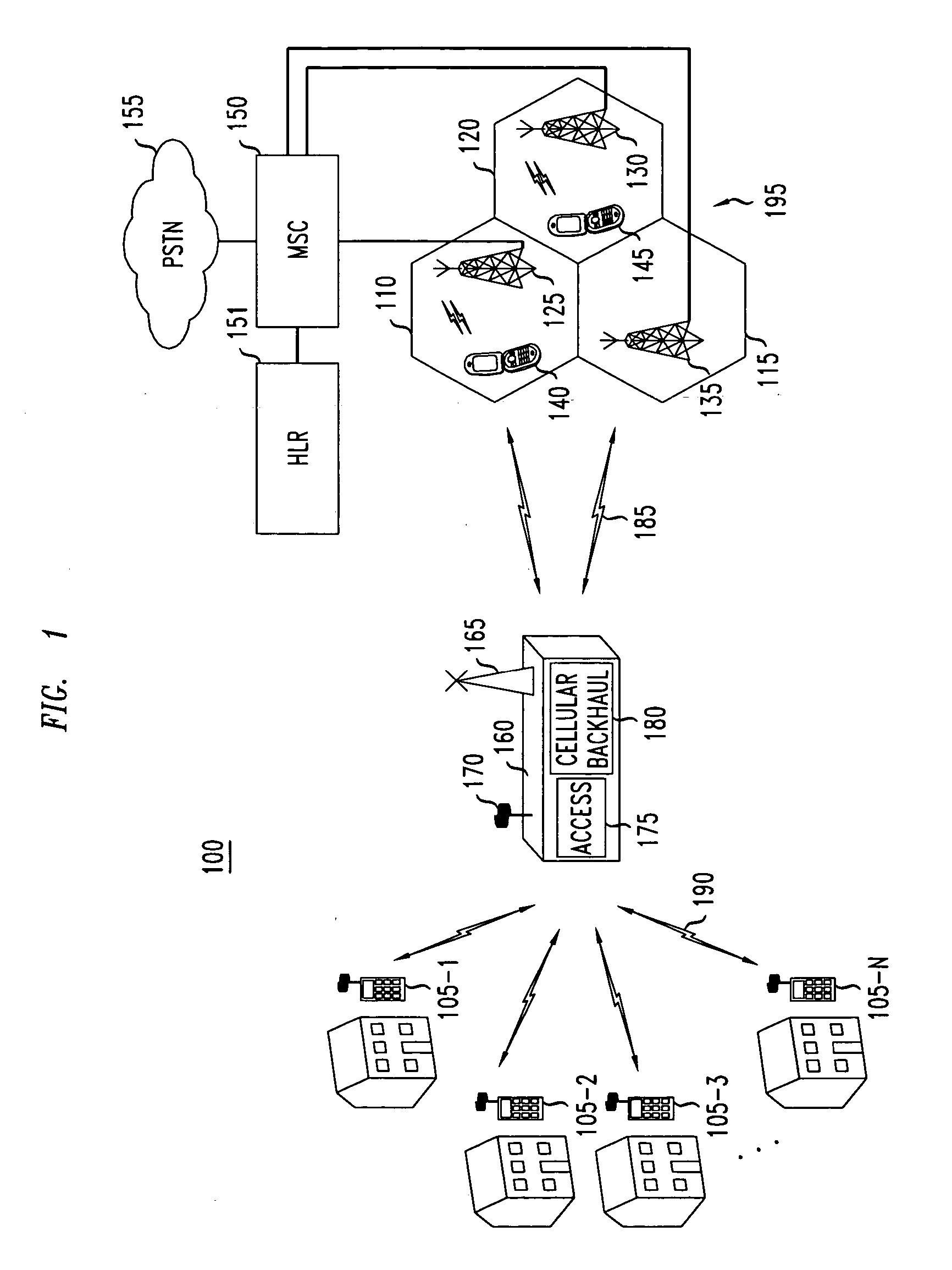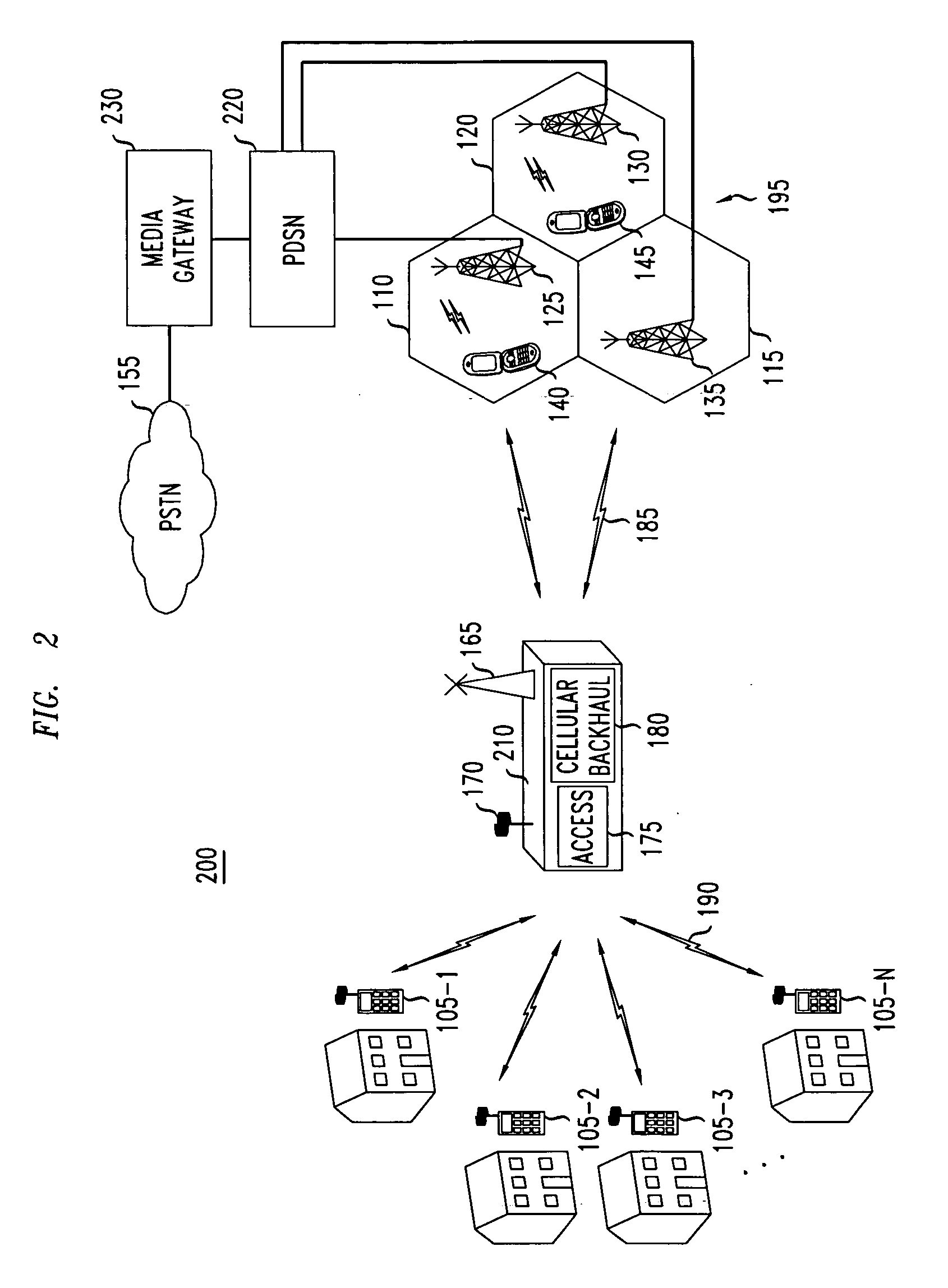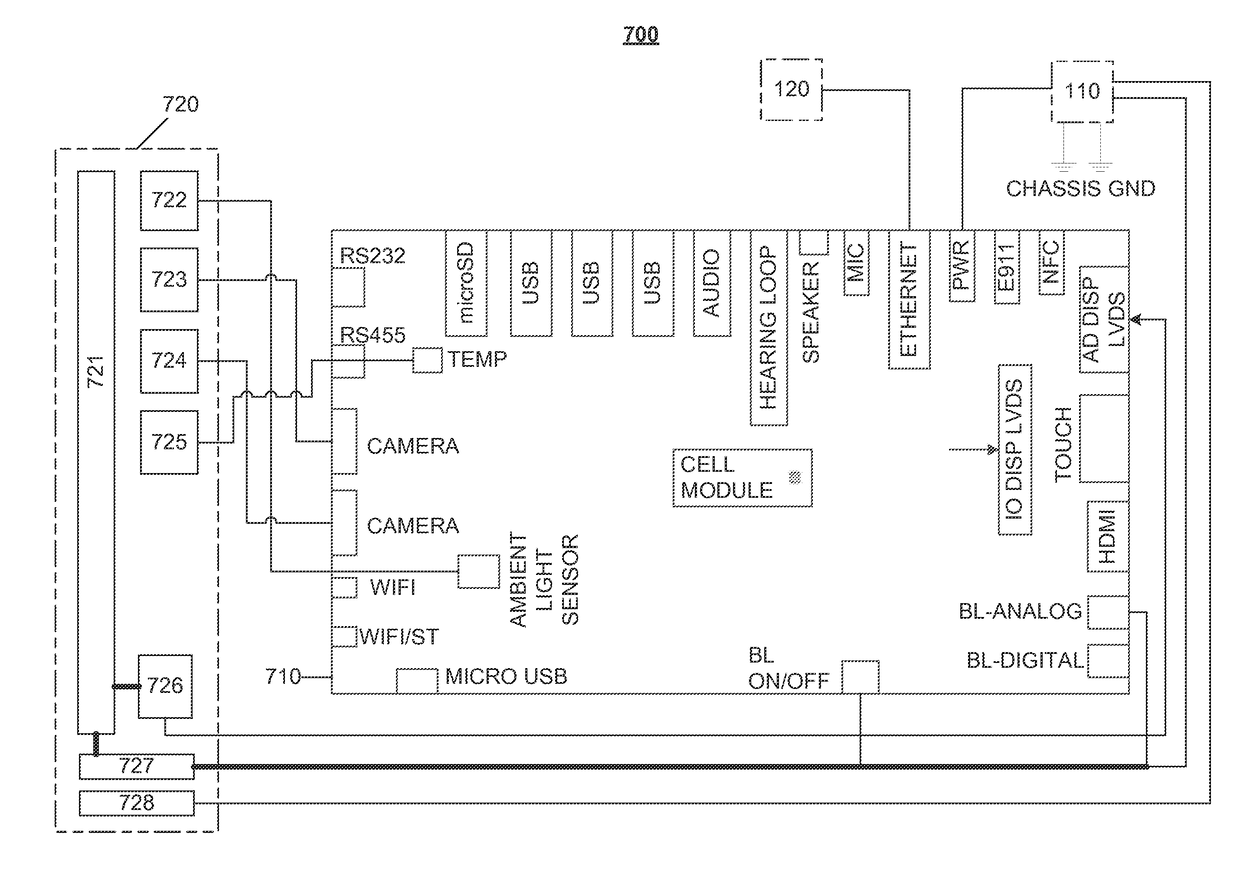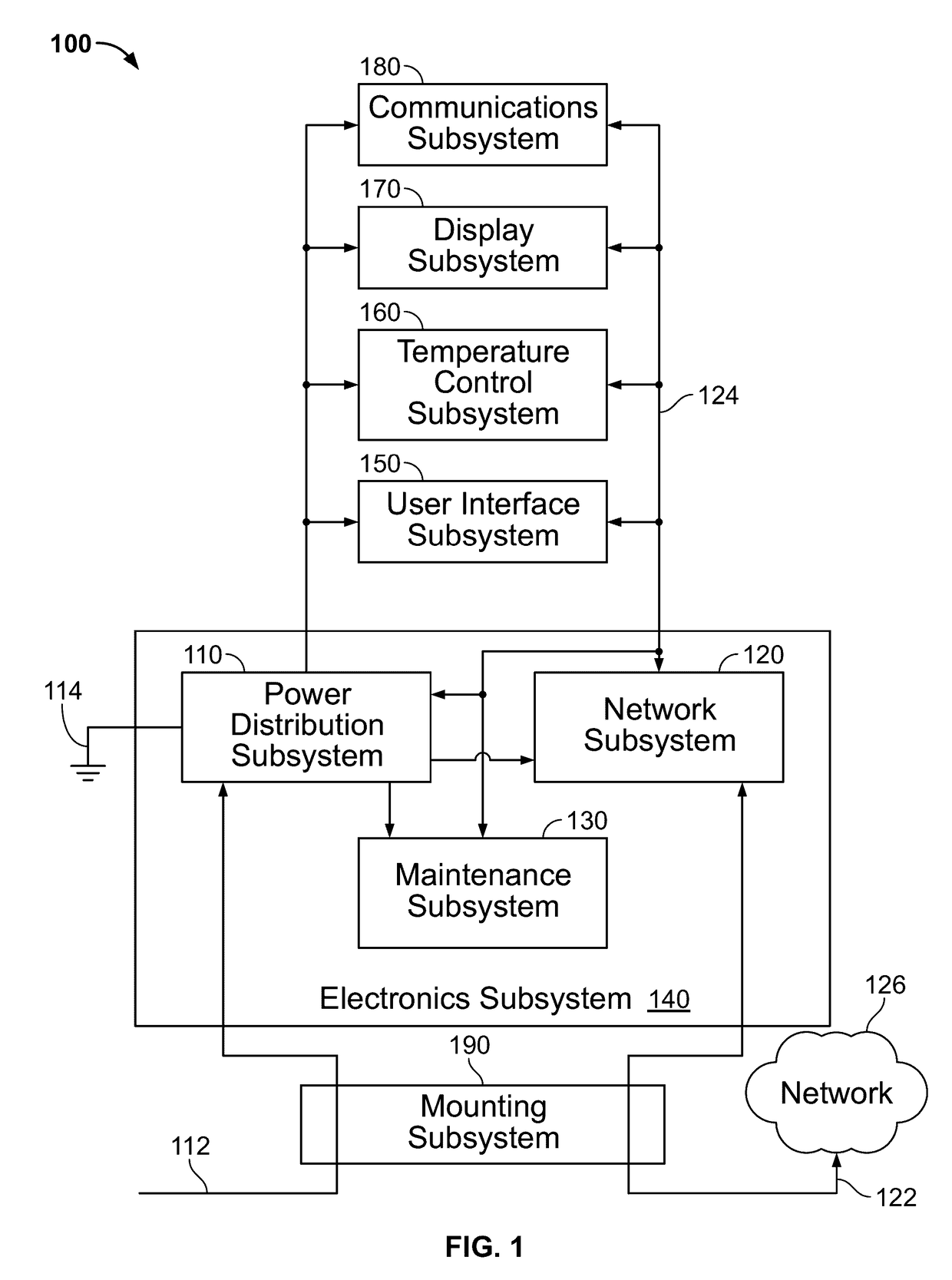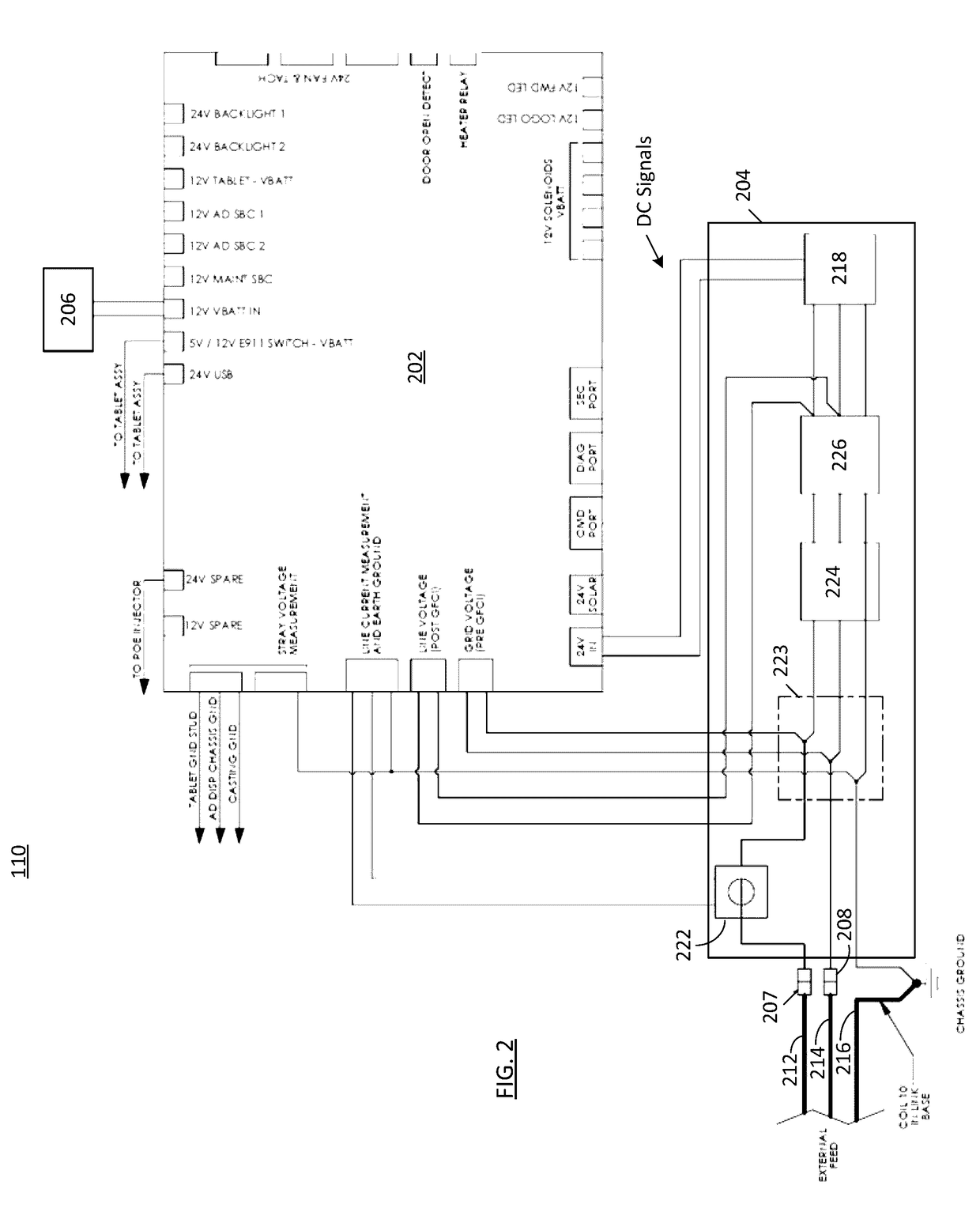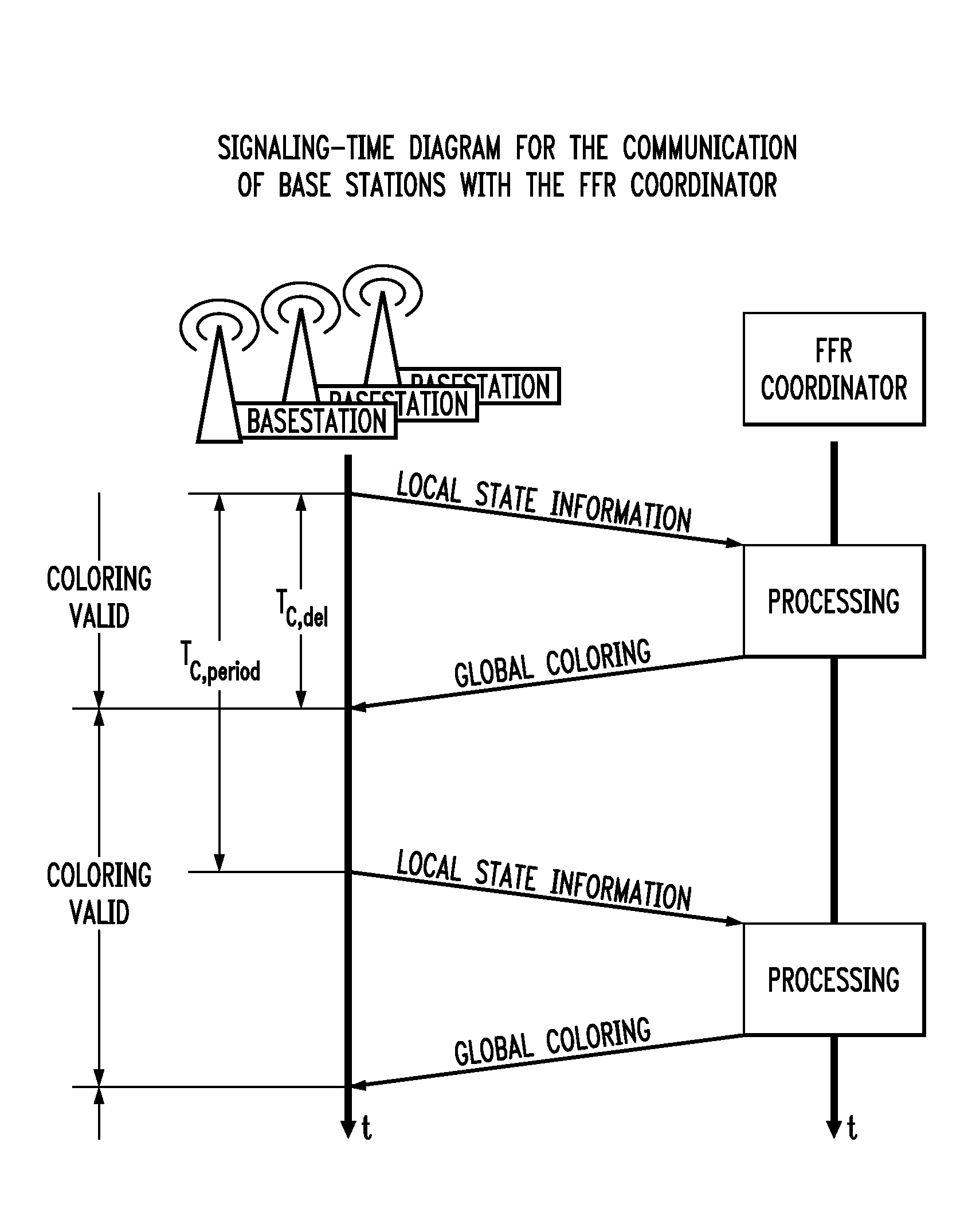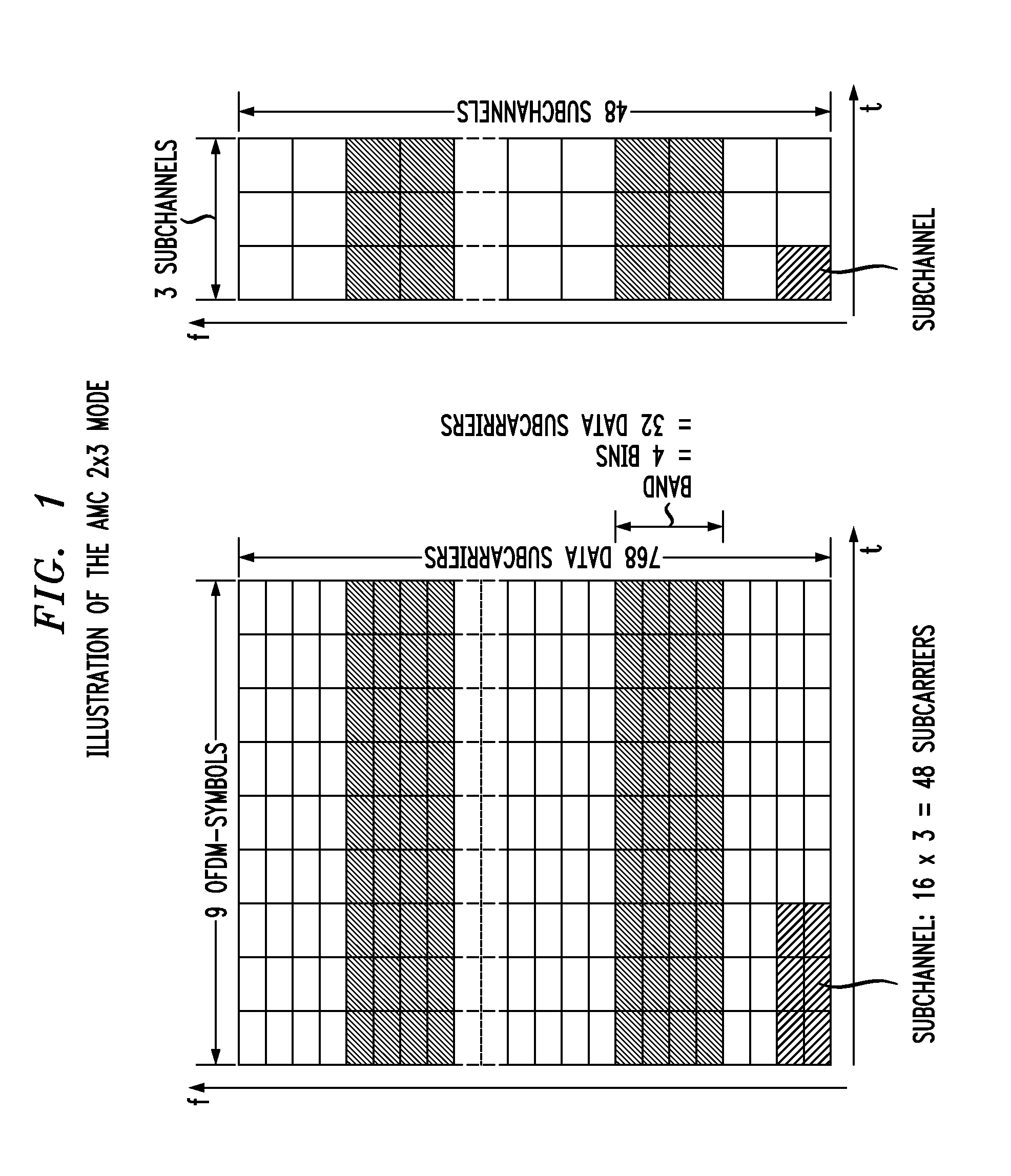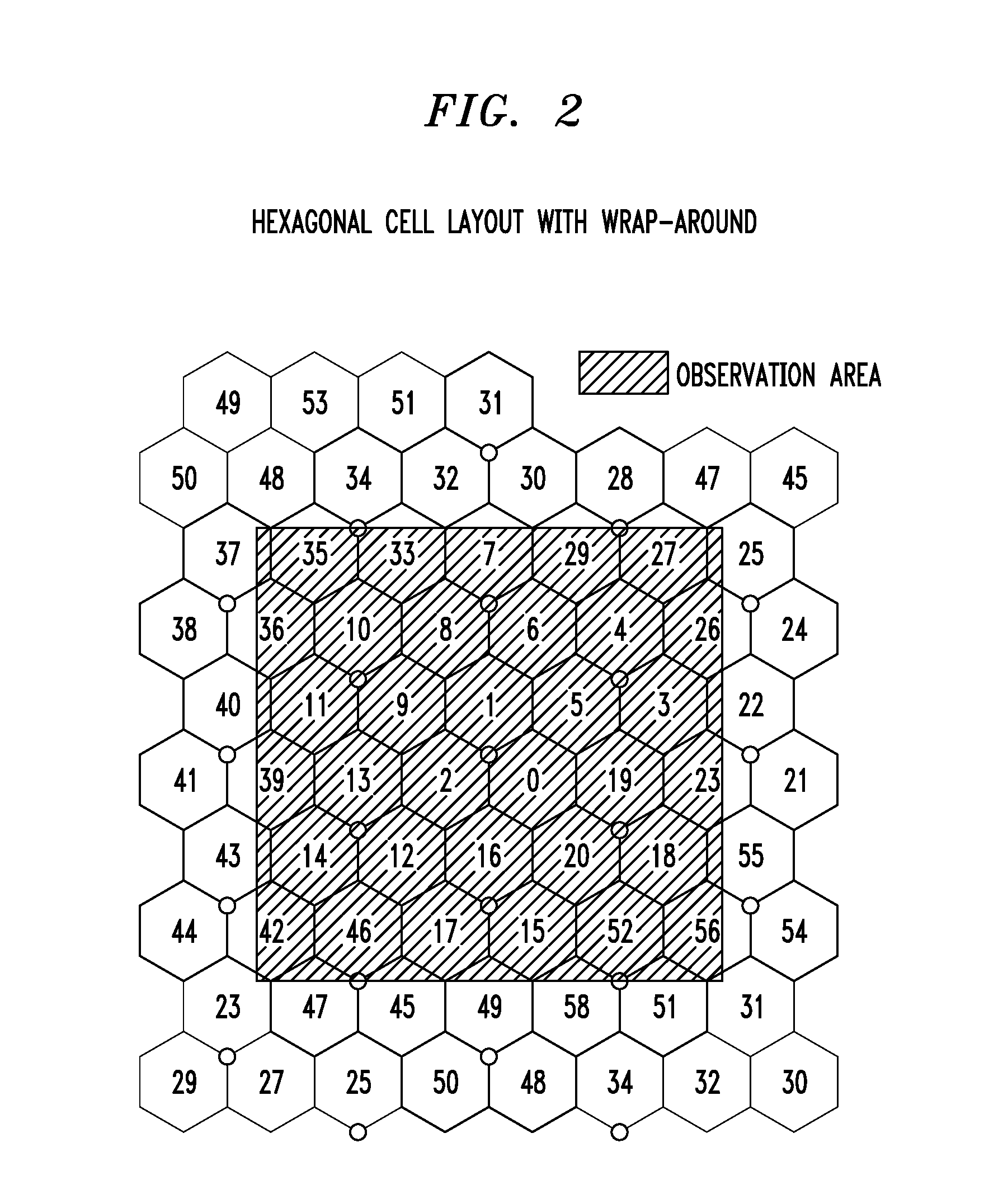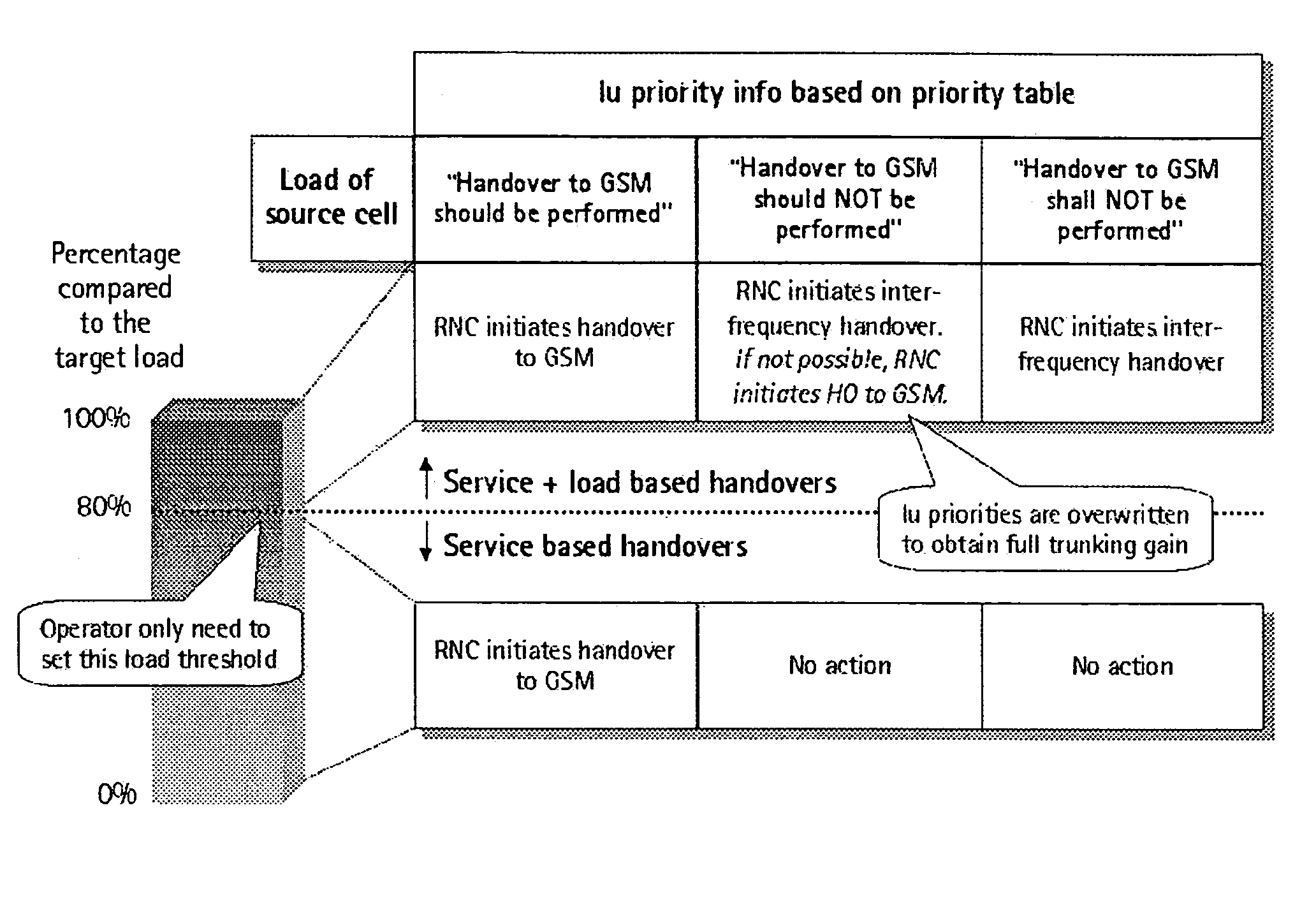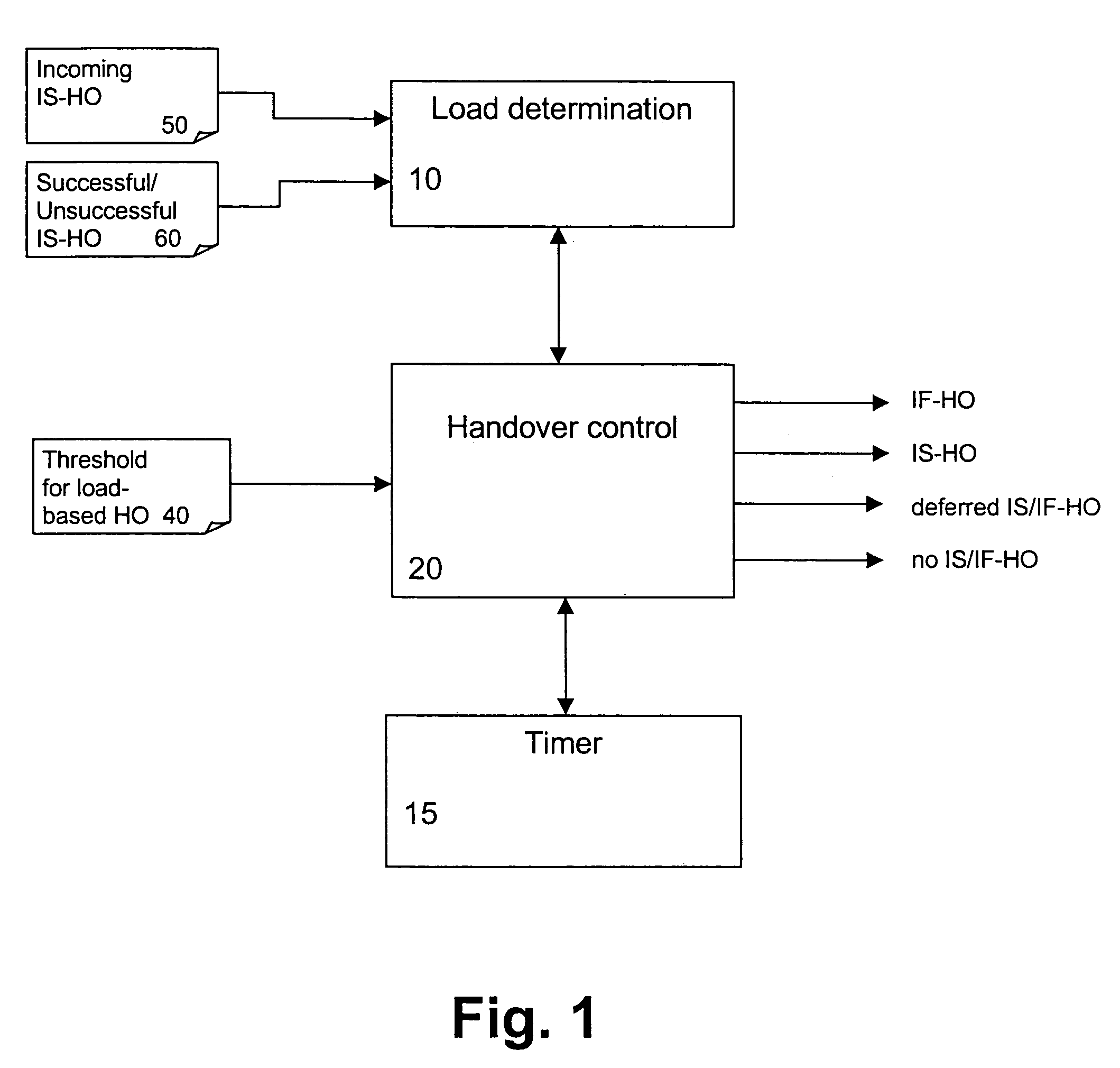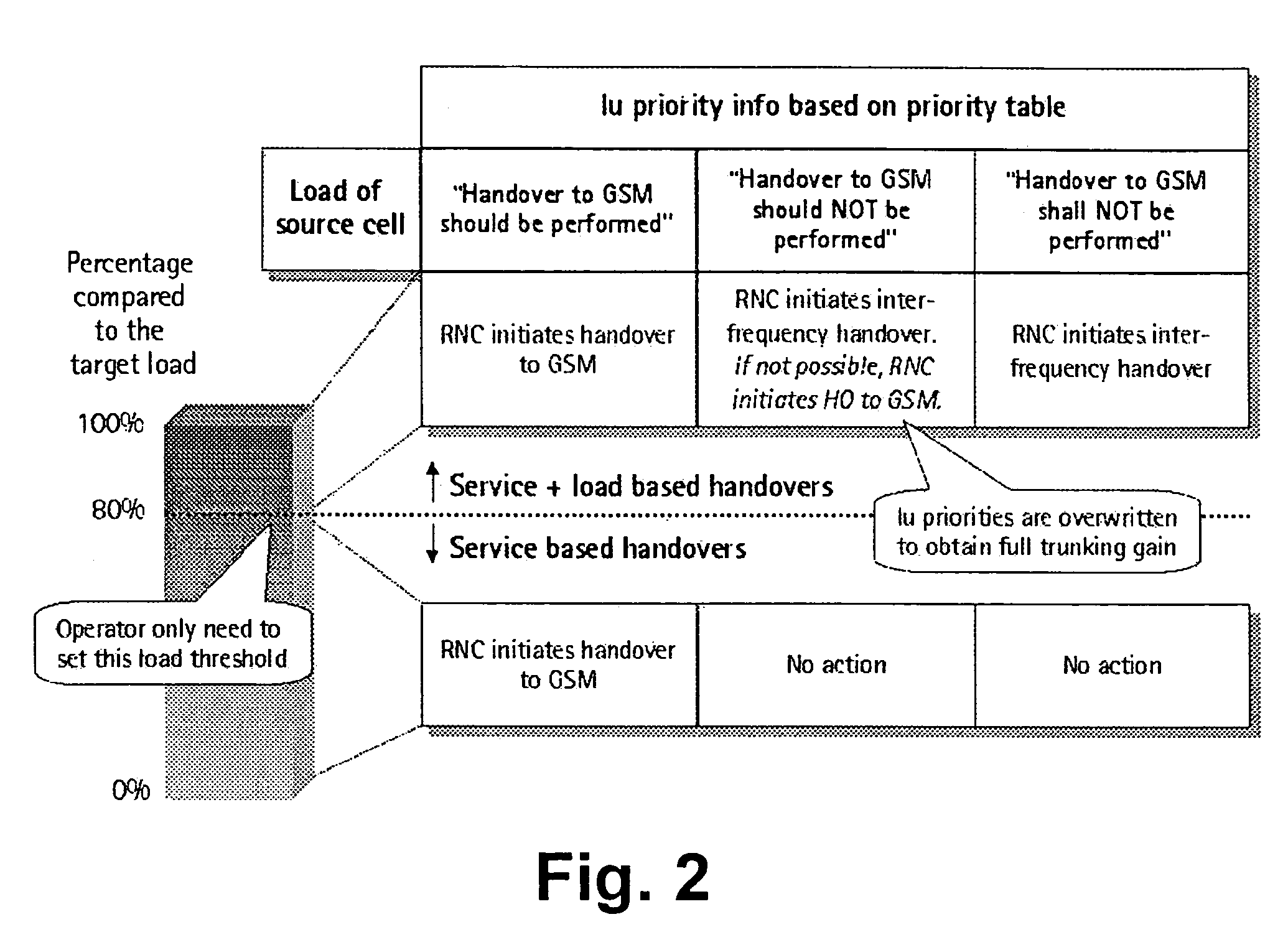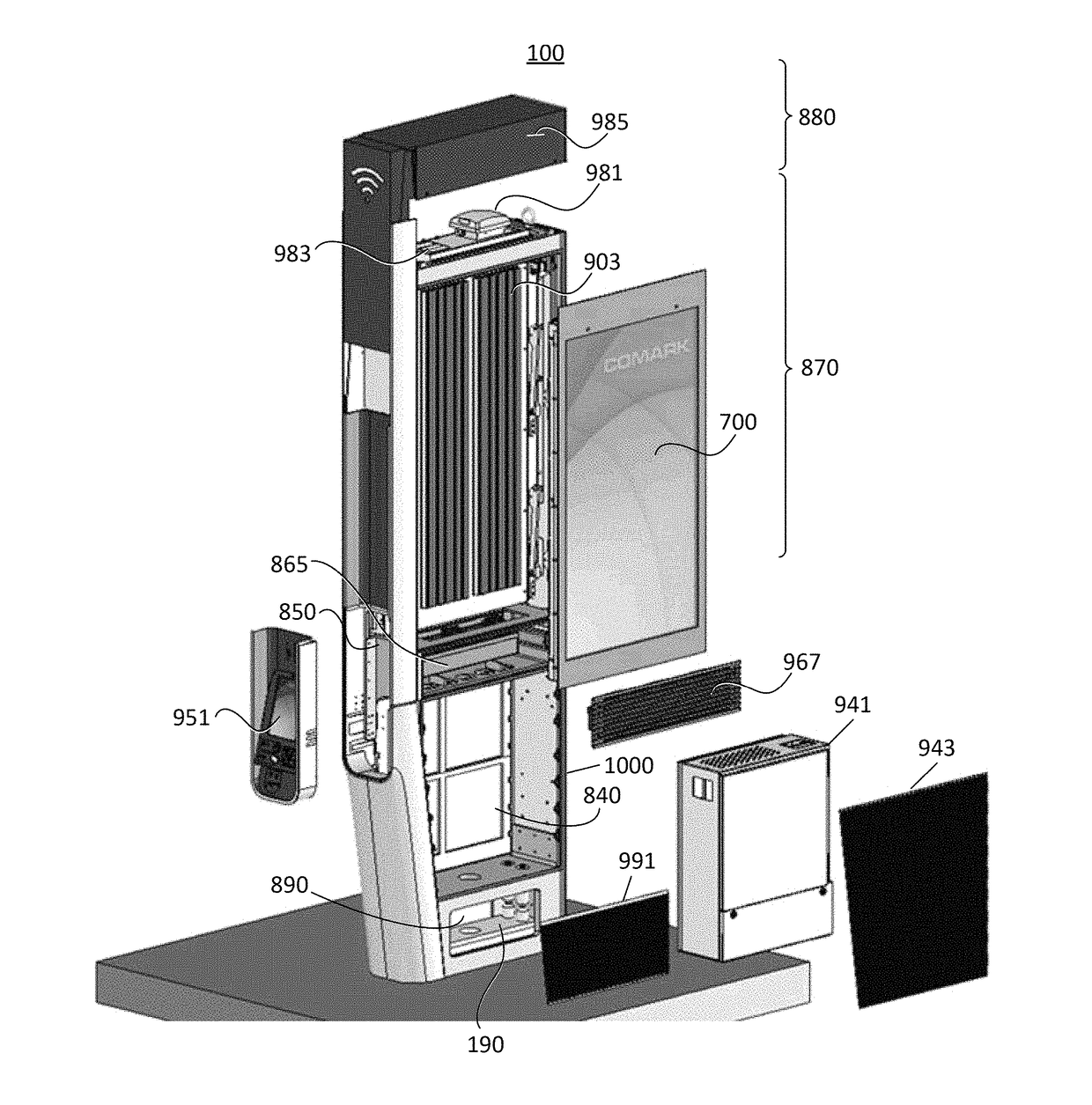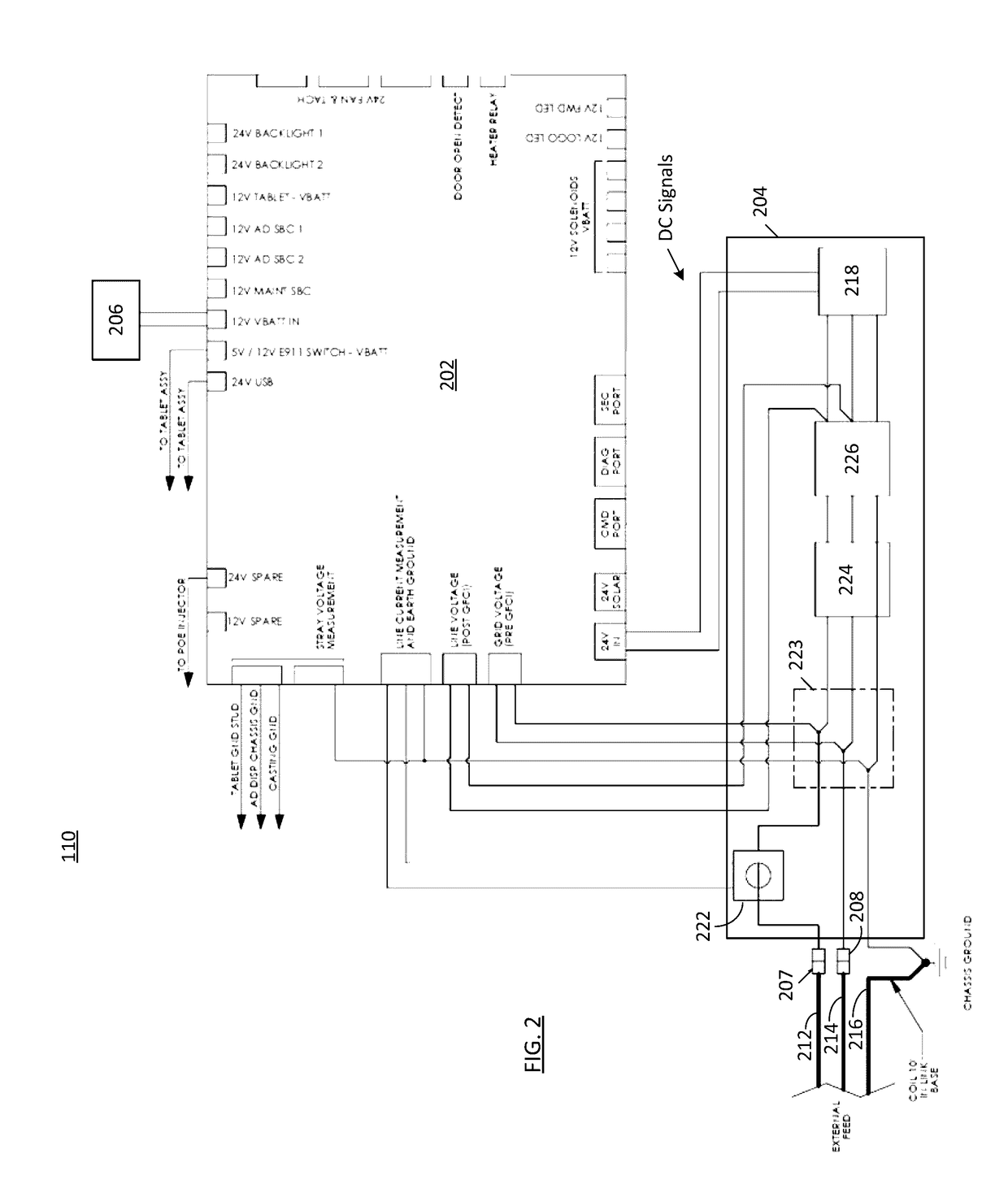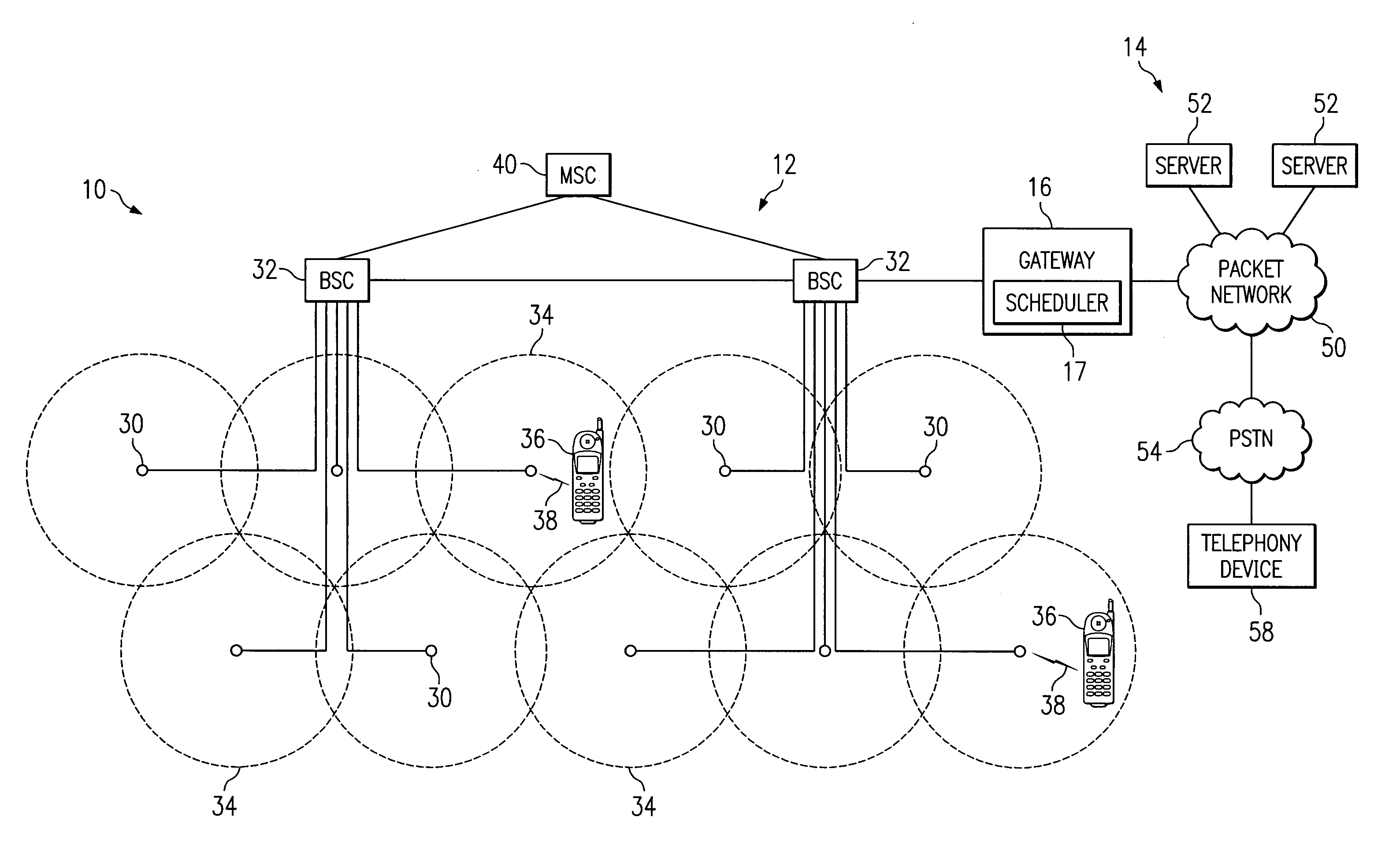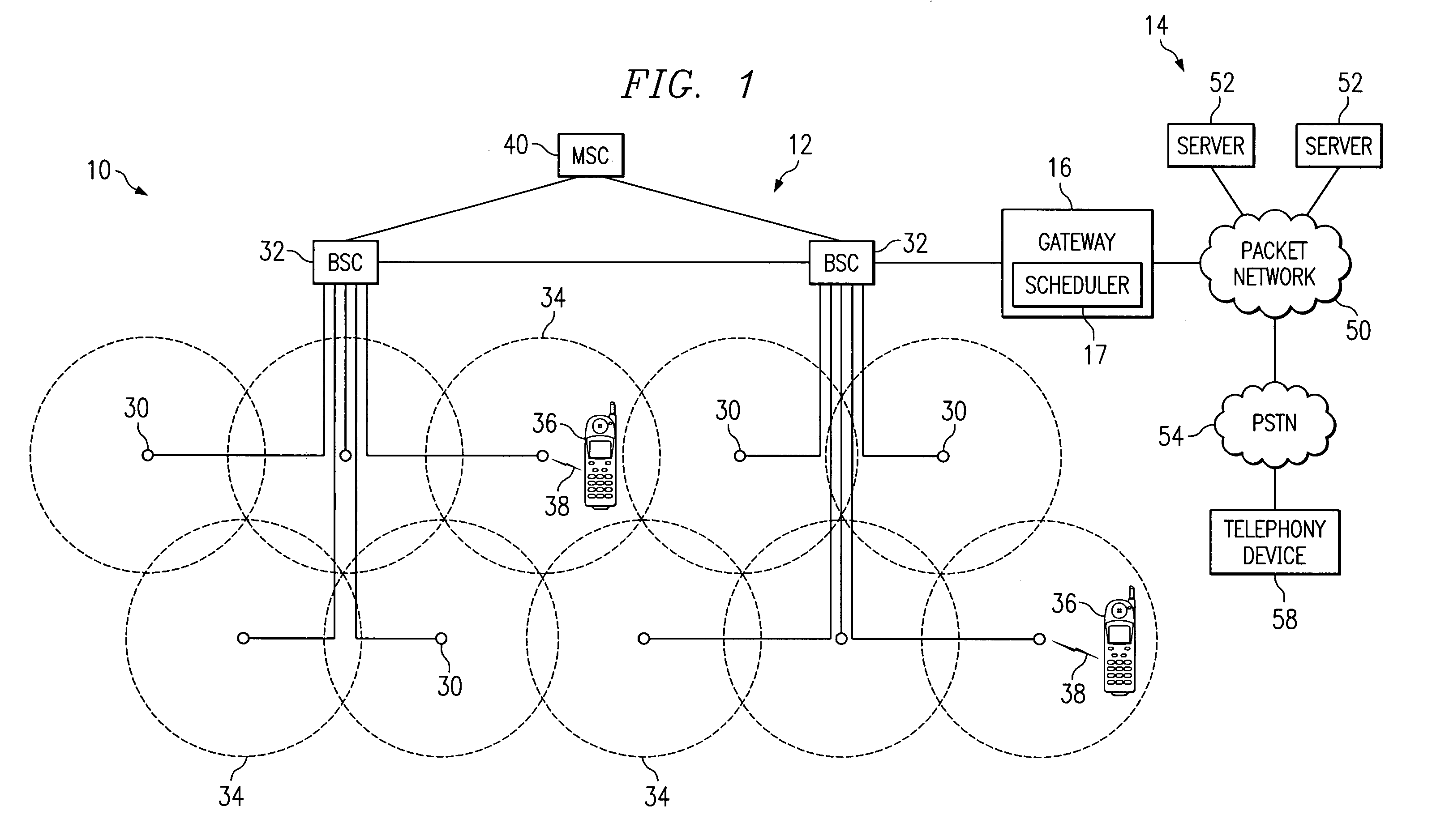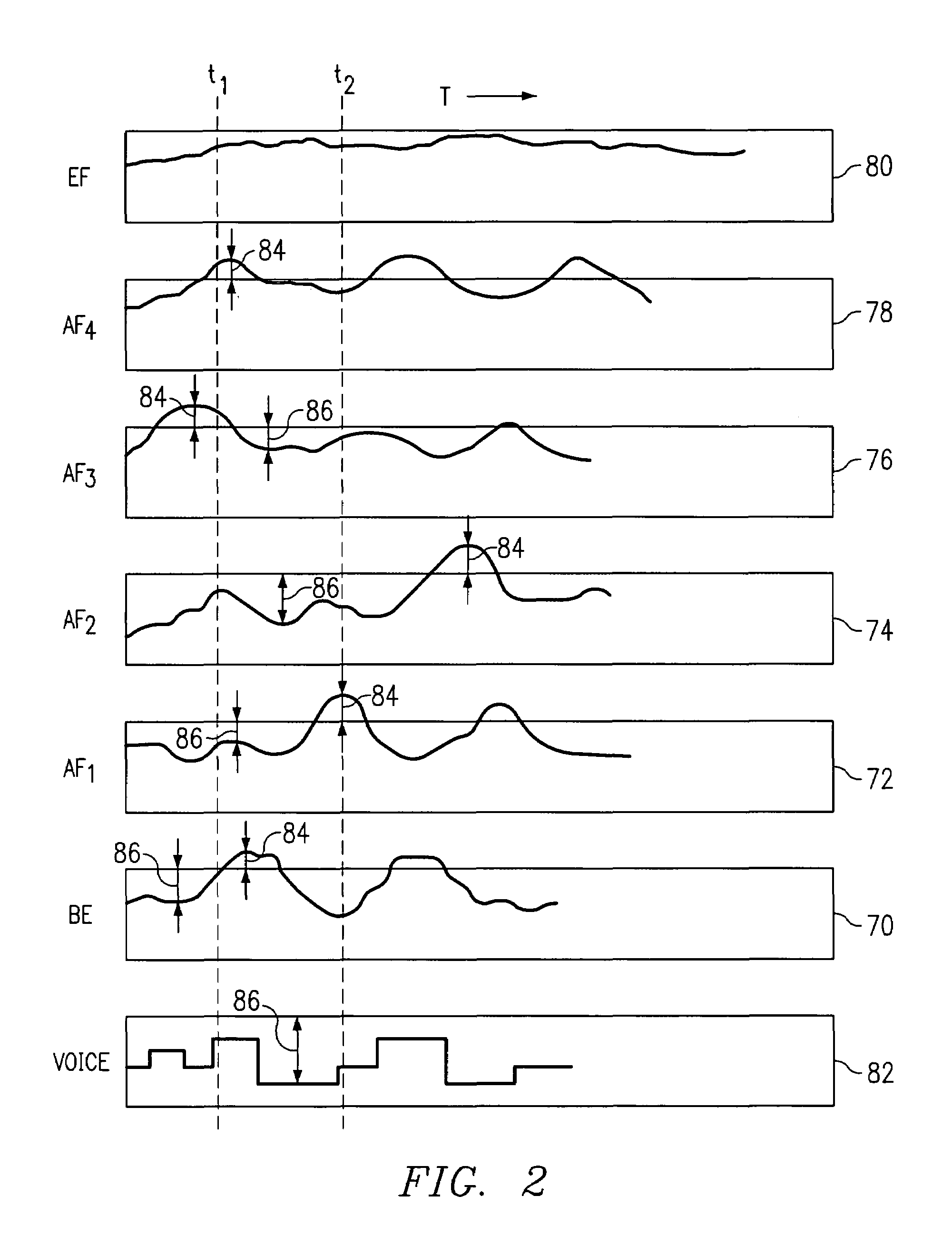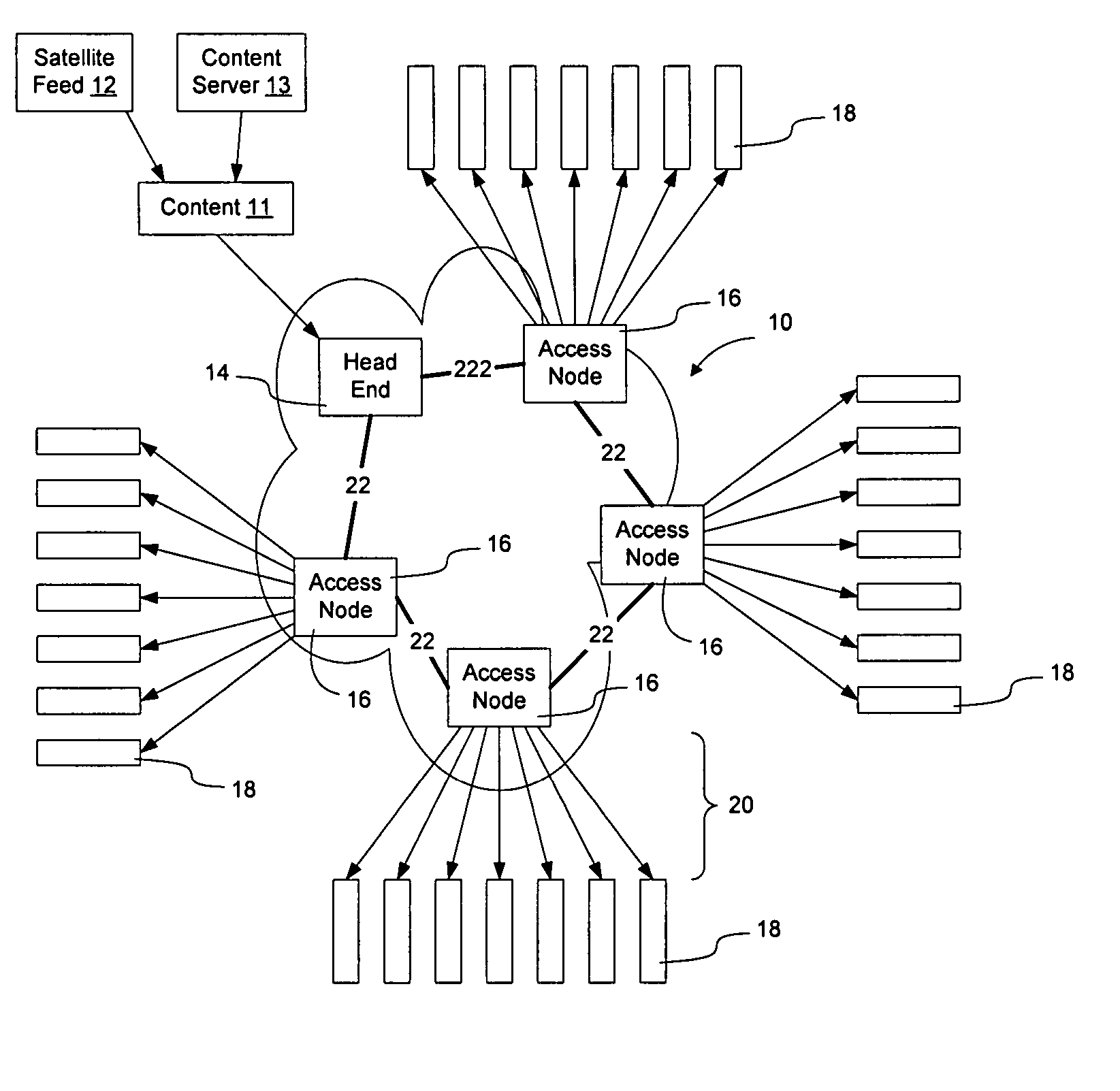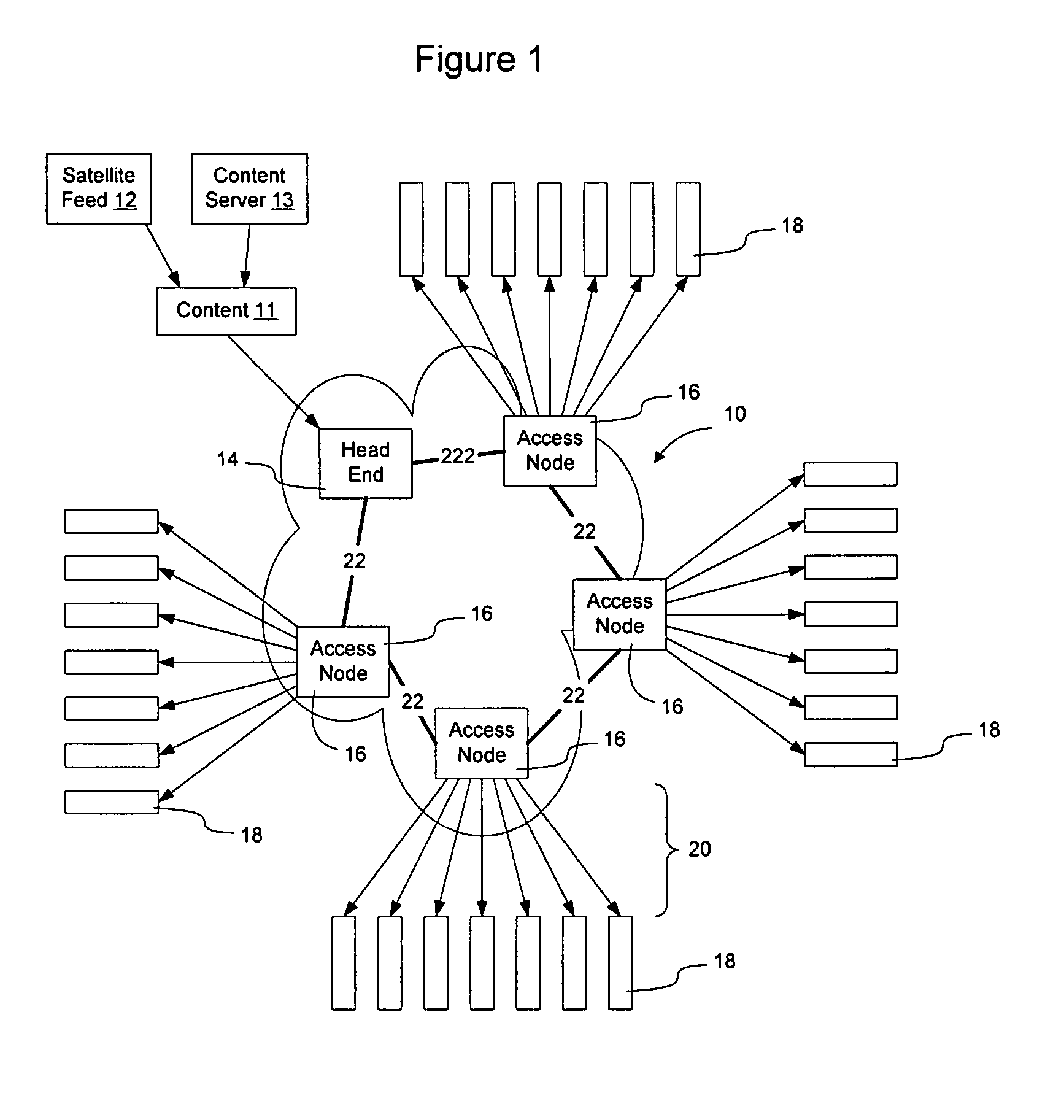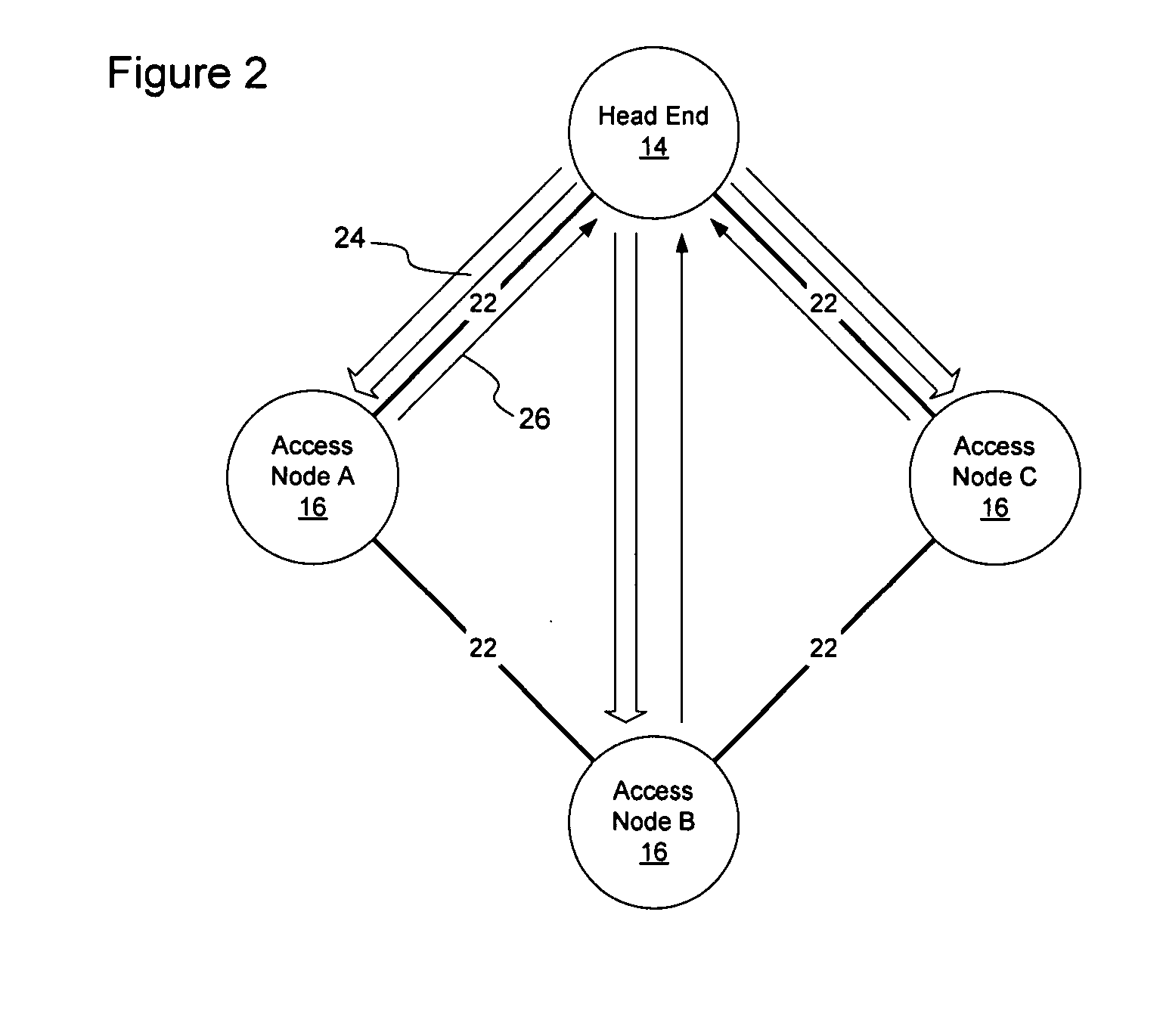Patents
Literature
Hiro is an intelligent assistant for R&D personnel, combined with Patent DNA, to facilitate innovative research.
186results about How to "Increase network capacity" patented technology
Efficacy Topic
Property
Owner
Technical Advancement
Application Domain
Technology Topic
Technology Field Word
Patent Country/Region
Patent Type
Patent Status
Application Year
Inventor
Interference-based routing in a wireless mesh network
ActiveUS7554998B2Low costReduce data rateEnergy efficient ICTError preventionComputer networkWireless mesh network
Route selection through a wireless mesh network between a source node and a destination node is based on minimizing generated interference in order to increase the capacity of the network. An interference energy associated with transmitting a packet over each hop in multiple routes from the source node to the destination node is determined. The interference energy for each hop is combined to generate a combined interference energy for each route. One of the routes is selected based on the combined interference energy determined for each route.
Owner:TELEFON AB LM ERICSSON (PUBL)
Method and system for a remote downlink transmitter for increasing the capacity and downlink capability of a multiple access interference limited spread-spectrum wireless network
InactiveUS7061891B1Increased cost-effectivenessIncrease speedData switching by path configurationRadio transmissionCellular architectureEffective solution
The present invention relates to a system and method for extending the coverage area and communication capacity of a spread-spectrum based wireless network. The system comprises a unique dual-scale, asymmetrical cellular architecture for a wireless network, wherein the communication uplink is based on a macro-cellular system, and the communication downlink is based on a micro-cellular system. Through the user of remote downlink transmitters in the micro-cellular system, the present invention provides a cost effective solution for increasing communication capacity, extending coverage area, and providing high speed communication downlink.
Owner:LEIDOS
Method and system for a remote downlink transmitter for increasing the capacity and downlink capability of a multiple access interference limited spread-spectrum wireless network
InactiveUS7535867B1Increased cost-effectivenessIncrease speedError preventionFrequency-division multiplex detailsEffective solutionCellular architecture
The present invention relates to a system and method for extending the coverage area and communication capacity of a spread-spectrum based wireless network. The system comprises a unique dual-scale, asymmetrical cellular architecture for a wireless network, wherein the communication uplink is based on a macro-cellular system, and the communication downlink is based on a micro-cellular system. Through the user of remote downlink transmitters in the micro-cellular system, the present invention provides a cost effective solution for increasing communication capacity, extending coverage area, and providing high-speed communication downlink.
Owner:LEIDOS
Space-time and space-frequency hopping for capacity enhancement of mobile data systems
ActiveUS7016649B1Increase capacityReduce effectPower managementSubstation equipmentBeam hoppingSelf adaptive
The present invention utilizes adaptive antenna arrays at a base station to increase the forward link capacity of mobile data systems. One or more simultaneous forward link beams are formed and are switched (or hopped) in a time division manner among subscribers. The beam hopping sequence is randomized by varying the time slot and / or carrier frequency of each subscriber. In space-time hopping, the position within a frame of the time slot for each subscriber is varied in a pseudo random sequence. In space-frequency hopping, the carrier frequency for each frame is varied in a pseudo random sequence. The pseudo random beam hopping sequence provides a gain due to interference diversity in addition to the antenna array gain. Forward link beam forming algorithms use space-time or space-frequency hopping to increase the capacity of mobile data systems.
Owner:F POSZAT HU
Systems and methods for distribution of wireless network access
ActiveUS7551641B2Increase network capacityError preventionFrequency-division multiplex detailsBroadbandMedia access control
Systems and methods for distribution of wireless network access using a common media access control (MAC) architecture. In one embodiment, a platform architecture may be provided for high speed Broadband Wireless Access (BWA) service termination using a common MAC architecture and router functionality, e.g., an integrated router and firewall service may be provided to a local WLAN network, leveraging a common orthogonal frequency division multiplexing (OFDM)-based MAC architecture for both the BWA and WLAN functionality. Such a common MAC architecture may be implemented to optimize the performance and throughput between the broadband wireless ISP data service and localized WLAN network.
Owner:DELL PROD LP
High efficiency linearization power amplifier for wireless communication
ActiveUS20070241812A1Improve efficiencyImprove linearityEnergy efficient ICTAmplifier details to increase power/efficiencyFrequency changerControl signal
An embodiment of the invention uses a predistortion correction signal to combination the modulated RF signal by an analog multiplier for linearization of power amplifiers having nonlinear characteristics such as those used in wireless RF transmitters. A predistortion controller comprises a plurality of down converters for retrieving both the ideal non-distorted information and the feedback distorted information, together with pre-stored digitally-indexed predistortion information stored, for example, in a look-up table. The digitally-indexed information models nonlinear characteristics of the high power amplifier, and is stored prior to processing of pre-compensation in the power amplifier. When the predistortion information is combined with the modulated RF signal in the analog multiplier, the result is a substantially linear information transmission from the power amplifier. In an embodiment of the system, the modulated RF input signal and the feedback signal from PA output are down-converted, respectively, by analog devices, such as mixers, after which the analog intermediate frequency (IF) signals are digitized by analog-to-digital converters for digital predistortion correction processing, followed by predistortion processing performed by, for example, a DSP or FPGA chip to generate a digital correction control signal, which is then converted to an analog signal by a digital-to-analog converter, followed by combining the analog correction signal with the RF modulated input signal to yield the input to the power amplifier.
Owner:DALI WIRELESS
Mininature modular wireless sensor
ActiveUS20090058663A1Increase network capacityIncrease numberNetwork topologiesTelephonic communicationModularityElectrical battery
A miniature modular wireless sensor unit. The unit includes three separate easily assembled and disassembled modules: a processor-communications module, a battery pack module, and a swappable sensor module. Preferred embodiments utilize Bluetooth radio communication technology to communicate sensor data. The total size of preferred embodiments is 1.380 inch×0.940 inch×0.540 inch. Preferred embodiments are easily programmed and calibrated by lay people to automatically communicate sensor information via Bluetooth techniques to a personal computer, laptop or similar equipment. A wide variety of sensors can be utilized with the standard sensor unit. Various battery pack modules are provided to match battery power with needs.
Owner:NEXTGEN AERONAUTICS
Flexible network wireless transceiver and flexible network telemetry transceiver
InactiveUS7408898B1Improve performanceIncrease data rateError preventionFrequency-division multiplex detailsTransceiverGround vehicles
A transceiver for facilitating two-way wireless communication between a baseband application and other nodes in a wireless network, wherein the transceiver provides baseband communication networking and necessary configuration and control functions along with transmitter, receiver, and antenna functions to enable the wireless communication. More specifically, the transceiver provides a long-range wireless duplex communication node or channel between the baseband application, which is associated with a mobile or fixed space, air, water, or ground vehicle or other platform, and other nodes in the wireless network or grid. The transceiver broadly comprises a communication processor; a flexible telemetry transceiver including a receiver and a transmitter; a power conversion and regulation mechanism; a diplexer; and a phased array antenna system, wherein these various components and certain subcomponents thereof may be separately enclosed and distributable relative to the other components and subcomponents.
Owner:THE UNITED STATES AS REPRESENTED BY THE DEPARTMENT OF ENERGY
Techniques and apparatus for mounting a housing on a personal communication structure (PCS)
ActiveUS20170083043A1Add extensionsPrevent movementDigital data processing detailsEngineeringFour-bar linkage
Techniques for operating a personal communication structure (PCS) are described. A personal communication structure (PCS) may include a frame, a housing, and a mounting system coupling the housing to the frame. The mounting system may include a plurality of four-bar linkages. Each of the four-bar linkages may include two links, first pin joints coupling first ends of the respective links to the frame, and second pin joints coupling second ends of the respective links to the housing. Rotation of the links of the mounting system results in displacement of the housing relative to the frame along an arcuate path.
Owner:CITYBRIDGE LLC
Techniques and apparatus for controlling access to components of a personal communication structure (PCS)
ActiveUS9451060B1Easy accessExpand accessSpecial buildingRestaurantsStructure of Management InformationEngineering
Techniques and apparatus for controlling access to a personal communication structure (PCS) are described. The PCS may include independently accessible compartments at least partially enclosing respective subsystems of the PCS. The independently accessible compartments include an electronics compartment, a communications compartment, and a display compartment. The electronics, communications, and display compartments at least partially enclose a power distribution subsystem, a communications subsystem, and a display subsystem, respectively. The PCS also includes an access controller operable to provide access independently to respective interiors of at least a subset of the compartments to authorized users.
Owner:CITYBRIDGE LLC
Slim triple band antenna array for cellular base stations
ActiveUS20090224995A1Reduce impactMinimize visual impact and costSimultaneous aerial operationsRadiating element housingsTriple frequencyRadiating element
The present invention refers to a triple-band antenna array for cellular base stations operating at a first frequency band and at a second frequency band within a first frequency range, and also at a third frequency band within a second frequency range. Said triple-band antenna array comprises a first set of radiating elements operating at the first frequency band, a second set of radiating elements operating at the second frequency band, a third set of radiating elements operating at both the third and the first frequency bands, and a fourth set of radiating elements operating at both the third and the second frequency bands. The radiating elements are arranged in such a way that at least some of the radiating elements of the first set are interlaced with at least some of the radiating elements of the third set, and at least some of the radiating elements of the second set are interlaced with at least some of the radiating elements of said fourth set. Further the invention relates to a slim triple-band base station for mobile / cellular services that includes in its radiating part two or more of said triple-band antenna arrays.
Owner:COMMSCOPE TECH LLC
Methods and systems for communication with beamforming antennas
ActiveUS20170127295A1Increase network capacityHigh data rateAssess restrictionRadio transmissionTelecommunicationsAdaptive routing
Owner:DE INVENSHN SAJENS FAND UAN ELELSI
Techniques and apparatus for controlling the temperature of a personal communication structure (PCS)
ActiveUS9622392B1Easy accessExpand accessDigital data processing detailsCooling/ventilation/heating modificationsAir cycleTemperature control
Techniques for operating a personal communication structure (PCS) are described. In particular, a temperature control system for controlling the temperature of a PCS is described. The temperature control system may include a ribbed heat sink and first and second air circulation controllers. The heat sink may be coupled to the PCS's frame, adjacent to the back surface of a housing for a display module. The first air circulation controller may be configured to recirculate air in a cavity within the display module's housing. The second air circulation controller may be configured to move ambient air across the heat sink.
Owner:CITYBRIDGE LLC
Methods of controlling transmission power levels in air interface channels
InactiveUS20050163070A1Reduce noise levelQuality improvementPower managementTransmission control/equalisingQuality of serviceFrequency spectrum
The present invention relates to wireless communications, and in particular although not exclusively, to networks of indoor collocated or overlapping wireless coverage areas especially those intended for operation in unlicensed spectrum such as the Industrial Scientific and Medical (ISM) bands. The present invention provides a method of controlling the transmission power associated with an air interface channel, the method comprising determining a quality of service measure for a signal to be transmitted on a second air interference channel; determining an interference measure corresponding to the interference on said second air interface channel which will be caused by transmissions on said first air interface channel; requesting the changing of the transmission power associated with the first air interface channel when the signal is to be transmitted on the second air interface channel, when the quality of service measure is above a predetermined value and when the interference measure is above a predetermined value for said quality of service value.
Owner:KK TOSHIBA
Method and apparatus for power and temperature control of compartments within a personal communication structure (PCS)
ActiveUS20170111520A1Easy accessExpand accessVolume/mass flow measurementPower supply for data processingTemperature controlElectronic systems
Techniques and apparatus for controlling the distribution of power (e.g., current) and the temperature to individually accessible compartments enclosing subsystems of a personal communication structure (PCS) is described. The PCS includes a power distribution and temperature controller subsystem, including thermal sensors adapted to generate and transmit temperature measurement data to the temperature controller, which controls fans / blowers. The power distribution subsystem senses and controls the current delivered to the individually accessible compartments.
Owner:CITYBRIDGE LLC
Ring architecture for an optical satellite communication network with passive optical routing
InactiveUS6912075B1Reduce power consumptionReduce weightSatellite communication transmissionOptical multiplexFiberLength wave
A node for satellite system communications between a ground station and a satellite includes a fiber optic bus on the satellite. An optical drop is coupled to the bus. The optical drop resolves an optical signal destined to the given satellite from the optical bus. An uplink and downlink receive and transmit communications from a ground terminal. A router is coupled to the optical drop and the uplink and downlink. An address reader and a table are used by the router to determine the destination of the received RF signals. The received RF signals are converted to optical signals by an optical source. The optical source has a wavelength that corresponds with the destination satellite. The optical signals are transmitted to an adjacent satellite by an optical transmitter such as a transmitting telescope.
Owner:HUGHES ELECTRONICS
Techniques and apparatus for controlling access to components of a personal communication structure (PCS)
ActiveUS20170111486A1Easy accessExpand accessSpecial buildingRestaurantsElectronic systemsEngineering
Techniques and apparatus for controlling access to a personal communication structure (PCS) are described. The PCS may include independently accessible compartments at least partially enclosing respective subsystems of the PCS. The independently accessible compartments include an electronics compartment, a communications compartment, and a display compartment. The electronics, communications, and display compartments at least partially enclose a power distribution subsystem, a communications subsystem, and a display subsystem, respectively. The PCS also includes an access controller operable to provide access independently to respective interiors of at least a subset of the compartments to authorized users.
Owner:CITYBRIDGE LLC
Systems and methods for operating wireless networks
InactiveUS8121604B1Increase network capacityMinimal increased costWireless commuication servicesHand-offEngineering
Systems and methods for wireless networks with inner and outer cells are provided. A base station determines an amount of traffic on an inner and outer cell. When the traffic exceed a predetermined threshold value, traffic is adjusted on the inner or outer cell. Traffic can be adjusted by handing off some of the traffic from the inner cell to the outer cell, from the outer cell to the inner cell, between sectors of the inner or outer cells and / or by handing off traffic to a proximately located base station.
Owner:NEXTEL COMMUNICATIONS
Systems and methods for distribution of wireless network access
ActiveUS20070025246A1Improve performanceOptimizing throughputError preventionTransmission systemsWireless data servicesBroadband
Systems and methods for distribution of wireless network access using a common media access control (MAC) architecture. In one embodiment, a platform architecture may be provided for high speed Broadband Wireless Access (BWA) service termination using a common MAC architecture and router functionality, e.g., an integrated router and firewall service may be provided to a local WLAN network, leveraging a common orthogonal frequency division multiplexing (OFDM)-based MAC architecture for both the BWA and WLAN functionality. Such a common MAC architecture may be implemented to optimize the performance and throughput between the broadband wireless ISP data service and localized WLAN network.
Owner:DELL PROD LP
Packet transmitting method of wireless network
ActiveUS20070101020A1Capacity usage is expandedAchieve effectError preventionTransmission systemsWireless networkPacket transmission
A packet transmitting method of wireless network is provided. The packet transmitting method determines whether the packet to be transmitted is a real-time packet or not, and, when the packet is a real-time packet, a re-transmission mechanism of the packet is determined to be ON or OFF according to the transmission status of the wireless network itself.
Owner:HUAWEI TECH CO LTD
Techniques and systems for servicing a personal communication structure (PCS)
InactiveUS20170163519A1Easy accessExpand accessNetwork topologiesIndividual entry/exit registersService controlField service
Techniques and systems for servicing a personal communication structure (PCS) are described. The PCS may include a servicing controller that schedules, initiates, and / or otherwise controls testing of the PCS components. The PCS may transmit the results of the tests to a remote entity. Based on the test results, the remote entity may detect faulty components and / or allocate servicing resources (e.g., technicians, replacement parts, etc.) to the PCS as part of a field service repair process. The tests may be initiated by the servicing controller or by a remote entity.
Owner:CIVIQ SMARTSCAPES LLC
Techniques and apparatus for securing a structure to a support
ActiveUS20170074453A1Reduce riskImprove integrityMachine supportsAccounting/billing servicesCouplingEngineering
Techniques and apparatus for securing a structure to a support are described. A mounting device may releasably secure a structure to a support. The mounting device may include a first plate, a second plate proximate the first plate, and at least one frangible connection securing the first plate to the second plate. The frangible connection(s) may be adapted to break in response to application of a shear force or other loading above a predetermined value. The mounting device may further include a retention member connecting the first plate to the second plate. The retention member may be adapted to maintain coupling of the first plate and the second plate after breakage of the frangible connection.
Owner:CITYBRIDGE LLC
Delivery of communications services in developing regions
InactiveUS20070071006A1Increase network capacityNetwork topologiesData switching by path configurationCode division multiple accessHandset
A technique for delivering communications services to a large number of users employing relatively inexpensive, widely available handsets. More particularly, the technique utilizes a network apparatus that supports individual access to a community of users and supports access to a wireless communications system (e.g., any well-known Code Division Multiple Access (CDMA) wireless network). That is, the communications hub functions similar to a communications switch with a number users employing inexpensive handsets (e.g., well-known 900 MHz cordless telephones) on one side and the functionality of a mobile terminal, and CDMA interconnection, on the other side. Therefore, the users (i.e., subscribers) employ relatively inexpensive, widely available handsets, in conjunction with the network apparatus, to access a wireless communications network and the associated communications services offered from the wireless service provider.
Owner:LUCENT TECH INC
Techniques and apparatus for controlling the temperature of a personal communication structure (PCS)
ActiveUS20170083062A1Easy accessExpand accessComputer controlDigital data processing detailsTemperature controlAir cycle
Techniques for operating a personal communication structure (PCS) are described. In particular, a temperature control system for controlling the temperature of a PCS is described. The temperature control system may include a ribbed heat sink and first and second air circulation controllers. The heat sink may be coupled to the PCS's frame, adjacent to the back surface of a housing for a display module. The first air circulation controller may be configured to recirculate air in a cavity within the display module's housing. The second air circulation controller may be configured to move ambient air across the heat sink.
Owner:CITYBRIDGE LLC
Method for reducing interference in a cellular radio communication network, corresponding interference coordinator and base station
InactiveUS20090081955A1Reduce distractionsIncrease network capacityTransmission noise suppressionNetwork planningCellular radioBase station
The present invention relates to a method for reducing interference in a cellular radio communication network, said network comprising a plurality of base stations and a plurality of terminals to be scheduled on frequency and / or time resources.According to the present invention, the method comprises the steps of:determining interference parameters from at least two base stations;reporting said interference parameters from said at least two base stations to an interference coordinator;determining at said interference coordinator resources to be allocated to said plurality of terminals minimising an overall interference criterion;reporting from said interference coordinator to said at least two base stations the resource allocated to the different terminals.
Owner:ALCATEL LUCENT SAS
Method and network element for controlling handover
InactiveUS7197318B2Improve resource utilizationImproved network capacity and quality of serviceInterconnection arrangementsRadio/inductive link selection arrangementsCarrier signalCellular network
The present invention relates to a method and apparatus for controlling a connection transfer in a cellular network having at least two systems, such as a GSM system and a WCDMA system. Based on a load determination, a service-based inter-system or inter-frequency handover of the connection to another system or to another carrier of the same system is initiated if the determined is below a threshold and service priorities are indicating it. If it exceeds the threshold, an additional load-based inter-system or inter-frequency handover can be initiated. If the load of the target cell is not known, a load estimation based on a learning process can be used to derive a probability of success of an interfrequency or inter-system handover, which may be used for deciding on the initiation of the inter-system handover. The learning process may be performed by evaluating preceding interfrequency or inter-system handovers to the target cell or preceding interfrequency or inter-system handovers from the target cell. Thereby, users can be shared between different radio access technologies or systems or between different carriers of one system to thereby improve network capacity and quality of service for both systems and carriers. Furthermore, unnecessary inter-system handovers can be prevented in case the load of the target cell of the other system is not known.
Owner:WSOU INVESTMENTS LLC
Techniques and apparatus for securing a structure to a support
ActiveUS9823690B2Easy accessExpand accessAccounting/billing servicesDigital data processing detailsCouplingEngineering
Techniques and apparatus for securing a structure to a support are described. A mounting device may releasably secure a structure to a support. The mounting device may include a first plate, a second plate proximate the first plate, and at least one frangible connection securing the first plate to the second plate. The frangible connection(s) may be adapted to break in response to application of a shear force or other loading above a predetermined value. The mounting device may further include a retention member connecting the first plate to the second plate. The retention member may be adapted to maintain coupling of the first plate and the second plate after breakage of the frangible connection.
Owner:CITYBRIDGE LLC
Techniques and apparatus for controlling access to components of a personal communication structure (PCS)
InactiveUS20170111521A1Enhance public accessImprove network coverageDigital data processing detailsNetwork topologiesElectronic systemsEngineering
Techniques and apparatus for controlling access to a personal communication structure (PCS) are described. The PCS may include independently accessible compartments at least partially enclosing respective subsystems of the PCS. The independently accessible compartments may include an electronics compartment, a communications compartment, and a display compartment. The electronics compartment may be disposed along a lower portion of the PCS, and may at least partially enclose a power distribution subsystem. The communications compartment may be located proximate a top of the PCS, and may at least partially enclose a communications subsystem. The display compartment may be disposed along an upper portion of the PCS, and may at least partially enclose a display subsystem. Access to the interior of a compartment may be provided to authorized users without providing access to interiors of other independently accessible compartments.
Owner:CIVIQ SMARTSCAPES LLC
Method and system for sharing over-allocated bandwidth between different classes of service in a wireless network
InactiveUS6973315B1Reduce and eliminate and disadvantageReduce and eliminate problemError preventionFrequency-division multiplex detailsClass of serviceDistributed computing
A method and system for sharing over-allocated bandwidth between different classes of service in a wireless network. Traffic is transmitted for a first service class in excess of bandwidth allocated to the first service class using unused bandwidth allocated to a second class. After transmitting traffic for the first service class in excess of bandwidth allocated to the first service class using unused bandwidth allocated to a second class, traffic for a third service class is transmitted in unused bandwidth remaining in the second service class.
Owner:CISCO TECH INC
Features
- R&D
- Intellectual Property
- Life Sciences
- Materials
- Tech Scout
Why Patsnap Eureka
- Unparalleled Data Quality
- Higher Quality Content
- 60% Fewer Hallucinations
Social media
Patsnap Eureka Blog
Learn More Browse by: Latest US Patents, China's latest patents, Technical Efficacy Thesaurus, Application Domain, Technology Topic, Popular Technical Reports.
© 2025 PatSnap. All rights reserved.Legal|Privacy policy|Modern Slavery Act Transparency Statement|Sitemap|About US| Contact US: help@patsnap.com
